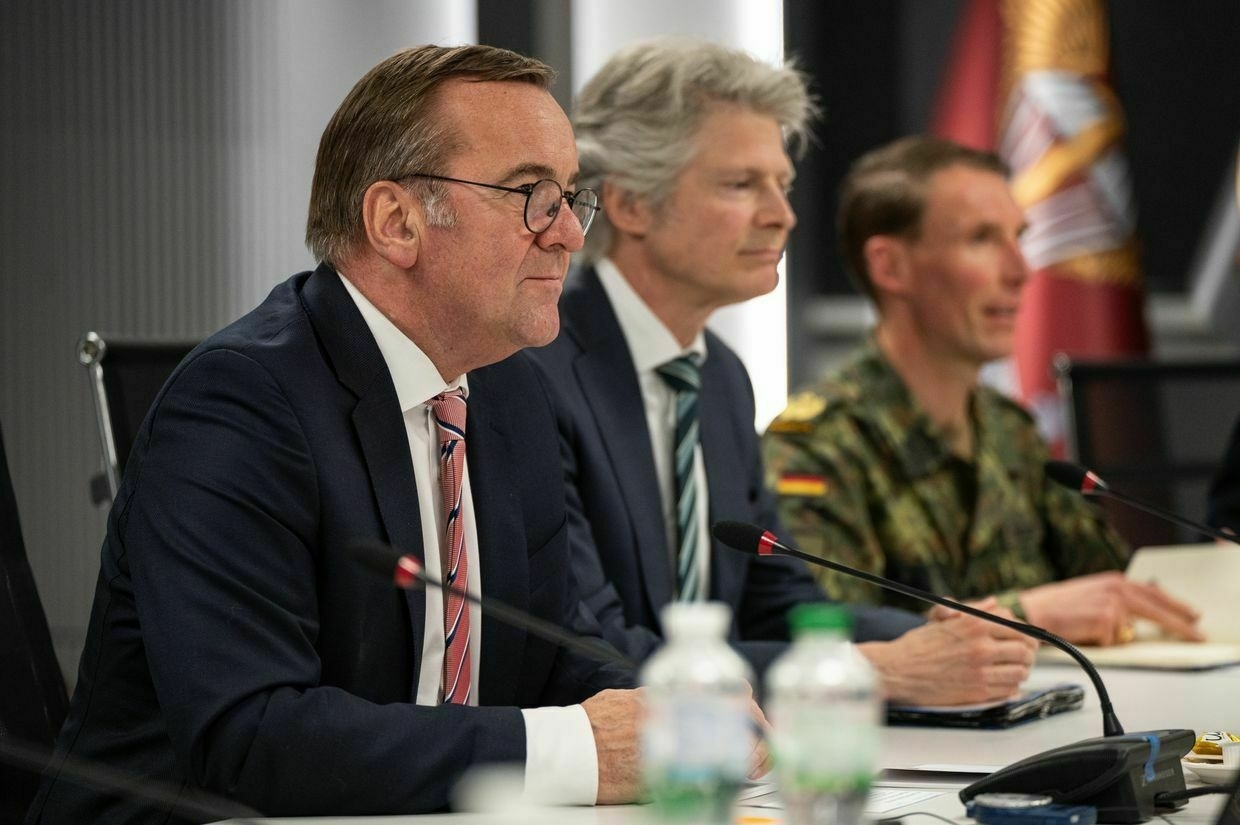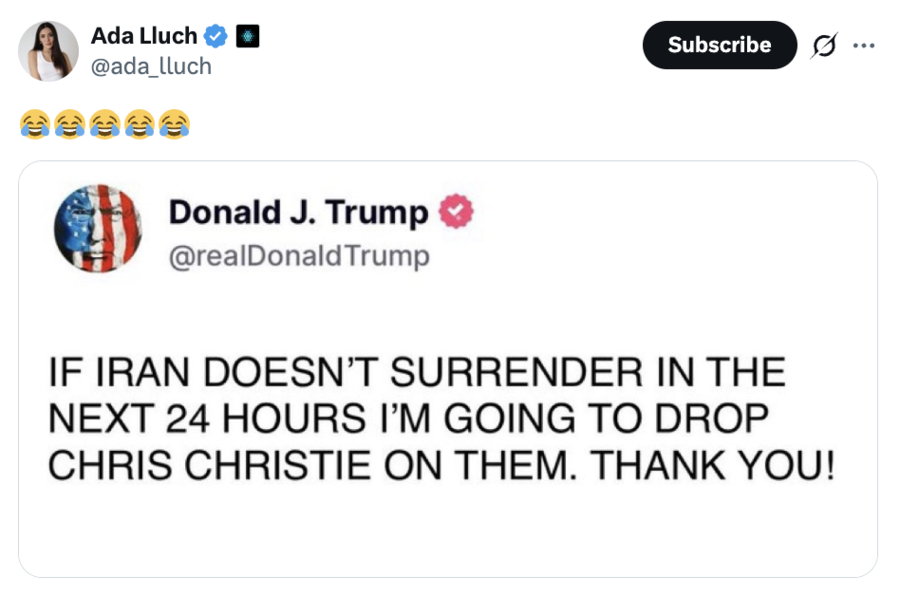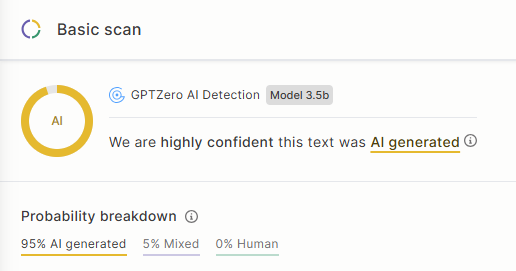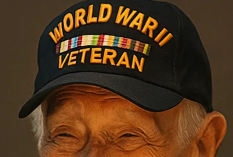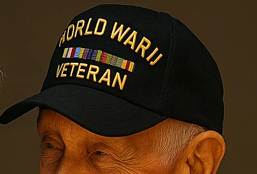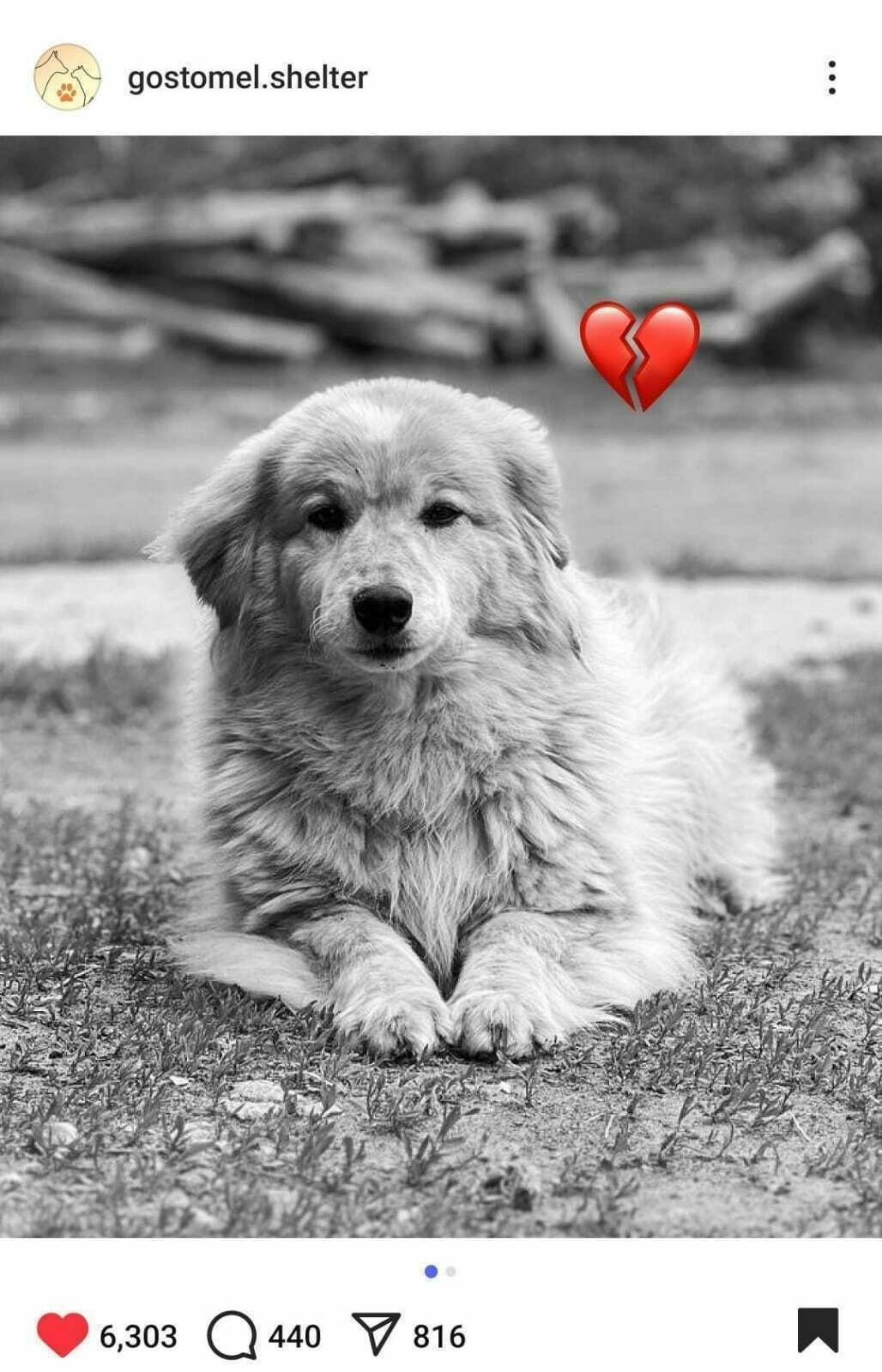-
Zelensky appoints Brigadier General Shapovalov as new Ground Forces chief
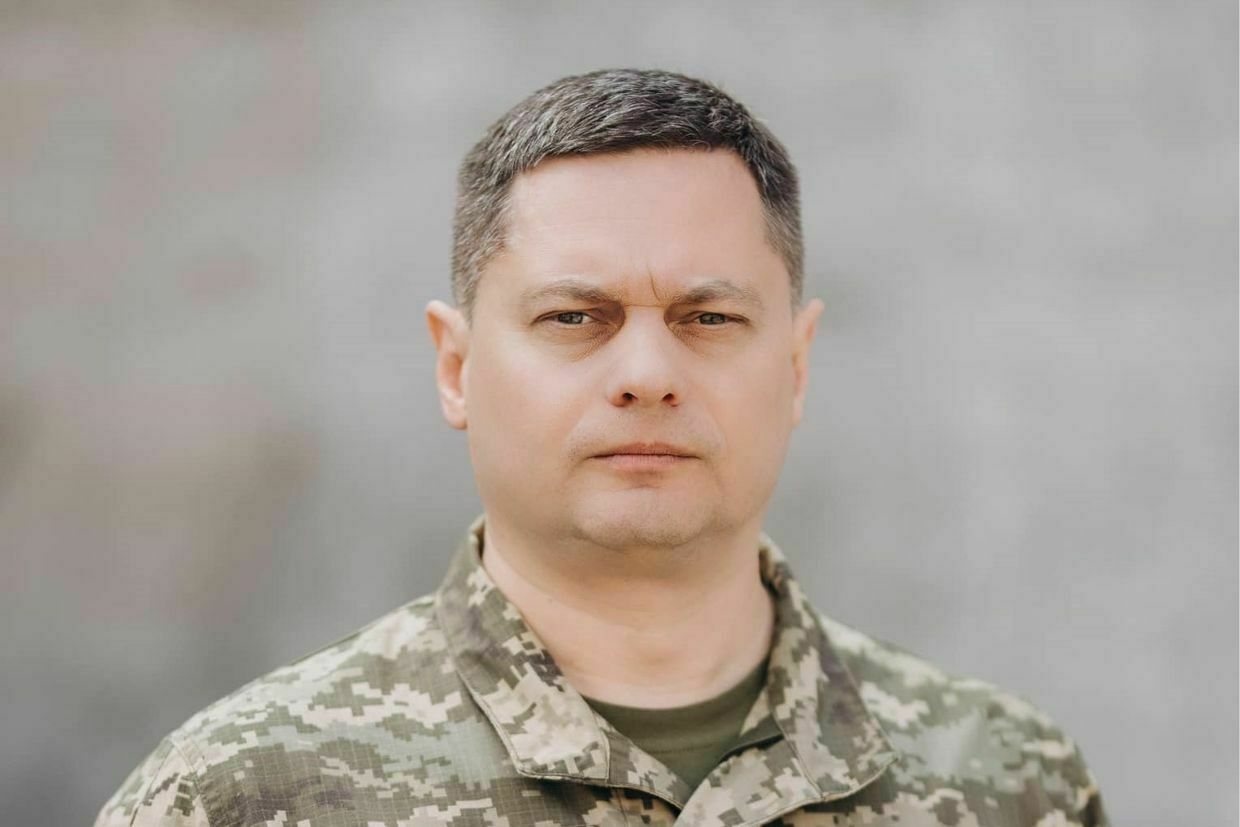
President Volodymyr Zelensky on June 19 appointed Brigadier General Hennadii Shapovalov as the new commander of Ukraine’s Ground Forces, following the resignation of Mykhailo Drapatyi earlier this month.
Drapatyi stepped down on June 1 after a Russian missile strike killed at least 12 Ukrainian soldiers at a training ground in Dnipropetrovsk Oblast. He described the casualties as young recruits who “should have learned, lived, and fought — not died.”
Zelensky accepted Drapatyi’s resignation and appointed him Commander of the Joint Forces on June 3. An investigation into the incident is ongoing, with the Ground Forces promising accountability if misconduct or negligence is confirmed.
Shapovalov, born in 1978 in Kirovohrad Oblast, is a career officer who graduated from the Military Institute of Tank Troops in Kharkiv and later studied at the National Defense University of Ukraine. He also received training at the U.S. Army War College.
Shapovalov previously led Ukraine’s South Operational Command in 2024 and was appointed in February 2025 as Ukraine’s representative to the NATO Security Assistance and Training for Ukraine (NSATU) mission in Germany.
Drapatyi, in his final remarks as Ground Forces chief on June 11, said he had overhauled more than half of the command’s senior leadership, launched a revamp of recruitment centers, and pushed through reforms focused on decentralization, accountability, and modernization.
Zelensky said Drapatyi’s new role would allow him to focus “exclusively on combat issues” as Ukraine faces intensifying Russian attacks across several fronts.
Trump’s peace push falters in both Ukraine and the Middle East — for similar reasonsU.S. President Donald Trump addressed a wide range of subjects during his inauguration speech. When speaking about international relations, he was adamant — “Our power will stop all wars and bring a new spirit of unity,” he said, talking about Russia’s war against Ukraine and the fighting in the MiddleThe Kyiv IndependentOleg Sukhov
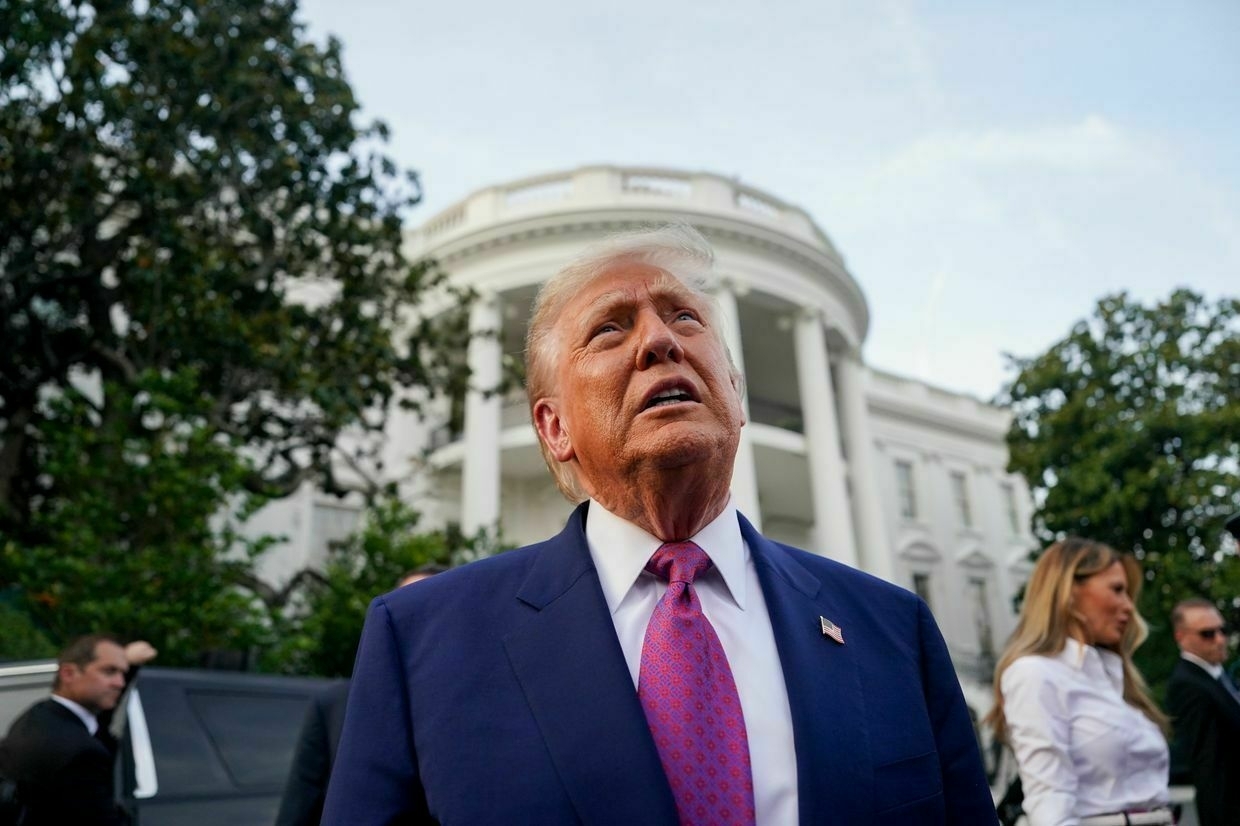
-
Fact Check: Donald Trump Did NOT Threaten to 'Drop Chris Christie' on Iran
Did President Donald Trump threaten, in a TruthSocial post, to "drop Chris Christie" on Iran, in June 2025? No, that's not true: A widely-shared screenshot which appeared to show such a message was, in fact, fake. A search of the president's TruthSocial account yielded no record of his having written those words.
The fake post appeared in a June 18, 2025, post on X (archived here) which garnered more than four million views in one day. The text of the fake post read:
IF IRAN DOESN'T SURRENDER IN THE
NEXT 24 HOURS I'M GOING TO DROP
CHRIS CHRISTIE ON THEM. THANK YOU!This is what it looked like at the time of writing:
(Source: X screenshot)
The Trump post was fake.
A June 19 scan of his TruthSocial account showed no posts matching the one shown in the screenshot. Furthermore, searches on Google and Bing for the phrase "drop Chris Christie", limited to links containing "truthsocial.com/@realDonaldTrump" (using the "site:" search operator) returned no results either. This indicates that Google and Bing didn't recently index such a post.
If Trump had made such a threat, it would undoubtedly have formed the basis of immediate and widespread news coverage. Google News and Yahoo! News searches both yielded no relevant results for the phrases "Trump" and "drop Chris Christie", further underlining the fabricated nature of the post.
-
'Unwanted by their homeland' — Ukraine confirms Russia returned bodies of its soldiers disguised as Ukrainian

Russia handed over some bodies of its own soldiers to Ukraine under the guise of Ukrainian casualties during a recent exchange of the deceased, Interior Minister Ihor Klymenko announced on June 19.
“Yes, we have facts. We have established the names of these soldiers and officers who are unwanted by their homeland,” Klymenko wrote on Telegram.
The discovery was made after the handover of remains under an agreement reached during the June 2 talks in Istanbul. In total, Ukraine received 6,057 bodies of its fallen soldiers as part of the phased exchange. Russia, according to Kremlin aide and negotiator Vladimir Medinsky, took back 78.
One of the bodies returned to Ukraine, labeled No. 192/25, was dressed in a Russian military uniform and carried a Russian passport issued to Alexander Viktorovich Bugaev, born in 1974.
Alongside the passport, officials found a military ID indicating Bugaev had served in the 1st Battalion of the 39th Separate Guards Motorized Rifle Brigade.
According to Klymenko, Bugaev went missing during heavy fighting near Novomykhailivka in Donetsk Oblast in March 2025. His family had been searching for him for months. Klymenko said Russia had located Bugaev’s body but chose to “dump” it among the Ukrainian dead.
“This is yet another proof of how Russia treats its people with contempt, throwing their bodies onto the bodies of Ukrainian soldiers,” Klymenko said.
“This shows how little human life means to Russia. Or maybe it’s just a way to avoid paying compensation to the families. But they will have to pay anyway: we are returning these bodies."
The official has not mentioned the total number of Russian soldiers' bodies given to Ukraine.
The June 2 negotiations in Istanbul resulted in the most expansive prisoner and body exchange agreement of the full-scale war, although no ceasefire was reached.
Russia accused Kyiv on June 7 of rejecting a proposed body return, publishing footage allegedly showing Ukrainian corpses stored in refrigeration units. Ukraine dismissed the claims, saying the footage was filmed on Russian territory, not at a designated handover site.
Kyiv has consistently called for an “all-for-all” exchange of prisoners of war, but Moscow has so far refused to agree to a comprehensive swap.
Ukraine, Russia carry out another POW exchange under Istanbul deal“These are warriors of the Armed Forces, the National Guard, and the State Border Guard Service. Most of them had been held captive since 2022,” President Volodymyr Zelensky said, without revealing their numbers.The Kyiv IndependentMartin Fornusek
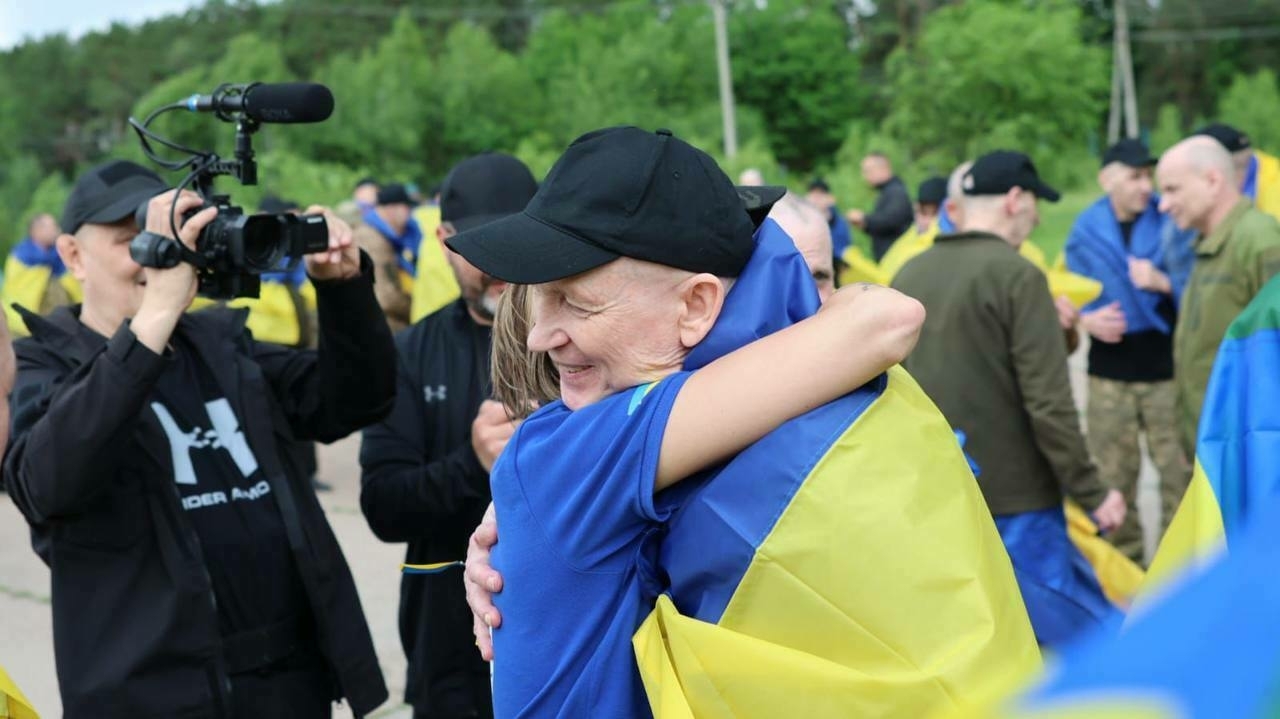
-
Fact Check: OLD Video Shows Flight Attendant Singing With 'Israeli Nationals' -- Clip is From 2023
Did a viral video show passengers singing with a flight attendant waving an Israeli flag, in June 2025? No, that's not true: Posts on social media reused an old recording. The footage had been on the internet since October 2023.
The claim appeared in a post (archived here) on X on June 19, 2025. It read:
Israel carries out a daring rescue, sending special planes to extricate Israeli nationals trapped in their European vacation spots and wing them home to a war zone.The entry included a one-minute video showing a flight crew member holding an Israeli flag and dancing and singing in the aisle between the seat rows on the plane. Passengers appear to recognize the lyrics and sang along, and many were recording the scene on their phones.
Contrary to the implication in the post on X, the recording didn't document anything that happened in 2025. By June 2025, the video had been online for roughly a year and a half.
As of this writing, the earliest available copy of the footage (archived here) found by Lead Stories was uploaded to TikTok on October 24, 2025.Another video of what appeared to be the continuaton of the same scene (archived here) appeared on Facebook even earlier, on October 14, 2023. It was published by Aviad Shotts, whose profile described him as a flight attendant for Arkia Israeli Airlines.
Read more
Other Lead Stories fact checks concerning claims about Israel are here.
Articles about international stories are here.
-
Fact Check: Paul McCartney Did NOT Give Private Jet To World War Two Vet To Reunite With Wartime Lover
Did Paul McCartney give his private jet to a WW2 vet to help the 102-year-old American reunite with his wartime lover? No, that's not true: The text and supporting images in a story making the claim were generated by artificial intelligence tools. There is no documentation that the former Beatle lent his plane to an elderly veteran for a flight to find a European woman he met while serving in World War Two.
The story originated in a post (archived here) published on Facebook and in an online article (archived here) on June 13, 2025. The caption to the Facebook post read:
Paul McCartney gave up his private jet for a 102-year-old WWII vet to reunite with a wartime lover -- but what happened after became Paul's own birthday gift... Mr. Harold, a 102-year-old veteran, wanted to fly to France to meet his long-lost wartime love. Paul gave up his jet. A week later, Harold FaceTimed from Paris, inviting Paul to his 103rd birthday -- with a gift: a WWII map signed by Paul's own grandfather.
FULL STORY BELOW 👇👇👇This is what the post looked like on Facebook at the time of writing:
(Source: Facebook screenshot taken on Thu Jun 19 14:54:34 2025 UTC)
The comment section of the post included a link to an article titled "Paul McCartney's Heartwarming Gesture to Help WWII Veteran Reunite with His Wartime Love." The opening paragraphs read:
In a story that beautifully blends compassion and generosity, legendary musician Paul McCartney recently gave up his private jet to help a 102-year-old World War II veteran, Mr. Harold, reunite with his long-lost wartime love in France. What followed this selfless act, however, would turn into an unexpected and deeply emotional birthday gift for Paul McCartney himself.
Mr. Harold, a 102-year-old veteran, had spent decades apart from his wartime sweetheart, a woman he met during his time in service. As years passed, the two lost contact, and Harold was left with nothing but cherished memories of their brief, yet profound, connection. But, at the age of 102, Harold had one last wish -- to find his beloved and see her once again. His dream was to fly to France, where she lived, and finally reunite with her after all these years.
When Paul McCartney, who is known for his deep humanitarian spirit, heard about Harold's wish, he didn't hesitate to take action. Realizing that Harold's advanced age and the emotional significance of his mission, Paul knew the reunion had to happen. Paul generously offered his private jet, giving up his own comfort and convenience to ensure Harold's dream could come true. A true gesture of kindness, McCartney's actions went beyond celebrity charity -- it was a deeply personal act of compassion, one that showed the power of human connection.
After traveling to France, Harold succeeded in his mission. A week later, the veteran made an emotional FaceTime call from Paris, where he had been joyfully reunited with his wartime love. It was a moment of triumph and nostalgia, filled with smiles and tears. However, what happened next was just as unexpected as the first gesture of generosity.
The article provides no sources for this information, which would be expected in legitimate journalism.
Lead Stories tested the full text with the GPTZero AI Detection tool, which concluded with high confidence that the text was 95% AI-generated.
Lead Stories found obvious clues that the images of McCartney and the veteran used for the Facebook post and in the article were obviously AI-generated. The hat worn by the veteran differed in each image, although the photos were supposedly of the same event.
The number of candles that were lit varies, which is another clue.
The Hive Moderation AI-generated content detection tool left no doubt that all of the images were 99.9% deepfakes.
Fake claims about McCartney and the Beatles are common on Facebook. Lead Stories previously debunked another AI-generated claim that McCartney and Ringo Starr had announced a joint tour.
-
Russia's prison chief sentenced in absentia for torture chambers in Kherson Oblast
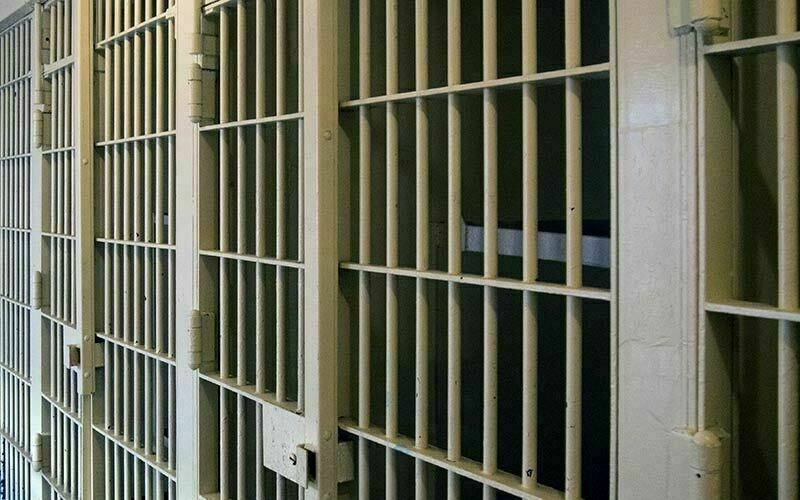
Arkady Gostev, head of Russia’s Federal Penitentiary Service, was sentenced in absentia to 10 years in prison for creating a network of torture chambers in the Russian-occupied part of Kherson Oblast, Ukraine’s Security Service (SBU) announced on June 19.
Gostev was found guilty of orchestrating the transformation of captured Ukrainian prisons into torture sites used to detain and brutalize members of the local resistance. The SBU said victims were subjected to “brutal torture” intended to break their will and force submission to the Kremlin rule.
According to investigators, Gostev personally oversaw the establishment of torture facilities and pushed for their inclusion in Russia’s national prison registry through the Justice Ministry.
The court ruled he committed “actions aimed at violently changing or overthrowing the constitutional order or seizing state power."
“Comprehensive measures are being taken to bring him to justice for crimes against our state,” the SBU said, noting that Gostev remains in Russia.
Kherson Oblast, which stretches from the Dnipro River to the Black Sea, remains partially occupied, with the east-bank territories still under Russian control.
Gostev joins a growing list of senior Russian officials charged in absentia with war crimes, crimes against humanity, and the administration of occupied territories.
Ukraine has also targeted collaborators working with the occupation authorities.
On June 18, Ukraine’s military intelligence (HUR) confirmed the assassination of Mykhailo Hrytsai, a Russian-appointed deputy mayor in Berdiansk, Zaporizhzhia Oblast, for his role in organizing repression and torture of Ukrainian prisoners of war.
‘Beyond cynical’ – Russian doctor carved ‘Glory to Russia’ scar on POW during operation, Ukraine saysAfter more than three years of Russia’s full-scale invasion, each new revelation of cruel treatment of Ukrainians in Russian captivity hardly surprises anyone. But when a photo recently emerged online, showing a “Glory to Russia” scar on the body of a Ukrainian prisoner of war (POW), it sent shockwavesThe Kyiv IndependentDaria Shulzhenko

-
Once firm, support for Ukraine among its neighbors wavers amid a populist surge
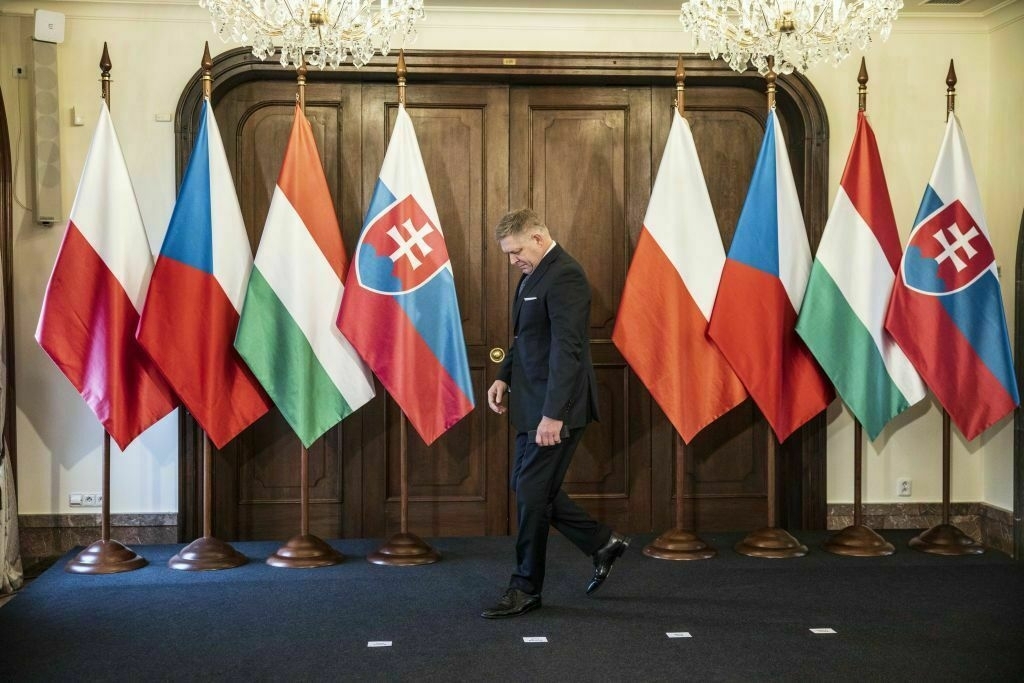
Fourth year into Russia’s full-scale war against Ukraine, the decisive support Kyiv found among its neighbors to the west is beginning to show cracks.
Once resolute Poland is seeing rising skepticism toward Ukraine, underscored by President-elect Karol Nawrocki’s election victory. Slovakia’s pro-Ukrainian government was ousted by Russian-friendly populists in the 2023 parliament elections, and Czechia may face a similar fate this year.
Pro-Western political forces have barely survived a pro-Russian takeover in Romania and Moldova, but the anti-Ukrainian parties remain powerful in both countries.
In contrast, the only actively pro-Russian government that has been in place since the start of the full-scale war, might soon lose an election of its own. Hungarian Prime Minister Viktor Orban, who has exasperated Ukraine and Brussels with his obstinately pro-Kremlin stances, faces a realistic possibility of defeat next year.
Ukraine still has allies in the neighborhood. But when compared to 2022, the trend is clear — A steady erosion of solidarity among Ukraine’s partners in Central and Eastern Europe amid war fatigue, domestic concerns, and rising populism.
Poland — from champion to cautious allyUnlike in many other countries, in Poland, a division between pro-Ukrainian and Ukraine-skeptic political forces cannot be neatly defined by party lines.
Case in point, President-elect Nawrocki is less sympathetic to Ukraine than his predecessor, Andrzej Duda, even though they both come from the same conservative camp centered around the Law and Justice (PiS) party.
The incoming Polish president is also taking a harder line on Ukraine than the centrist government led by Prime Minister Donald Tusk’s Civic Coalition. While the Tusk government has openly backed Kyiv’s NATO and EU aspirations, Nawrocki spoke out against both.
The historian-turned-president-elect has often employed historical grievances — namely, the World War II-era Volyn massacres — in his criticism, while denouncing Ukraine as “ungrateful” for Polish aid.
However, the vast majority of the Polish political spectrum, including the PiS, the current government, and Nawrocki, agrees that it is in Warsaw’s interest to continue supporting Ukraine against Russian aggression.
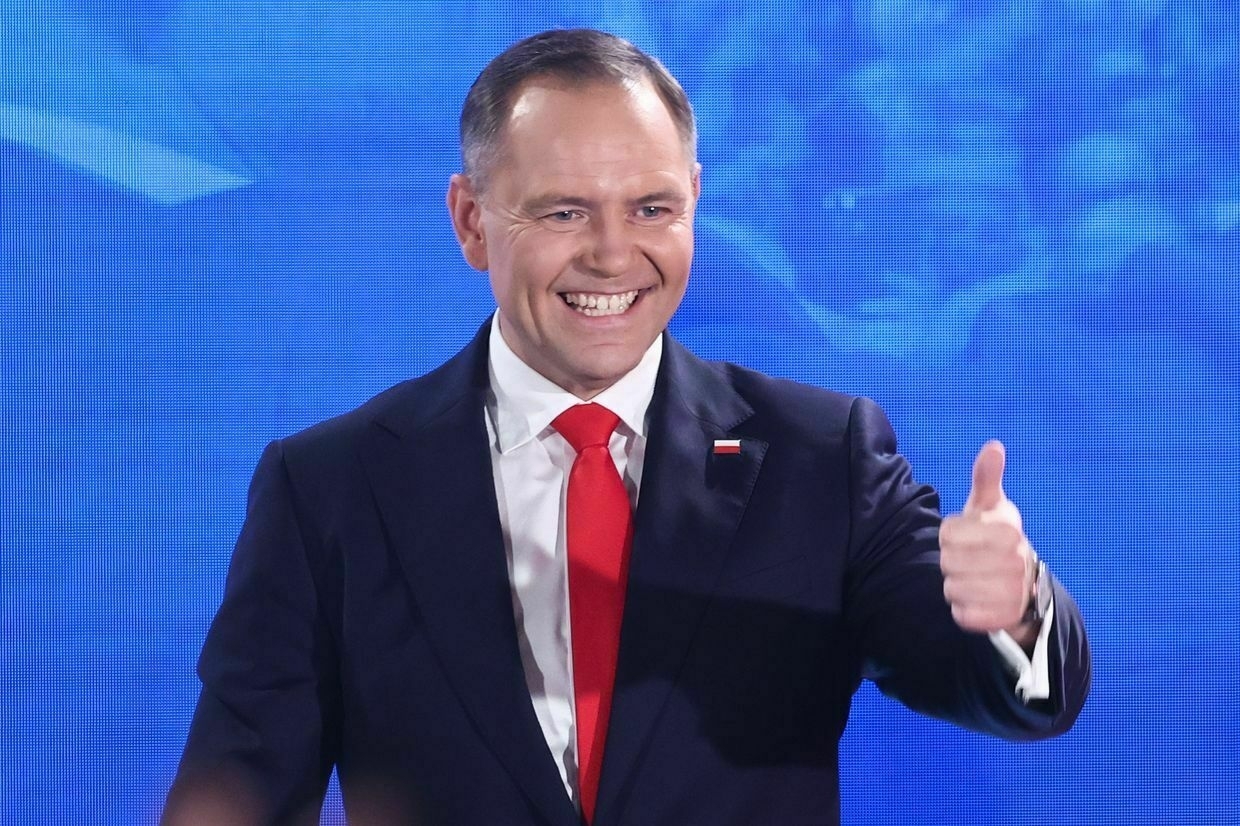
Law and Justice party–backed then-presidential candidate, now President-elect Karol Nawrocki, attends the election night event in Warsaw, Poland, on June 1, 2025. (Jakub Porzycki/NurPhoto via Getty Images) After all, it was the previous PiS government that helped millions of Ukrainian refugees fleeing the country at the start of Russia’s full-scale invasion in 2022, that sent tanks and MiG-29 fighter jets, and that turned eastern Poland into a key military aid hub for Ukraine.
The ties became strained later amid trade disputes, border blockades, and clashes over historical grievances, and did not disappear with the defeat of the PiS and Tusk’s victory in the 2023 elections.
Yet, Poland stands out — its fluctuating relationship with Ukraine doesn’t change the fact that in the country’s war with Russia, it is strongly on Kyiv’s side.
Ukraine is unlikely to lose Poland as its supporter, though Warsaw may not be the leading advocate for Ukrainian European and Euro-Atlantic aspirations it once was.
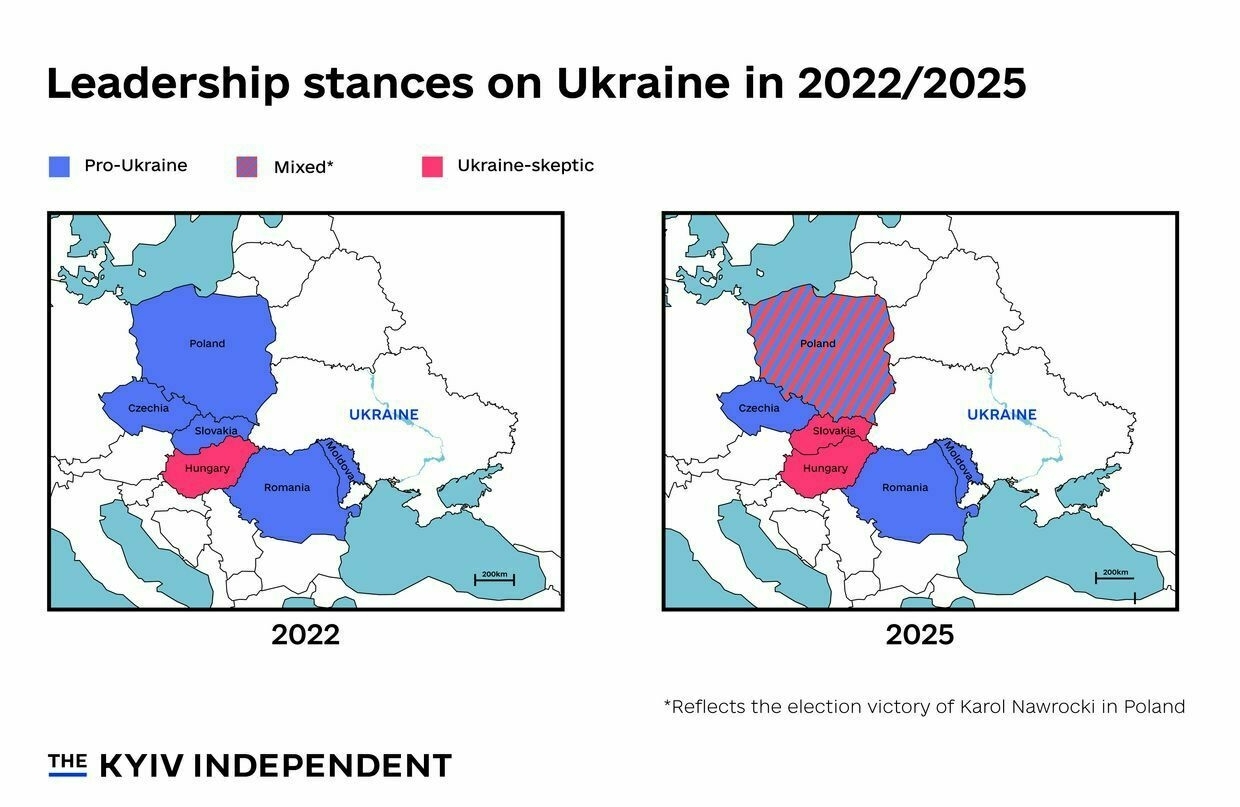
(Nizar al-Rifai/The Kyiv Independent) Can Hungary shift course?As the region is sliding deeper into nationalist populism, Hungary may yet move in the opposite direction.
Peter Magyar, a renegade from Prime Minister Viktor Orban’s Fidesz party, is taking Hungarian politics by storm. His Tisza party now leads polls, suggesting that Magyar has a good chance at dethroning Orban during the upcoming April 2026 parliamentary elections.
Orban has been in power in Hungary since 2010, with his tenure marked by clashes with the EU over human rights and the rule of law, warming relations with Russian and Chinese autocrats, and obstruction of military and political support for Kyiv.
Whether Magyar’s victory next year could bring change remains to be seen. The rising opposition leader visited Kyiv after a Russian attack on the Okhmatdyt hospital last July, but otherwise avoided making any clear commitments to Ukraine. And he has reasons to.
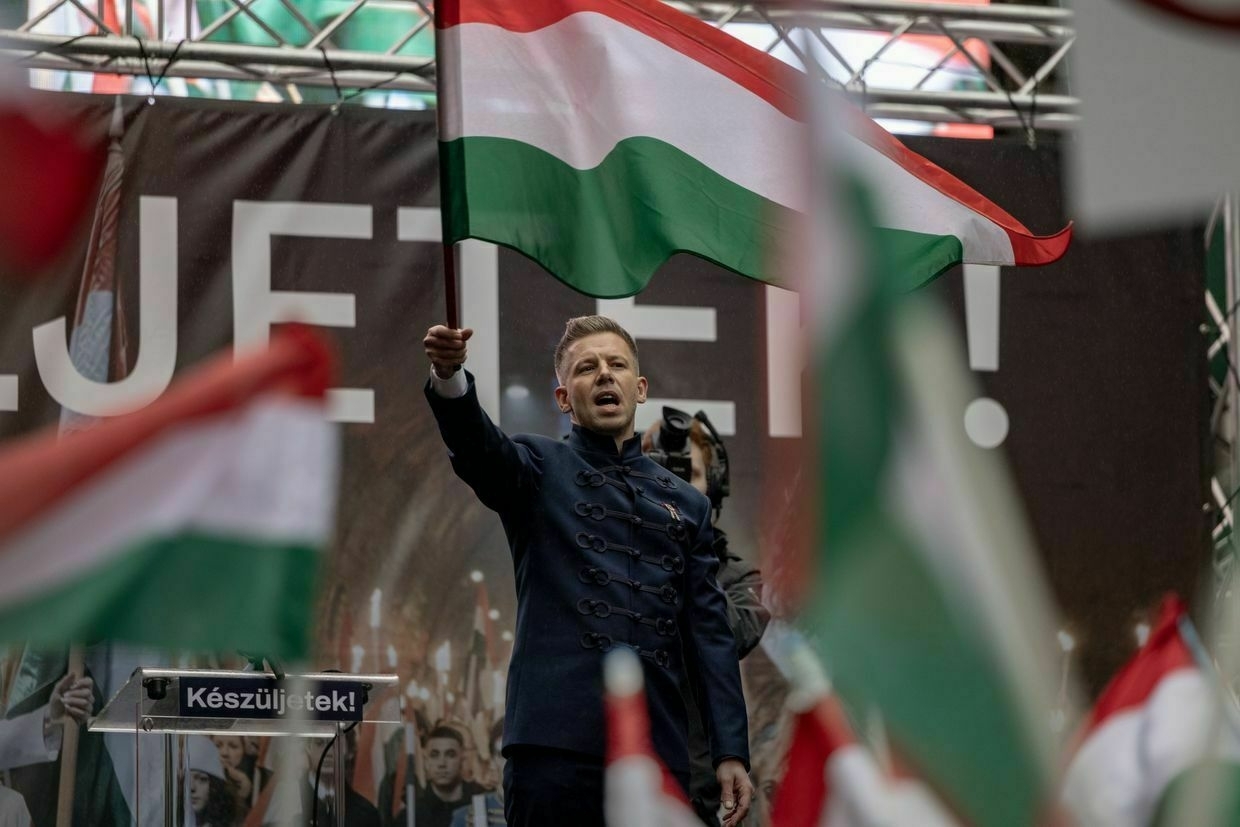
Peter Magyar holds a Hungarian flag during a protest in Budapest, Hungary, on March 15, 2025. (Janos Kummer/Getty Images) “In order to win the elections, (Tisza) needs to win over voters from Fidesz, and, after 15 years of indoctrination, this will not be possible if Tisza takes a broadly pro-Ukrainian stance,” Csilla Fedinec, senior research fellow at HUN-REN Center for Social Sciences in Budapest, told the Kyiv Independent.
“In Hungary, the elections are free but definitely not fair.”
Dorka Takacsy, a research fellow at the Center for Euro-Atlantic Integration and Democracy (CEID) and visiting fellow at the German Marshall Fund, nevertheless says that Magyar might decide to support Ukraine to position himself as Orban's "polar opposite."
Magyar's victory is far from certain, however.
"There are insane disparities with regards not only in access to the media, but also finance-wise" between the "state party" Fidesz and the Tisza newcomers, Takacsy said, adding that "in Hungary, the elections are free but definitely not fair."
Romania remains on Ukraine's side, but pro-Russian challenge growsLooking from Ukraine's perspective, Romania has avoided becoming "another Hungary" by the skin of its teeth, as numerous polls projected that anti-Ukraine and hard-right George Simion could win the presidential office this May.
Simion had strong chances, taking over the "sovereignist" banner from pro-Russian ultranationalist Calin Georgescu, who came in first in the annulled election last November but was barred from running again.
A far-right victory would have been a major upheaval for the key NATO member that was pivotal in helping Ukraine ship out its grain amid Black Sea blockades and provided a full Patriot air defense system.
Bucharest "will have a stable pro-EU, pro-NATO, and pro-Ukrainian force until the next parliamentary elections."
Bucharest Mayor Nicusor Dan, a pro-EU centrist, defied expectations when he defeated Simion by a solid margin. This ensured "that Romania will stay on the pro-Western track," Sergiu Miscoiu, a political science professor at the Babes-Bolyai University in Cluj-Napoca, told the Kyiv Independent.
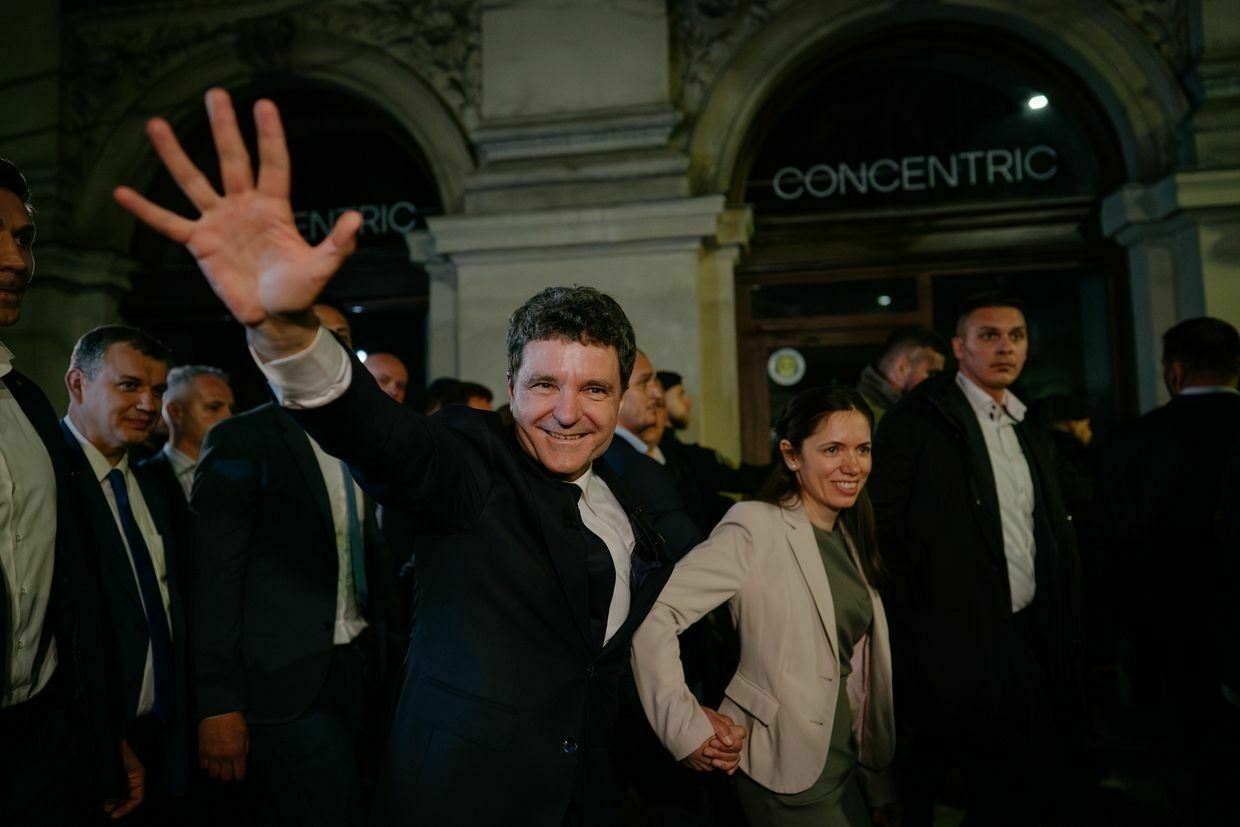
Then-presidential candidate, now Romanian President Nicusor Dan and his partner Mirabela Gradinaru greet supporters after the first exit poll results on the day of the presidential election in Bucharest, Romania, on May 19, 2025. (Andrei Pungovschi/Getty Images) Romania's political woes are far from over, as Dan must now help broker a new government among pro-EU parties. Prime Minister Marcel Ciolacu's pro-Ukrainian cabinet resigned after its candidate failed to advance past the first round of the presidential election.
If these negotiations are successful, "which is highly probable," Bucharest "will have a stable pro-EU, pro-NATO, and pro-Ukrainian force until the next parliamentary elections," Miscoiu added.
The specter of the massive right-wing, anti-establishment surge among Romanians persists, however.
Simion's party, the Alliance for the Union of Romanians (AUR), went from 9% support in 2020 to 18% during last year's parliamentary vote, becoming the leading opposition force and the second-biggest party in the parliament. Its support only continues to surge, now hitting 38% in some surveys.
Such broad backing for a party whose leader has been banned entry to Ukraine due to what the Security Service of Ukraine (SBU) called "systematic anti-Ukrainian activities" and who openly opposed military aid for Ukraine should be a worrying signal for Kyiv.
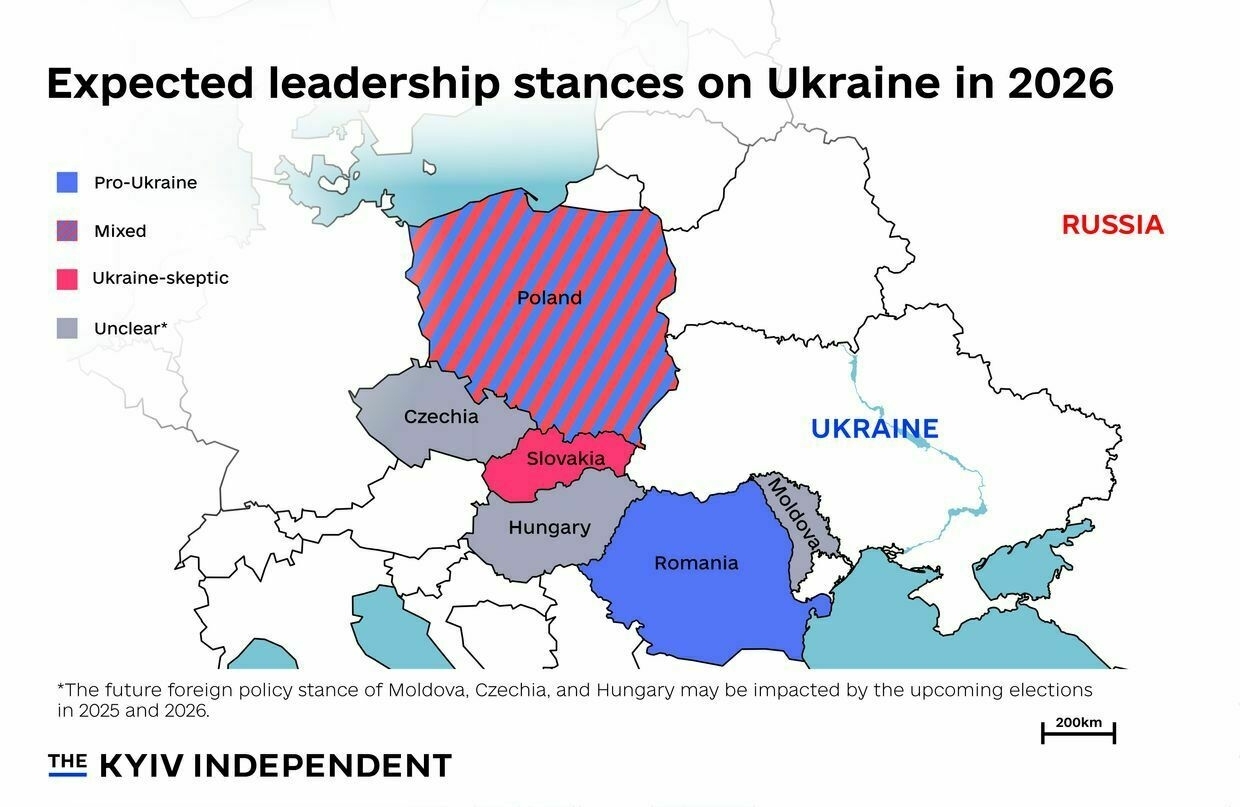
(Nizar al-Rifai/The Kyiv Independent) Moldova's pro-EU path faces second challengeJust like in Romania, Moldova's pro-EU and pro-Ukrainian leadership has evaded defeat by Moscow-friendly opposition — but their fight is not over.
Moldova's small population, modest military, and limited economic capacity restrict its ability to play a major military role in the pro-Kyiv coalition. In spite of this, Chisinau has stood by Ukraine since the onset of Russia's full-scale invasion and has become its partner on the path toward EU accession.
Pro-European President Maia Sandu won reelection in November 2024 by defeating Alexandr Stoianoglo, a former prosecutor endorsed by pro-Russian ex-President Igor Dodon.
However, the simultaneous non-binding referendum on Moldova's EU aspirations showed only a razor-thin margin in support of the accession. Sandu cried foul, accusing Russia of an "unprecedented" interference in its favor.
Now, pro-Russian forces within the country are gearing up for another attempt to grab power, this time during the September parliamentary elections — a vote with potentially major ramifications in the semi-parliamentary republic.
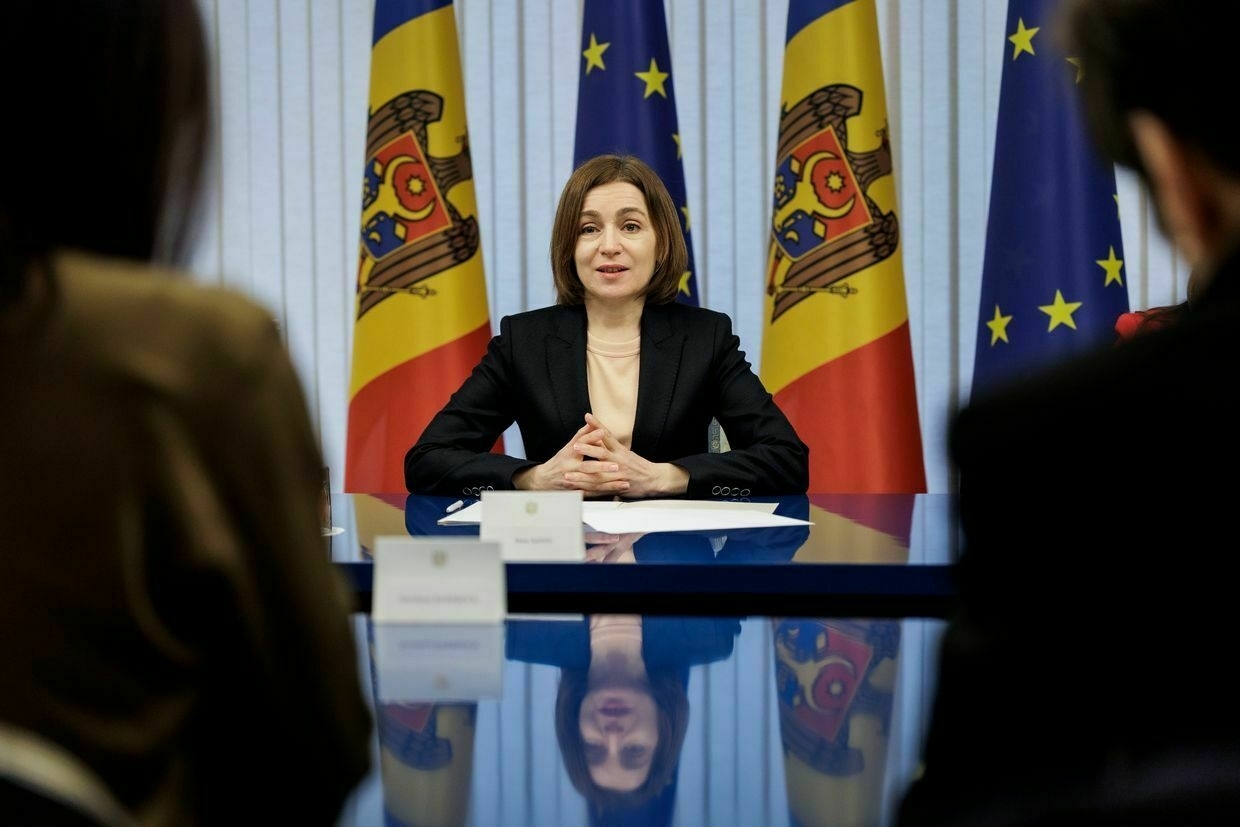
Moldovan President Maia Sandu is pictured in Chisinau, Moldova, on April 2, 2025. (Kira Hofmann/Photothek for the German Federal Foreign Office via Getty Images) Sandu's party, the Party of Action and Solidarity (PAS), currently holds the majority, but faces a challenge from Dodon's Bloc of Communists and Socialists (BCS) and the Alternative, a political bloc co-founded by Stoianoglo.
"If Sandu's party loses majority in the parliament, Maia Sandu will be forced to cohabit with a parliament that is more powerful in terms" of approving the prime minister and the government, Miscoiu said.
In such a situation, Chisinau would not turn openly pro-Russian, the expert says. However, it would shift toward a "neutral" status that would allow the activation of various pro-Russian elements, some of which are currently banned in Moldova, and compromise the country's EU hopes, he added.
Slovakia's U-turn under Fico, and what comes nextFew European countries have seen such a radical foreign policy shift in recent years as Slovakia after the electoral victory of the populist, left-nationalist Robert Fico in the fall of 2023.
The nation that was one of the first to provide Ukraine with fighter jets — not to mention an S-300 air defense system, artillery, and more — now ranks alongside Orban's Hungary as the most Moscow-friendly government in the EU and NATO.
Fico's role as a disruptor has largely been about theatrics, from his meeting with Putin in Moscow last year to his appearance on Russian propagandist Olga Skabeyeva's channel and his presence at the Moscow Victory Day parades on May 9 — an event even Orban avoided.
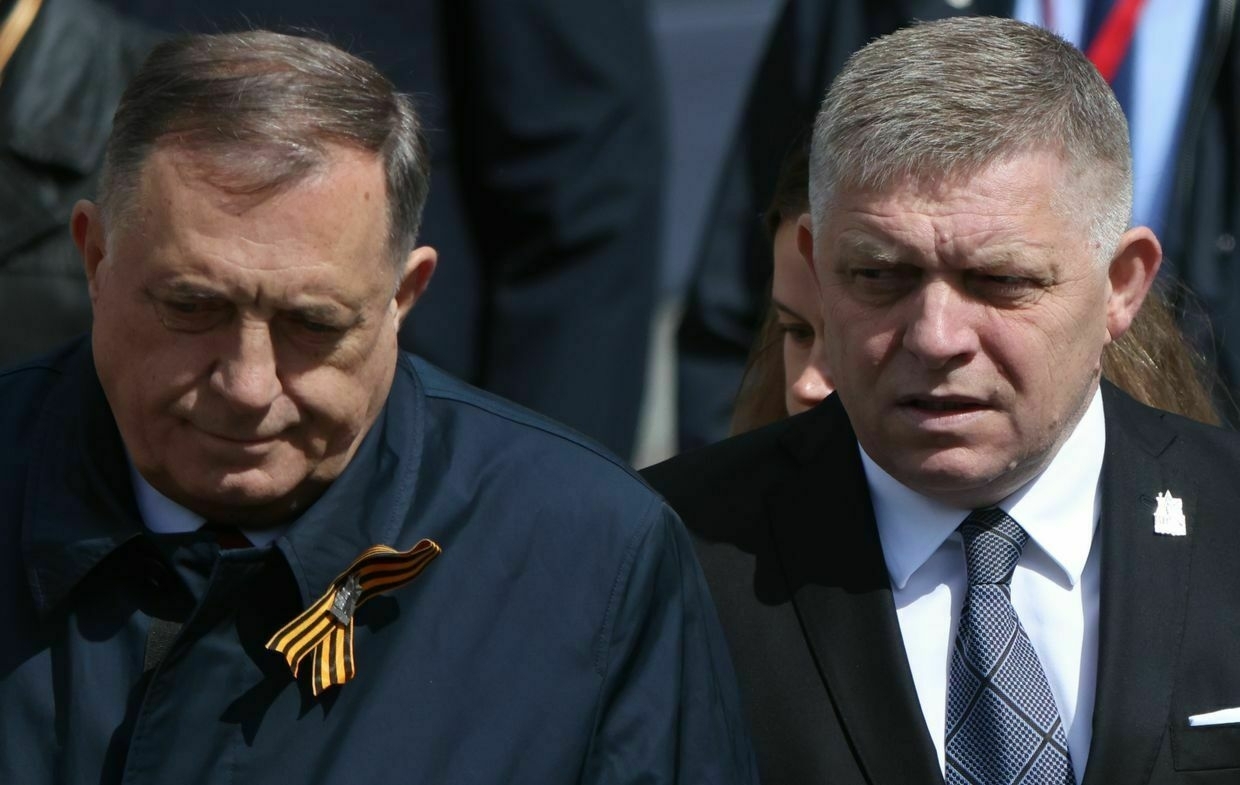
Slovak Prime Minister Robert Fico (R) and President of Republika Srpska Milorad Dodik (L) arrive for a wreath-laying ceremony at the Tomb of the Unknown Soldier in Moscow, Russia, on May 9, 2025. (Contributor/Getty Images) The Slovak leader has also clashed with Ukraine over the transit of Russian gas, halted military aid from (largely emptied out) Slovak military arsenals, and threatened to block the upcoming package of EU sanctions.
However, mass protests against Bratislava's pro-Moscow orientation and the dropping public support for coalition parties show that Fico's hold on power is far from secure.
Fico's foreign policy turn has also sparked criticism within the coalition. Slovak President Peter Pellegrini, Fico's ally and founder of the co-ruling Hlas party, has rebuked the government for moving away from its Western partners and announced his visit to Kyiv.
Should Fico's grip on power continue to weaken, Slovakia's geopolitical course could change yet again.
Czechia slipping away from UkraineWhile not directly sharing borders with Ukraine, Czechia — lying less than 300 kilometers from the warring country — has been a significant player in both military and humanitarian assistance for Kyiv.
Since 2022, Czechia has provided shelter to some 400,000 Ukrainian refugees. Prague was also behind the international ammunition initiative, which provided Ukraine with 1.5 million high-caliber rounds in 2024 and an additional 400,000 as of the spring of 2025.
But the parties that oversaw these policies seem to have a slim chance of retaining the parliamentary majority in the upcoming October elections.
The populist ANO movement of billionaire and ex-Prime Minister Andrej Babis is leading Spolu — the center-right coalition that is the main force in the government — by some 10 percentage points, meaning Babis is very likely to return to power by the end of this year.
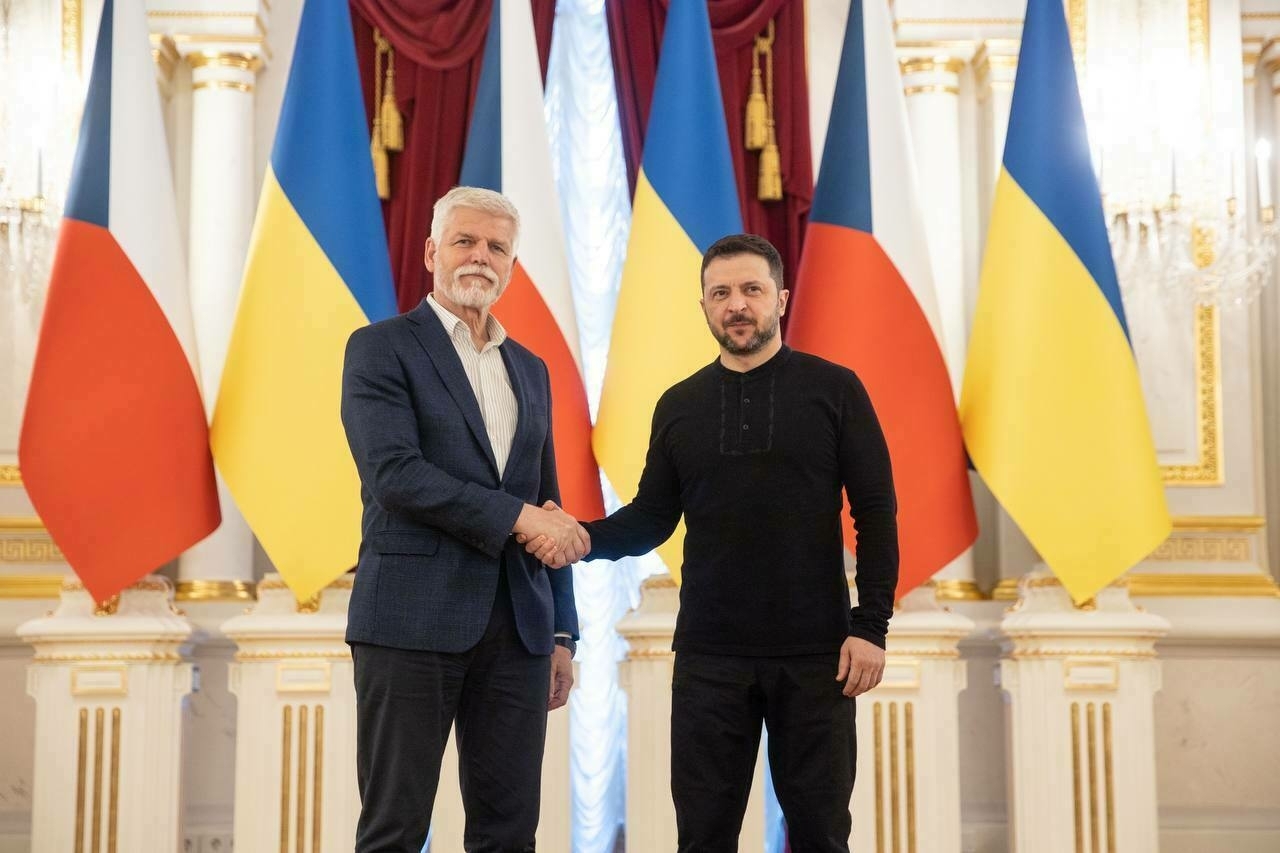
President Volodymyr Zelensky (R) meets with Czech President Petr Pavel (L) in Kyiv, Ukraine, on March 21, 2025. (The President’s Office) In the runup to the vote, Babis has increasingly lambasted the government's support for Ukrainian refugees, arguing that it comes at the expense of Czech families. Babis's right-hand man, Karel Havlicek, even declared earlier this year that ANO would kill the ammunition initiative for Ukraine, though the party later muted this statement.
While ANO has largely tried to avoid the topic of Ukraine as a major topic, this now seems to change as Babis is fishing "in the anti-systemic waters," likely to counter the rise of the more radical and anti-Ukrainian SPD party, Pavel Havlicek (no relation), a research fellow at the Association for International Affairs in Prague, told the Kyiv Independent.
Paradoxically, the far-right SPD and the communist-led Stacilo! (Enough!) bloc appear to be ANO's most likely coalition partners. These radical groups "come with a very clear agenda undermining the course of Czech foreign policy," Havlicek said.
"At the same time, ANO has a weaker and less articulated position on most matters, which might further empower the smaller political actor(s) to take matters into their own hands, including taking over the Czech Foreign Ministry," he adds.
No matter the result of the parliamentary elections, Ukraine will continue to have a vocal advocate in President Petr Pavel – though presidential powers in Czechia are limited.
By mid-2025, support for Ukraine is showing signs of strain in Central and Eastern Europe. Yet, pro-Ukrainian forces have managed to score some surprising wins, showing that victory against the rising wave of pro-Russian populism is possible.
-
North Korea considers sending 25,000 workers to Russia to help produce Shahed drones, media reports
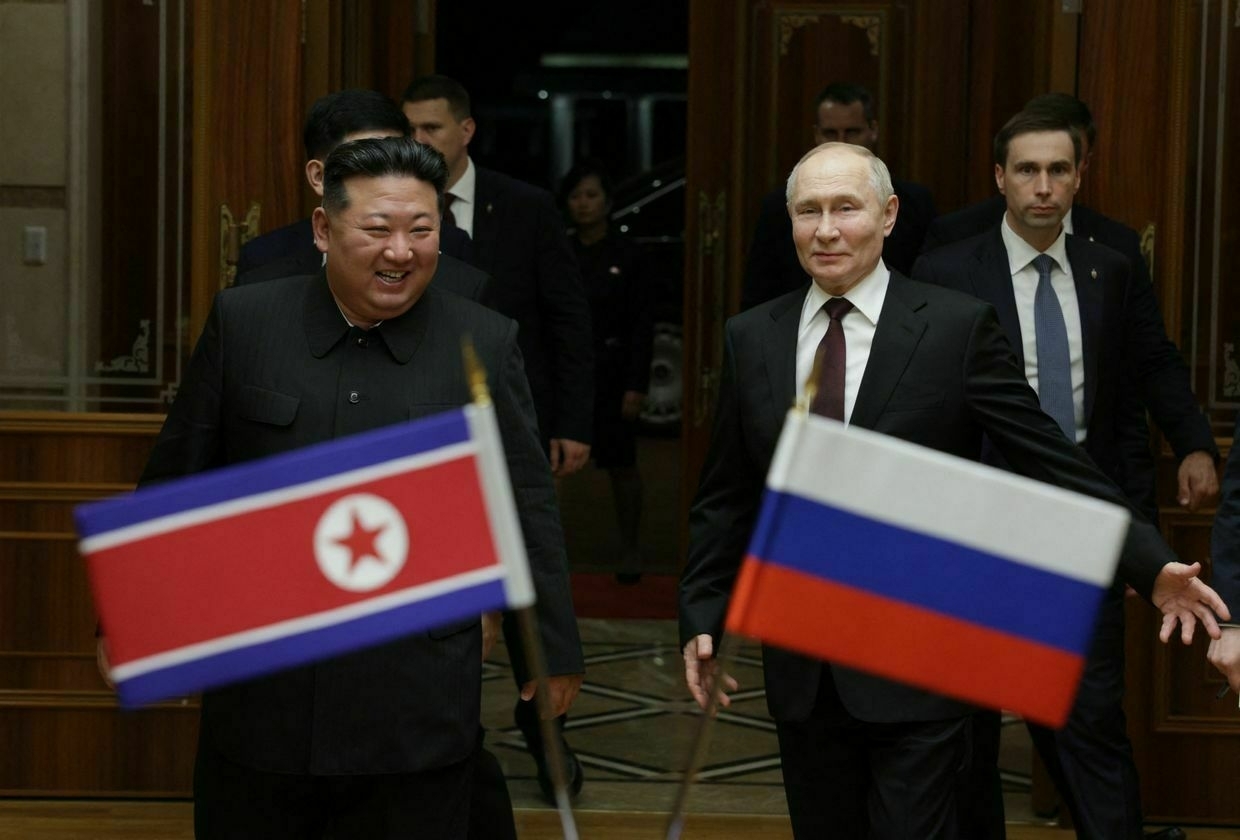
North Korea is considering sending up to 25,000 workers to Russia to assist in the mass production of Shahed-type attack drones, Japan’s public broadcaster NHK reported on June 19, citing unnamed diplomatic sources in the West and Russia.
The workers would be sent to the Alabuga Special Economic Zone in Russia’s Republic of Tatarstan, where Moscow operates a facility for assembling Iranian-designed Shahed drones. In return, Pyongyang is reportedly seeking drone operation training.
Shahed drones, known for their low cost and heavy explosive payloads, have been used extensively by Russia since late 2022 to attack Ukrainian cities. The Alabuga site has been repeatedly struck by Ukrainian forces in an attempt to disrupt production.
The media report follows a series of rapid developments in military cooperation between Moscow and Pyongyang. Russian Security Council Secretary Sergei Shoigu visited North Korea on June 17, reportedly on a “special assignment” from Russian President Vladimir Putin.
After meeting Kim, Shoigu said that Pyongyang had agreed to send 1,000 combat engineers and 5,000 military builders to Russia’s Kursk Oblast to assist in reconstruction.
Ukraine controlled a part of Kursk Oblast following a cross-border offensive in August 2024. Russia regained much of the lost territory during a March 2025 counteroffensive that included backing from North Korean forces. According to estimates, North Korea has suffered over 6,000 casualties during the offensive operations.Ukraine’s military intelligence chief, Kyrylo Budanov, said on June 9 that Pyongyang and Moscow have agreed to start establishing domestic production of Shahed-136 drones on North Korean soil.
Kim remains a vocal ally of Putin, supplying not only soldiers but also artillery, drones, and ballistic missiles. During Russia’s May 9 Victory Day Parade in Moscow, Putin personally greeted North Korean troops, though Kim did not attend.
Trump’s peace push falters in both Ukraine and the Middle East — for similar reasonsU.S. President Donald Trump addressed a wide range of subjects during his inauguration speech. When speaking about international relations, he was adamant — “Our power will stop all wars and bring a new spirit of unity,” he said, talking about Russia’s war against Ukraine and the fighting in the MiddleThe Kyiv IndependentOleg Sukhov
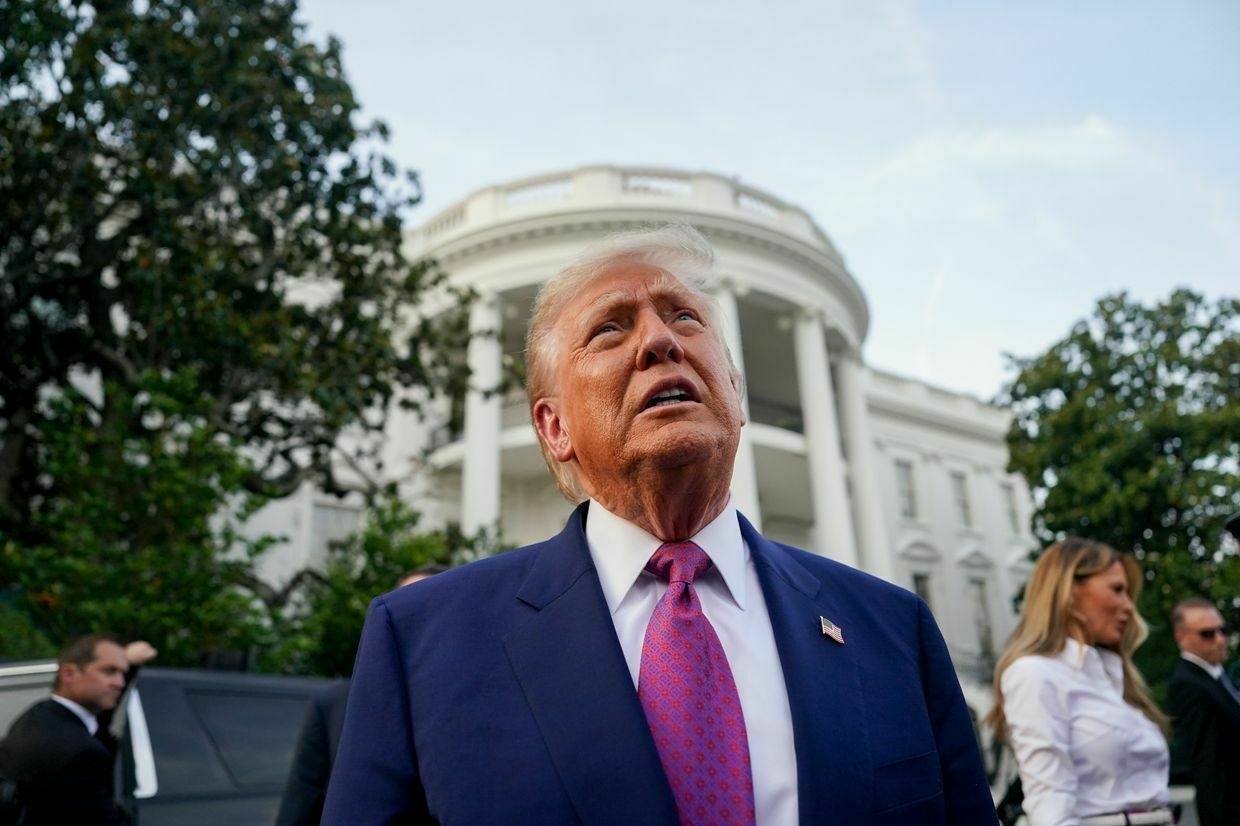
-
Ukraine Reforms Tracker Weekly — Issue 30
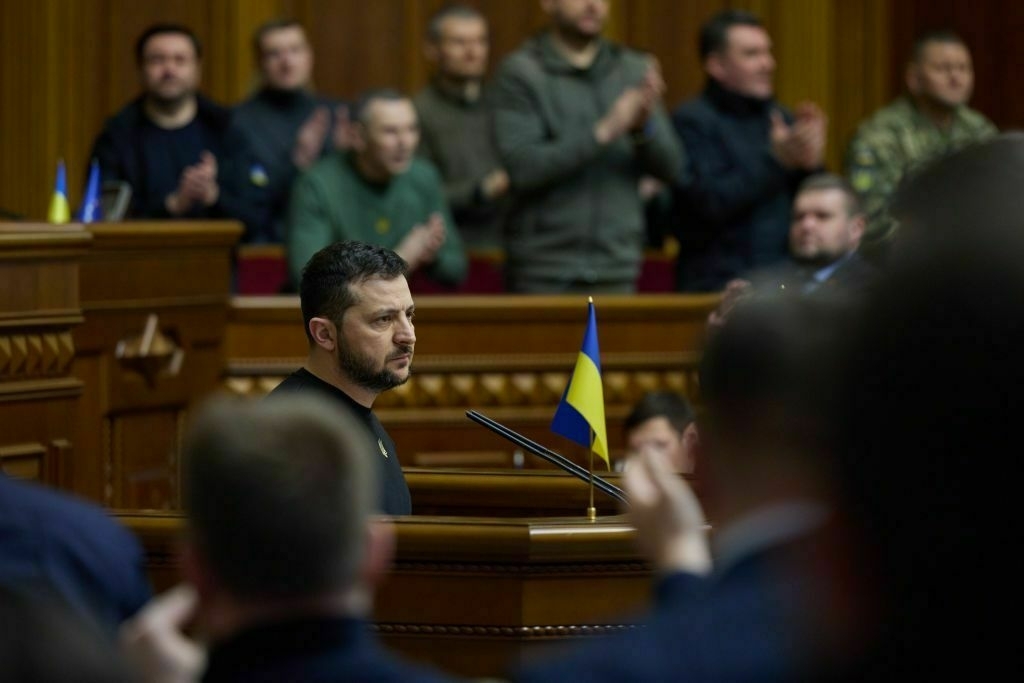
Editor’s note: This is issue 30 of Ukrainian lawmaker Yaroslav Zhelezniak’s weekly “Ukraine Reforms Tracker” covering events from June 9–June 15, 2025. The digest highlights steps taken in the Ukrainian parliament related to business, economics, and international financial programs.
The Kyiv Independent is republishing with permission.
Benchmarks and soft commitments with the IMF
Candidate implicated in corruption case shortlisted to lead Ukraine’s gas grid operatorOksana Kryvenko, director of regulation at GTSOU and a former head of Ukraine’s energy regulator, became one of seven finalists in the selection process for CEO of the Gas Transmission System Operator of Ukraine (GTSOU).
In 2024 she was appointed as advisor to the current Energy Minister Herman Halushchenko.
She is also a defendant in the Rotterdam+ case, a high-profile investigation by NABU currently under trial.
Obligations to the EUUkraine falls short on reform targets, risks 1.5 billion euros short in EU support
Ukraine has completed only three of 11 reform benchmarks due by the end of Q2, according to monitoring report of RRR4U, a consortium of Ukrainian top think tanks. Three missed structural milestones from Q1 — reform of ARMA, expanding the High Anti-Corruption Court’s staff, and restructuring territorial executive governance — could cost the country up to 1.5 billion euros in EU funding under the Ukraine Facility program.
Ukraine Parliament to consider EU-linked bіills, including ARMA reform
Ukraine’s parliament Verkhovna Rada is set to review a series of legislative initiatives this week tied to the country’s commitments under the Ukraine Facility program.
On June 18, lawmakers are expected to vote in final reading draft law #12374-d, which aims to restart Ukraine’s Asset Recovery and Management Agency (ARMA). The president’s alternative proposal, draft law #13268, is also on the agenda.
There are also several other bills on the agenda, including:
- draft law #12377 on the fundamentals of housing policy;
- presidential draft law #13302 on establishing a Specialized Administrative Court and an Appellate Administrative Court;
- draft law #9363 on the digitalization of enforcement proceedings;
- draft law #13202-1 aligning Ukraine’s agricultural support mechanisms with EU standards.
Ukraine’s parliament passes state asset agency reform crucial for EU fundingThe legislation passed with the support of 253 lawmakers “after months of obstructions… unblocking 600 million euros ($690 million) in EU funds,” lawmaker Yaroslav Zhelezniak said.The Kyiv IndependentMartin Fornusek
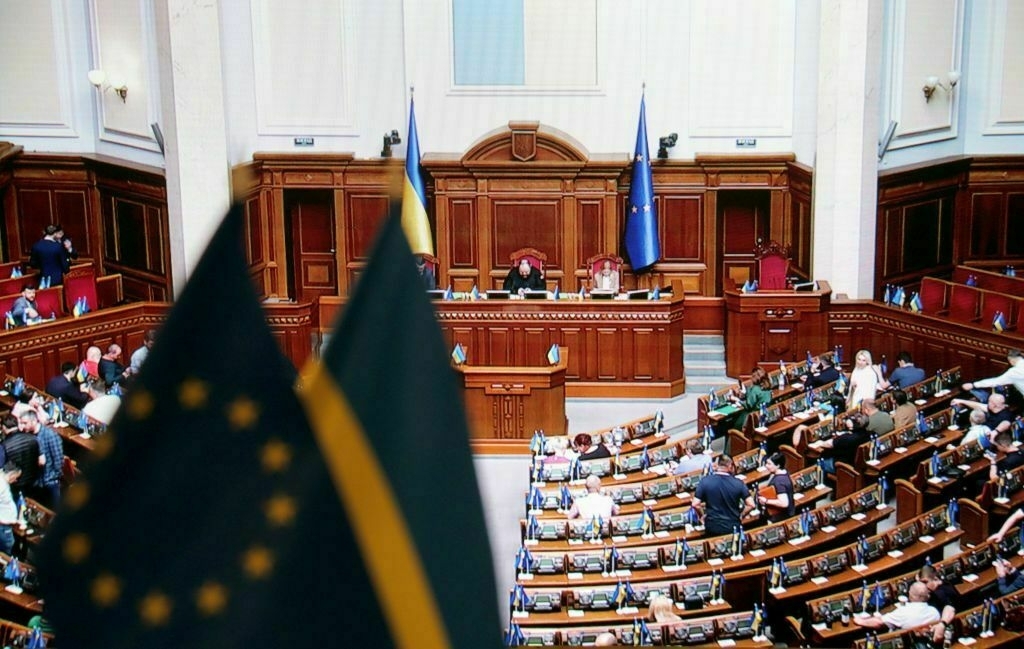
Ukraine appoints youngest Prosecutor General in country’s history
Ukraine’s Parliament on June 17 appointed Ruslan Kravchenko as prosecutor general, ending a seven-month vacancy. Kravchenko, 35, most recently headed the State Tax Service and previously served as governor of Kyiv Oblast. His appointment makes him the youngest prosecutor general in Ukraine’s history, having just reached the minimum age threshold for the role in March.
Ukraine expects Cabinet shake-up, with Svyrydenko tipped as new prime minister
The Presidential Office plans to replace Prime Minister Denys Shmyhal, with a decision reportedly finalized over the weekend, according to several sources of Yaroslav Zhelezniak. First Deputy Prime Minister Yuliia Svyrydenko is expected to be nominated as his successor. Svyrydenko seems to be the only candidate under consideration.
Before proceeding, parliament is likely to amend Article 10 of the Law on Martial Law, which currently prohibits dismissing the Cabinet during wartime. Once passed, Shmyhal is expected to resign voluntarily, clearing the way for the formation of a new government.
Ukraine’s parliament passes bill allowing multiple citizenshipUkraine’s parliament on June 18 supported a bill allowing Ukrainian citizens to hold passports of foreign countries, lawmaker Yaroslav Zhelezniak said.The Kyiv IndependentMartin Fornusek
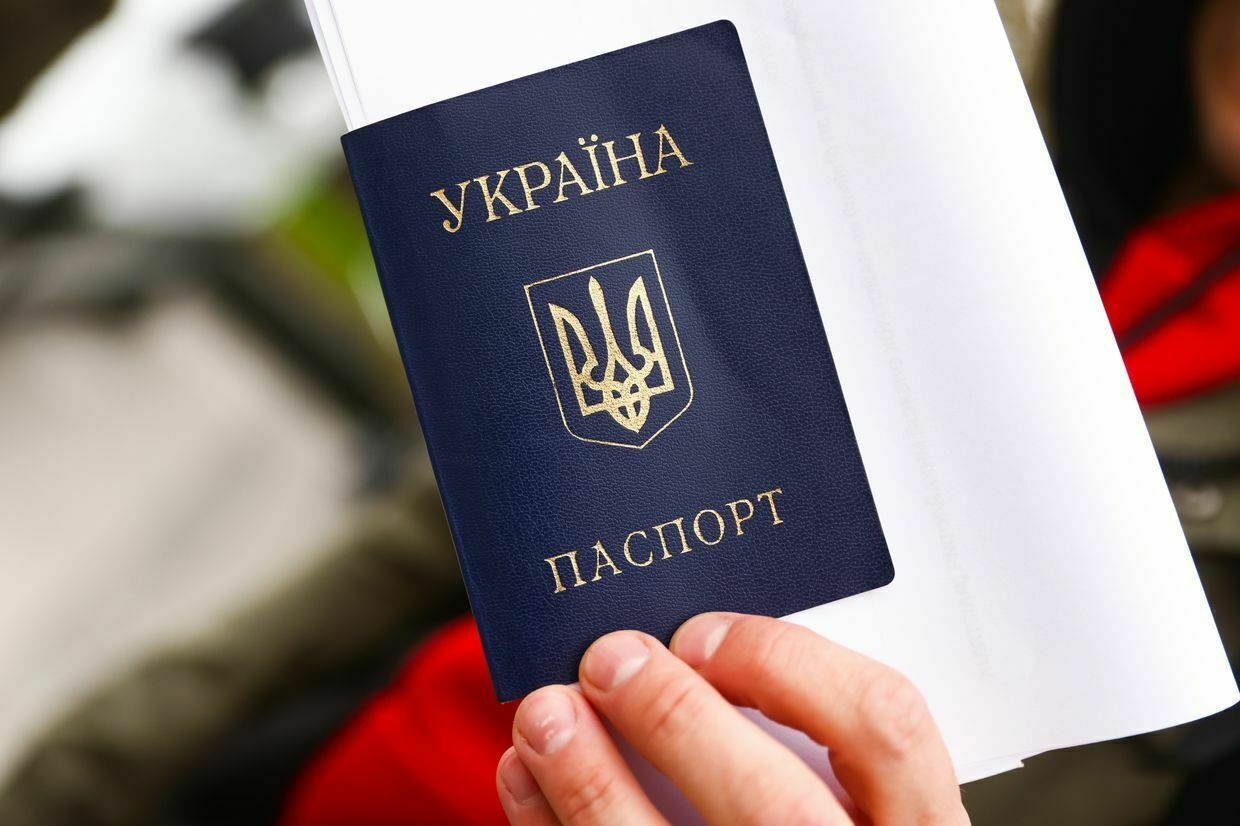
-
Spain rejects NATO 5% defense spending push, calls proposal 'unreasonable'
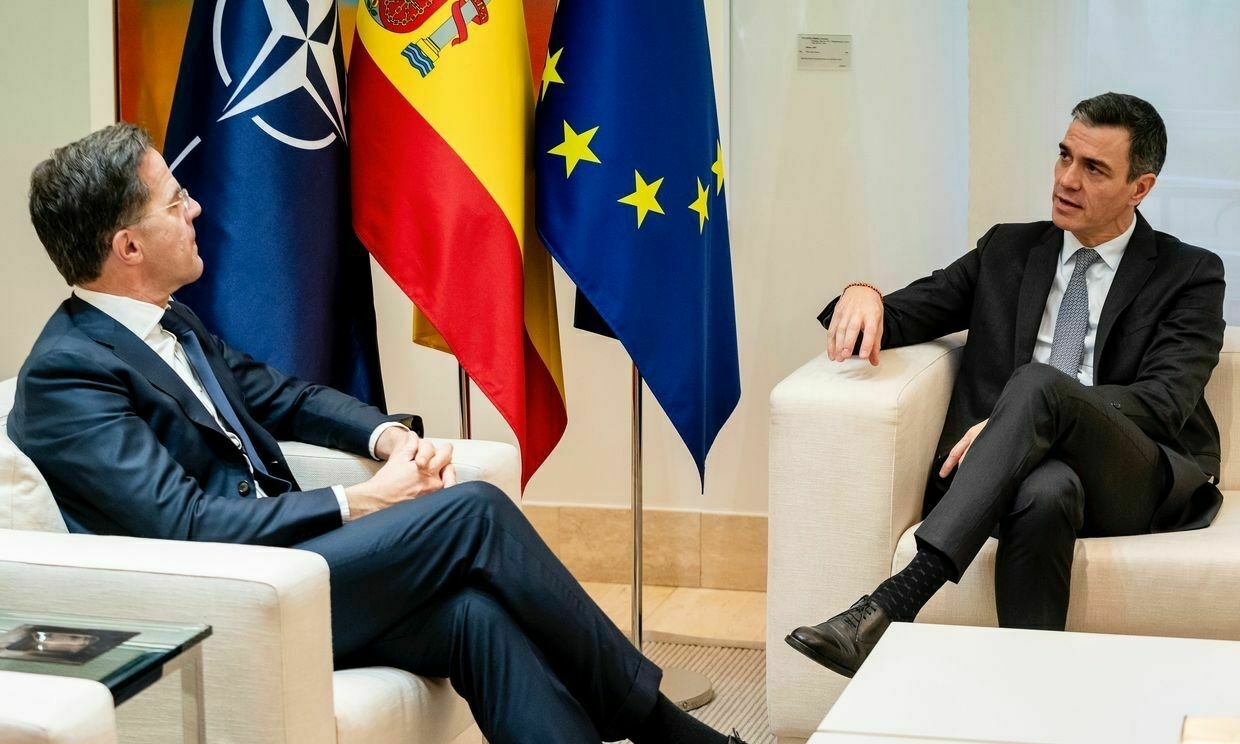
Spain has rejected a U.S.-backed proposal for NATO members to raise defense spending to 5% of GDP, becoming the first alliance country to oppose the plan, Reuters reported on June 19.
The rejection adds pressure to the transatlantic debate ahead of the NATO summit in The Hague on June 24–25, which has beenreduced to a single session focused on defense spending and alliance capabilities.
In a letter to NATO Secretary General Mark Rutte, Spanish Prime Minister Pedro Sanchez called the proposed target “unreasonable” and warned it would undermine broader European efforts to build an integrated defense ecosystem.
“Committing to a 5% target would not only be unreasonable, but also counterproductive,” Sanchez wrote, arguing it would “move Spain further away from optimal spending."
Spain estimates that its armed forces require spending equal to 2.1% of GDP to meet national military objectives, below the U.S.-endorsed threshold but above NATO’s 2% benchmark.
U.S. President Donald Trump has repeatedly accused NATO members of underfunding their militaries, pushing for raising defense spending benchmark to 5% of GDP.
While no other NATO members have formally rejected the proposal, most have remained noncommittal. Poland, the Netherlands, and Sweden have expressed willingness to consider the 5% target.
In 2024, only 23 alliance members met the 2% target, according to NATO estimates. Poland was ahead of all members with 4.12% of GDP allocated to defense, followed by Estonia (3.43%) and the U.S. (3.38%).
Rutte said on June 17 that all NATO countries are on track to meet the 2% threshold in 2025.
Spain, governed by a Socialist-led coalition, maintains a sharply different defense posture than the U.S. administration.
While Madrid supports Ukraine, it has taken a more cautious stance on the Middle East, including distancing itself from U.S. policy on Israel.
Diplomacy in crisis: G7 letdowns reveal limits to Western solidarity on UkraineKANANASKIS, Canada — The Group of Seven (G7) Leaders’ Summit ended on June 17 with no joint statement in support of Ukraine, no commitments to provide desperately needed U.S. weapons, and no meeting between President Volodymyr Zelensky and U.S. President Donald Trump. The Ukrainian delegation headed into the summit,The Kyiv IndependentDmytro Basmat
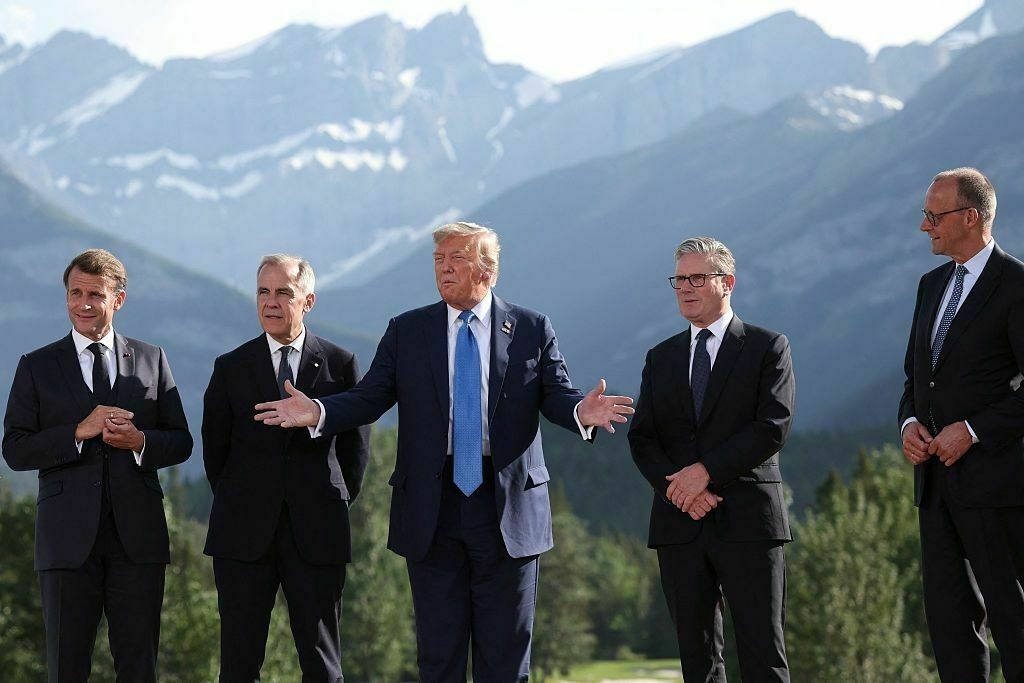
-
Trump's peace push falters in both Ukraine and the Middle East — for similar reasons
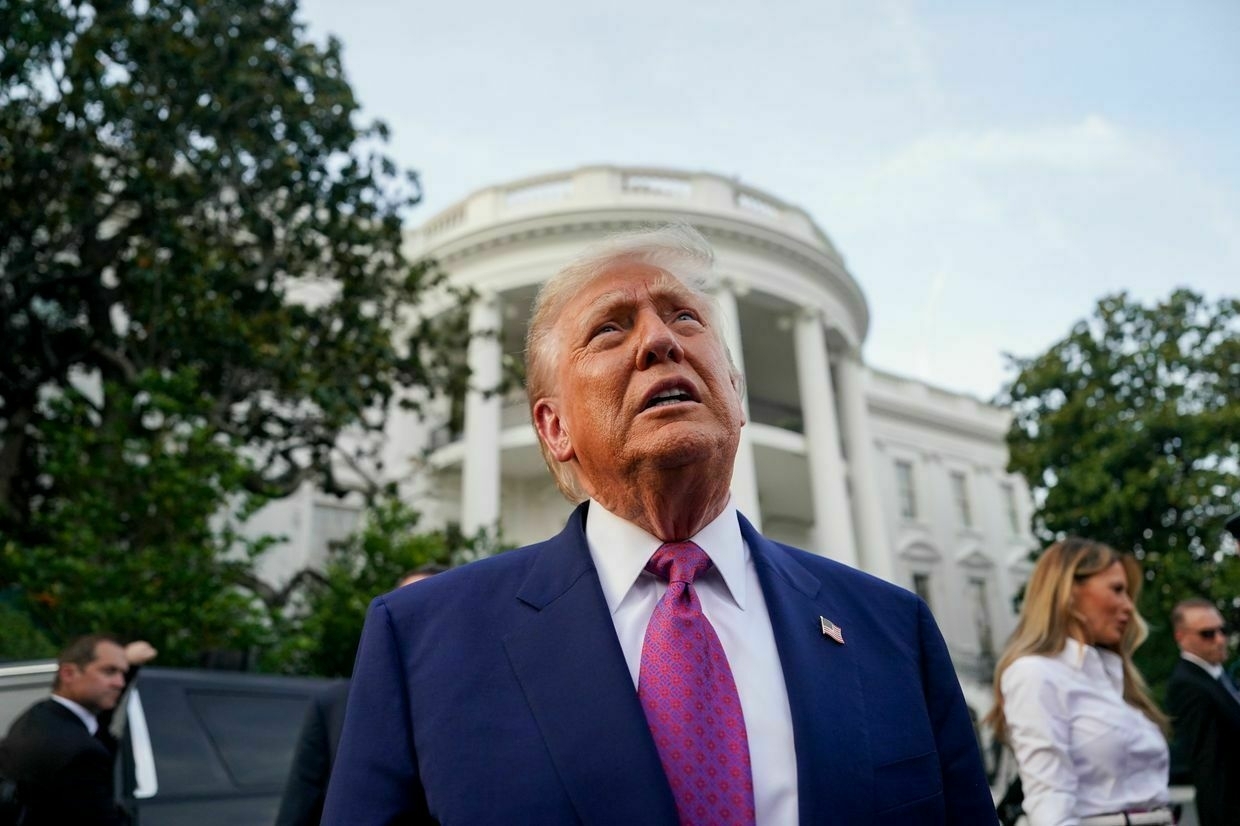
U.S. President Donald Trump addressed a wide range of subjects during his inauguration speech.
When speaking about international relations, he was adamant — “Our power will stop all wars and bring a new spirit of unity,” he said, talking about Russia’s war against Ukraine and the fighting in the Middle East.
Five months into Trump’s presidency, the wars intensify rather than end.
Israel launched a war against Iran on June 13. The war between Israel and Hamas, a terrorist organization running the Gaza Strip, continues, and Russia is stepping up its war against Ukraine.
Trump’s failure to bring peace is a result of his chaotic, incoherent and incompetent approach, analysts say.
Instead of being a genuine intermediary, Trump has pressured Ukraine rather than Russia and actively supported Israel in the multiple wars in the Middle East. And while Trump seems to have chosen a side in each conflict, he has shown a lack of strategy and long-term planning to end each of the wars he follows.
Jenny Mathers, a lecturer in international politics at the U.K.’s Aberystwyth University, told the Kyiv Independent that Trump’s “team lacks expertise and doesn’t listen to those with knowledge of the regions."
“Ultimately, his concern is not a stable or lasting peace but shoring up his own image and reputation and then monetizing these regions to enrich himself and others like him,” she added.
“Trump’s efforts are mostly performative — they might look good at the surface level, but there is very little process behind the effort.”
"This administration's approach to both (Ukraine and the Middle East) also suffers from Trump's personal impatience and his desire for quick results — he wants wins that he can take credit for, with the aim of getting past these messy conflicts and on to the money making."
Israel-Iran war could provide economic boost Russia needs to continue fight against UkraineIsrael’s “preemptive” strikes against Iran targeting the country’s nuclear program and killing top military officials could have far-reaching implications for Ukraine and could boost Russia’s ability to continue its full-scale invasion, experts have told the Kyiv Independent. Iran has been one of Russia’s staunchest allies throughout the war, providing thousandsThe Kyiv IndependentChris York
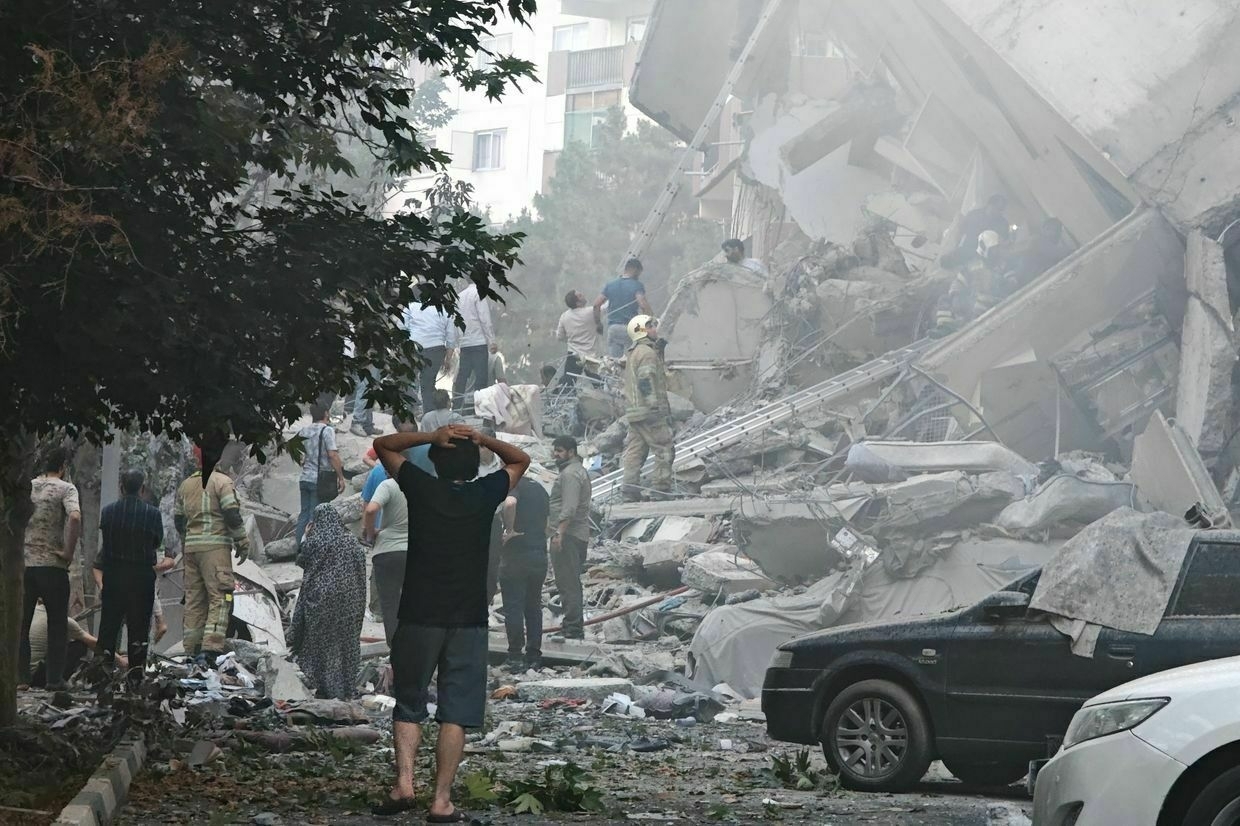
An incoherent approach in UkraineOne of the problems is that Trump lacks a coherent plan, and his statements and actions are often chaotic and contradictory.
"His approach to peace talks is highly personalized and driven by his own proclivities, rather than an evidence-based policy process," Neil Quilliam, a Middle East expert at Chatham House, told the Kyiv Independent.
"Trump's efforts are mostly performative — they might look good at the surface level, but there is very little process behind the efforts. The traditional offices of state, which would lend substance and credibility to any peace process, have been excluded, and therefore, Trump's statements are empty statements."
Mathers said that Trump "underestimates the complexity of these conflicts and the political, ideological and economic factors underpinning them."
Daniel Hamilton, a foreign policy expert at the Brookings Institution, also argued that "despite his assertion that he is a 'peacemaker,' Donald Trump is ill-at-ease with diplomacy and the kind of sustained attention and engagement that such efforts require."
Steve Witkoff, Trump's Middle East envoy who has also negotiated with Moscow on Ukraine, could not even name the Ukrainian regions illegally annexed by Russia.
"He is so focused on making lucrative deals with Russia and in the Middle East that he cannot comprehend the passions that drive either conflict and so exacerbates existing tensions rather than ameliorating them," he added.
Regarding Russia's war against Ukraine, Trump's aides, including his Ukraine envoy Keith Kellogg, had prepared a strategy before his return to power in January.
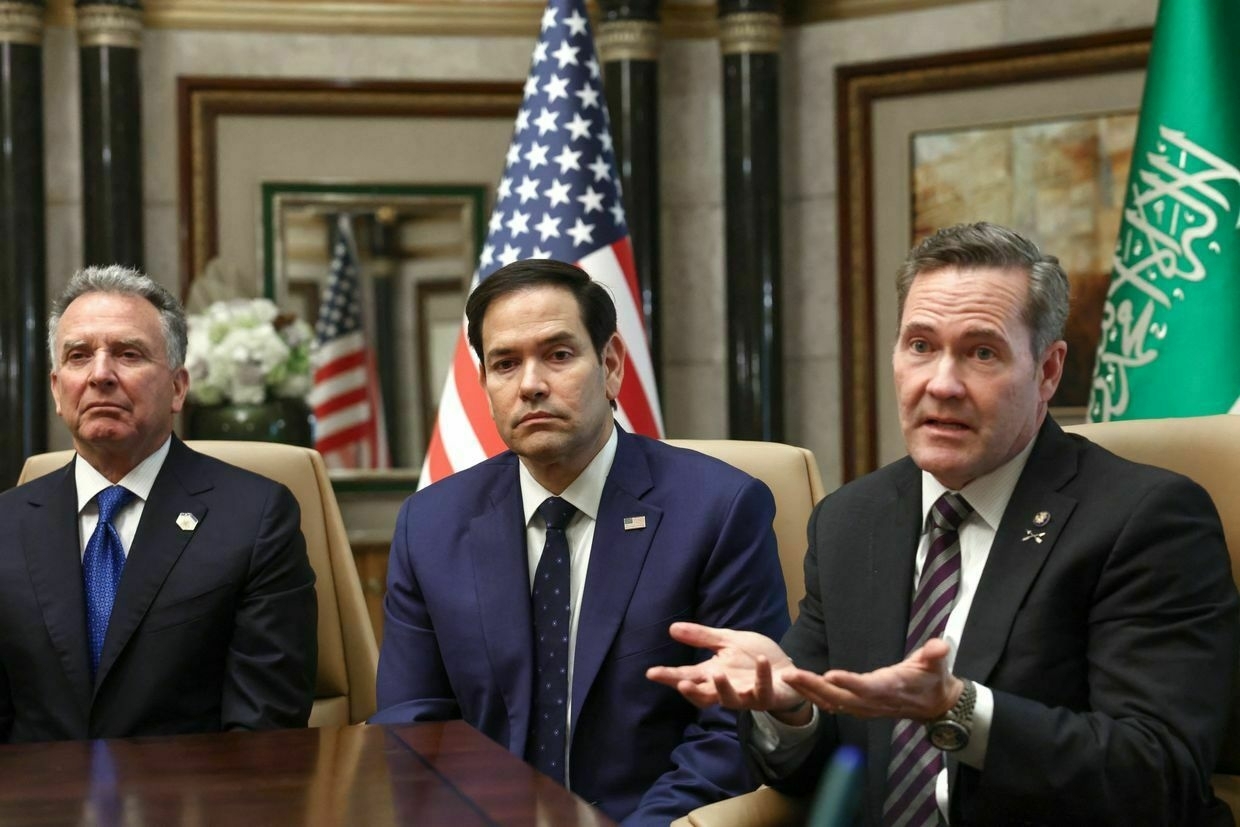
U.S. Secretary of State Marco Rubio (C), National Security Advisor Mike Waltz (R), and Middle East Envoy Steve Witkoff (L) in Riyadh, Saudi Arabia, on Feb. 18, 2025. (Evelyn Hockstein / AFP via Getty Images) Under the plan, the U.S. would cease military aid to Ukraine unless it agreed to hold peace negotiations with Russia. On the other hand, the U.S. would increase its military support for Ukraine if Russia refused to accept a peace deal.
Instead of sticking to the plan, Trump has refused to increase military aid to Ukraine or sanction Russia despite Moscow's refusal to accept a ceasefire. He has also vacillated between criticizing the Kremlin and praising Russian President Vladimir Putin.
"Part of the problem is that (Trump) sends mixed messages," Roland Paris, a professor of international affairs at the University of Ottawa, told the Kyiv Independent. "U.S. support for Ukraine has been on-again, off-again. He says he wants a peace agreement but also muses about letting Ukraine and Russia 'fight it out.'"
Incompetence has also been a factor.
In a March interview, Steve Witkoff, Trump's Middle East envoy who has also negotiated with Moscow on Ukraine, could not even name the Ukrainian regions illegally annexed by Russia.
He also falsely claimed that residents of the regions had voted for joining Russia in 2022.
Witkoff ignored massive evidence that the so-called "referendums" were held at gunpoint with widespread voter intimidation, that there was no way of monitoring the voting and its results, and that the votes contradicted international, Ukrainian and even Russian law.
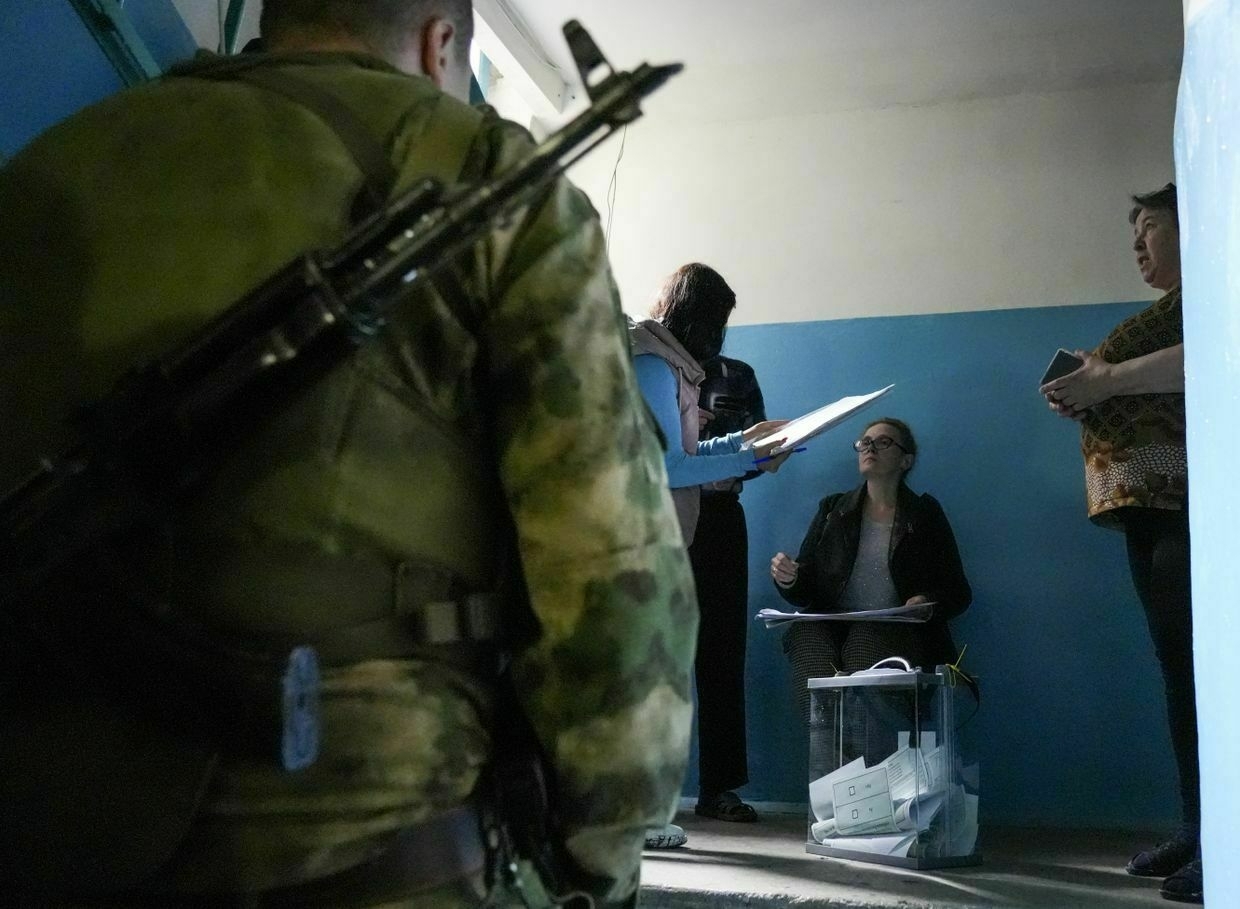
Residents cast their votes in a sham 'referendum' in Donetsk Oblast, Ukraine, on Sept. 23, 2022. (Stringer / Anadolu Agency via Getty Images) A lack of Middle East strategyIn the Middle East, Trump's team has also lacked any meaningful strategy.
On Gaza, Trump has vacillated between backing an outlandish plan to put the Gaza Strip under U.S. control and expel its residents, supporting Israel's military operation in the area, and brokering a peace deal between Israel and Hamas. The three strategies appeared to contradict each other.
His Iran policy has also been inconsistent.
In 2018, the Trump administration withdrew from a deal on ending Iran's nuclear weapons program reached by his predecessor Barack Obama.
"The Iranians remember very well what happened when they made a deal with the United States the first time — Trump just tore it up in 2018."
This did not prevent Trump from trying to negotiate a similar deal on Iran's nuclear program starting from April 2025.
"I think this track record is something that complicated Trump's attempts to reach an agreement with Iran," Aron Lund, a Middle East analyst at Century International, told the Kyiv Independent. "The Iranians remember very well what happened when they made a deal with the United States the first time — Trump just tore it up in 2018."
Quilliam said that the U.S.-Iranian "talks have hardly focused on substance, and so the meetings to date may have made some progress, but it is largely superficial."
As Trump fails to sanction Moscow, few expect breakthrough during upcoming Russia-Ukraine talksAs Ukraine and Russia prepare for peace talks scheduled for June 2 in Istanbul, few observers expect a breakthrough. While the U.S. and Ukraine have pushed for an unconditional ceasefire, the Kremlin has rejected it. Instead, Moscow has regularly voiced maximalist demands that are unlikely to be accepted byThe Kyiv IndependentOleg Sukhov
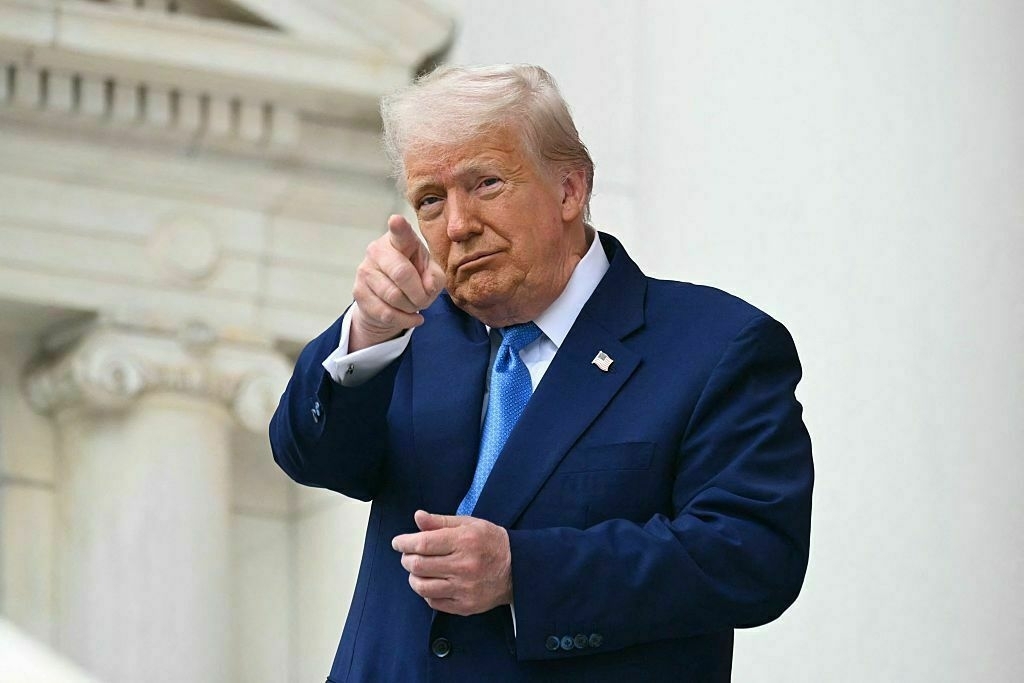
Backing RussiaAnother problem is Trump's delusional approach: calling himself an intermediary while backing one of the warring sides.
"I do see similarities in Trump's approach to peace talks in both regions," Mathers said. "In both cases, Trump has clearly picked a side: Russia in the case of the war in Ukraine and Israel in the war in Gaza and now the conflict with Iran."
She argued that, "although Trump might sometimes criticize Russia and Israel, he does not seem willing to go beyond verbal chastisement to taking concrete steps that might push those countries' leaders into changing their course of action, or at least suffering some consequences for continuing to pursue war."
In the Russia-Ukraine War, Trump has consistently favored Moscow and spurned Kyiv.
In February, Trump lashed out at President Volodymyr Zelensky during a meeting at the White House and ordered him to leave the building.
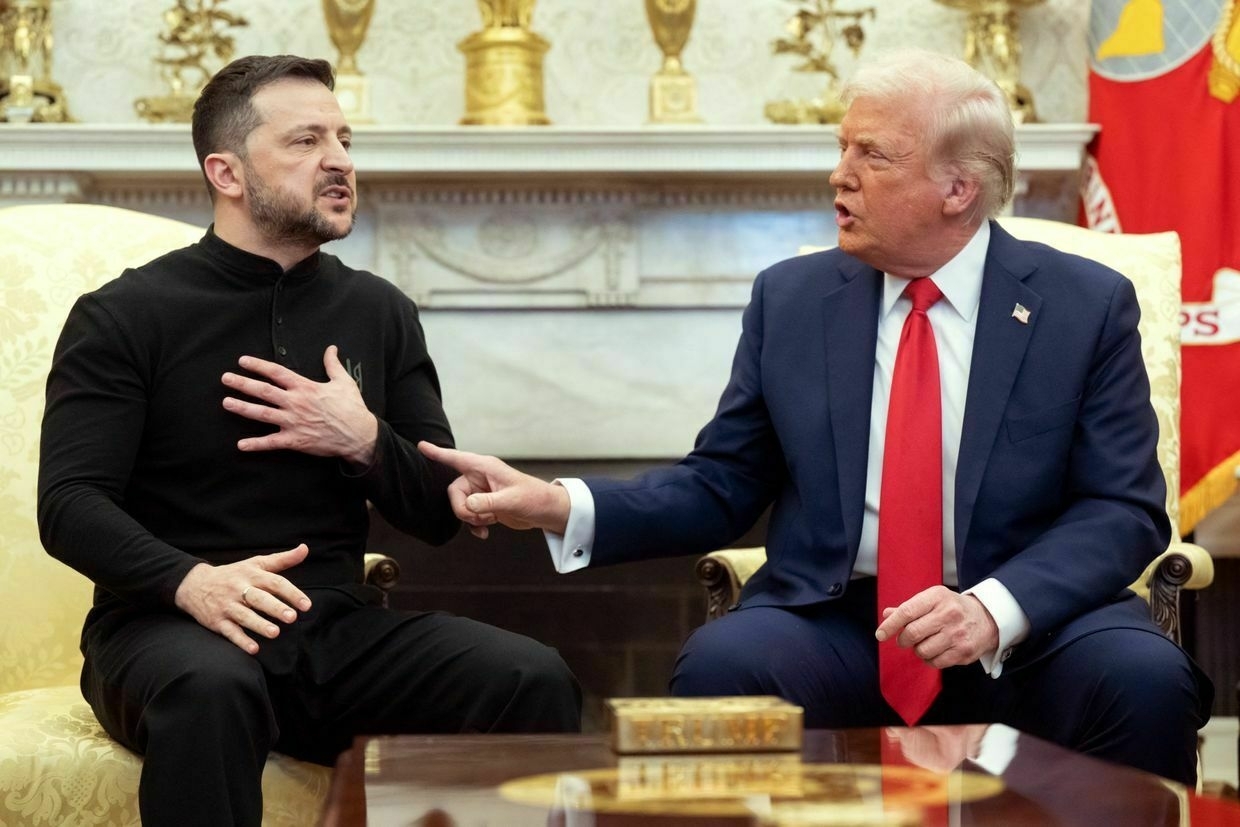
U.S. President Donald Trump and President Volodymyr Zelensky in the Oval Office of the White House on Feb. 28, 2025. (Saul Loeb / AFP via Getty Images) In the aftermath of the clash, Trump suspended military aid to Ukraine in March before resuming it a week later. Although Ukraine keeps getting U.S. aid approved under ex-President Joe Biden, no new military assistance packages have been approved since Trump took office in January.
Trump has also parroted Kremlin propaganda, including the narrative that Zelensky is an illegitimate "dictator."
Despite Russia's refusal to accept a Trump-backed ceasefire, he has so far failed to impose any new sanctions on Russia.
The Trump administration has also expressed readiness to make significant concessions to Moscow, including U.S. recognition of Russia's illegal annexation of Crimea, a ban on Ukraine's NATO membership, and lifting sanctions.
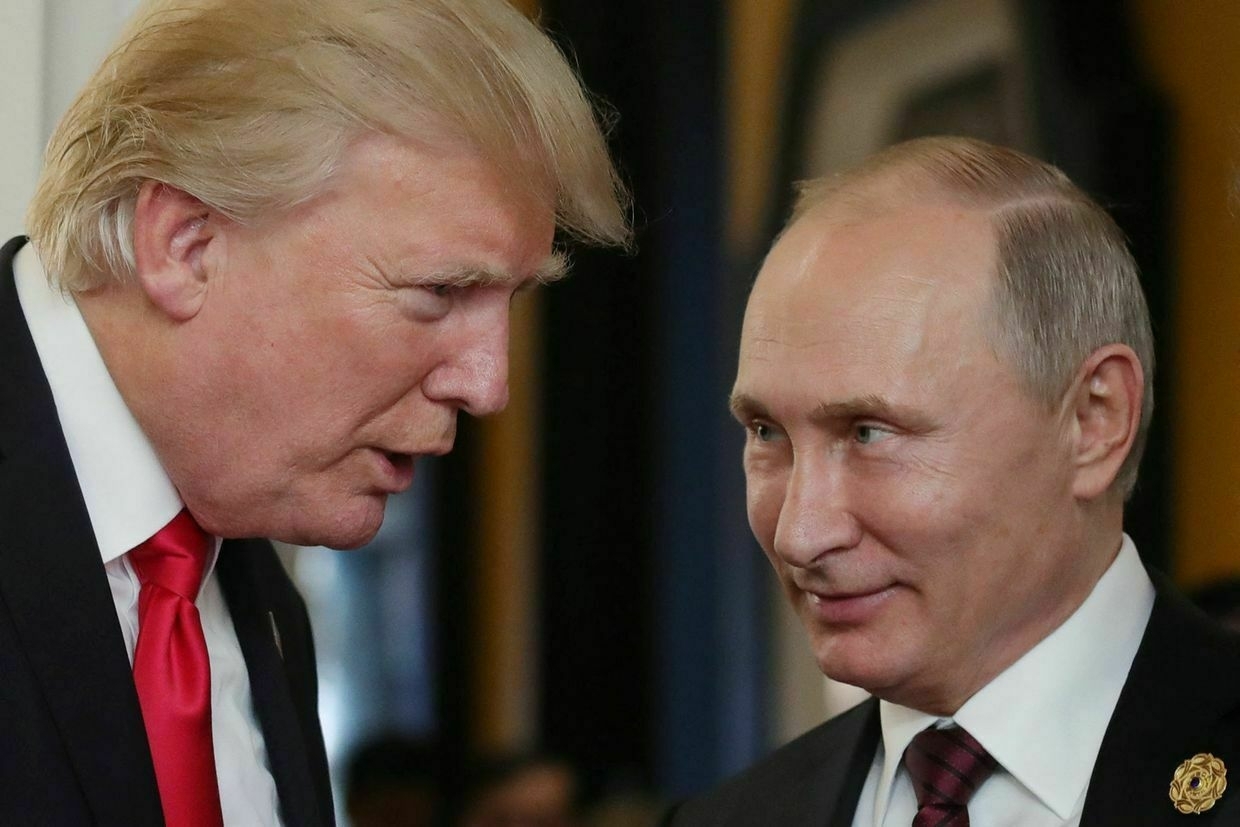
US President Donald Trump (L) chats with Russia's President Vladimir Putin (R) as they attend the APEC Economic Leaders' Meeting in Danang, Vietnam, on Nov. 11, 2017. (Mikhail Klimentyev / SPUTNIK / AFP via Getty Images) Supporting Israel in the Middle EastMeanwhile, Trump's Middle East policy has favored Israel.
The ongoing escalation in the region started in October 2023, when the Gaza-based Islamist group Hamas, an Iranian proxy, invaded Israeli territory, massacred 1,195 people, and took 251 people hostage. Hezbollah, Iran's Lebanese proxy, also joined the war.
Israel responded by invading Gaza and Lebanon. According to the Hamas-run Gaza Health Ministry, over 57,000 people have been killed in Gaza, although the Kyiv Independent could not independently verify the figure.
In November 2024, Biden's team negotiated a ceasefire between Israel and Hezbollah in Lebanon, and it is still in force.
Before he took office on Jan. 20, Trump's team also brokered the Jan. 15 ceasefire deal between Israel and Hamas in Gaza.
The deal was expected to be implemented in three stages. It envisaged exchanging all Israeli hostages held by Hamas for Palestinians held by Israel and Israel's gradual withdrawal from Gaza.
However, the agreement quickly unraveled as Israel and Hamas accused each other of violating it.
In March, Israel and the U.S. proposed extending the first stage of the ceasefire deal instead of proceeding to the second stage. Hamas refused, and Israel resumed military action as a result.
According to analysts, Israeli Prime Minister Benjamin Netanyahu was reluctant to move to the second phase because it could leave Hamas in control of the Gaza Strip. Israel's key military objective has been to eliminate Hamas to prevent attacks similar to the one carried out in October 2023.
"Israel was not ready for an end to the conflict that involved Hamas retaining a presence in Gaza," David Butter, a Middle East expert at Chatham House, told the Kyiv Independent.
Netanyahu was also afraid that his far-right allies would "blow up" the governing coalition if he fully implemented the ceasefire deal, Butter added.
Trump has not done anything to prevent the deal from collapsing or to resurrect it.
Lund said that Trump's "lack of consistency and follow-up is a huge problem."
"Trump inherited or negotiated agreements in Lebanon and Gaza, and then he just allowed them to fall apart," he said. "Israel has been pushing the envelope on these agreements, or just breaking them outright as we saw in Gaza, and there was no reaction from the White House. U.S. diplomacy related to Gaza is now completely screwed up."
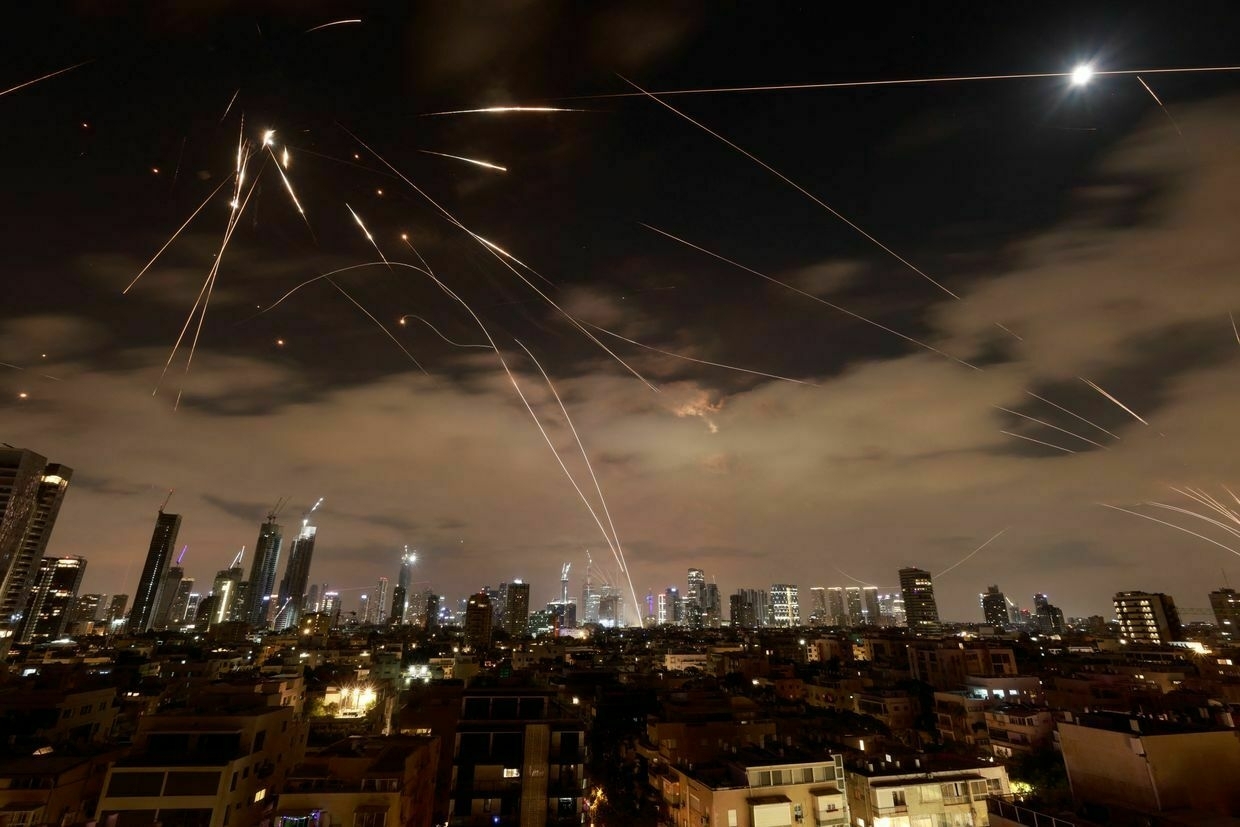
Israeli air defense systems intercept Iranian missiles over Tel Aviv during a fresh barrage on June 16, 2025. (Menahem Kahana/AFP via Getty Images) 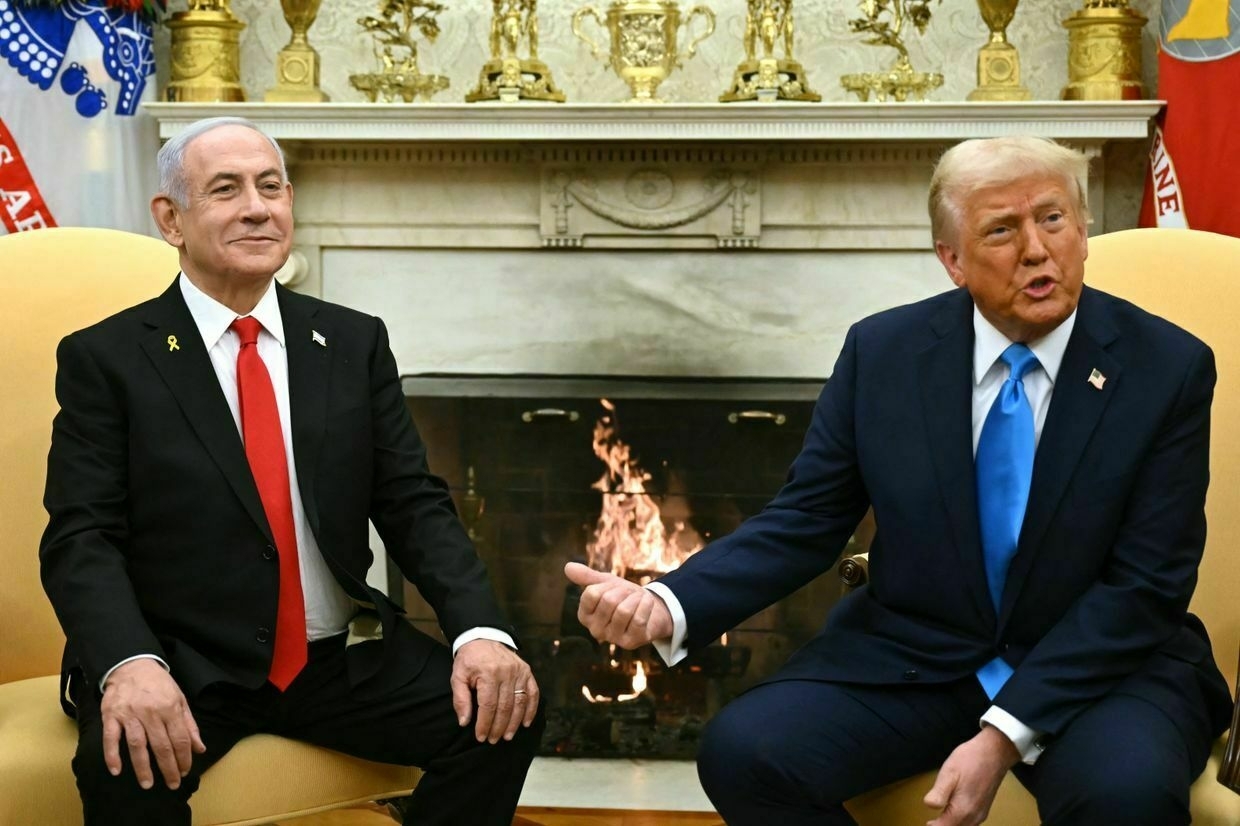
U.S. President Donald Trump meets with Israeli Prime Minister Benjamin Netanyahu in the Oval Office of the White House in Washington, D.C., on Feb. 4, 2025. (Andrew Caballero-Reynolds/AFP via Getty Images) Quilliam argued that "Trump and Witkoff have failed to bridge the gap between the Israeli government and Hamas mostly because their positions are antithetical but also because the U.S. has been unwilling to push Netanyahu to make any meaningful compromise, and the Israeli prime minister knows that he has license to act with impunity."
On the Iran issue, Trump initially tried to act as an intermediary between Iran and Israel and negotiate a deal to end Tehran's nuclear weapons program.
But then Trump appeared to have forgotten his mediation efforts when Israel attacked Iranian nuclear facilities on June 13.
Israel justified the attacks by saying that Iran was on the verge of creating a nuclear bomb. The Israeli government has sought to prevent Tehran from obtaining nuclear weapons as Iranian leaders have repeatedly called for eliminating Israel.
The International Atomic Energy Agency (IAEA) said on June 12 that Iran was in breach of its nuclear non-proliferation obligations, although IAEA Director General Rafael Grossi said in a June interview he had no proof that Tehran was currently developing a nuclear weapon.
Trump fully backed Israel's war effort.
Axios reported on June 17, citing unnamed sources, that Trump was weighing direct military action against Iran, including potential strikes on its nuclear facilities.
The same day, Trump demanded Iran's "unconditional surrender" on Truth Social and threatened Supreme Leader Ayatollah Ali Khamenei.
Lund said that "U.S. partisanship is something Israel's enemies have always complained about."
He said that, before Trump, this partisanship had had some positive effects: "It kept Washington invested in their conflicts, and it gave the United States some leverage over Israel."
"(Under Trump's predecessors) Washington constantly nudged agreements in Israel's direction, but was also able to bring Israel to the table and, sometimes, deliver an Israeli signature," Lund said.
"That's what we're not seeing under Trump, so far. It's just all partisanship and pro-Israel posturing before his domestic audience, with very little actual delivery. There's no sense that Trump will, in the end, slam his fist on the table and say this is the deal, and we're sticking to it."
Trump cuts to US weapons aid likely to hit Ukrainian civilians before front lineEditor’s note: This article was updated on March 5 to include a statement from the U.S. European Command. President Donald Trump’s freeze on weapons is alarming Ukrainians, who look to U.S. air defense to stave off the worst of Russia’s missile attacks. A White House representative onThe Kyiv IndependentKollen Post
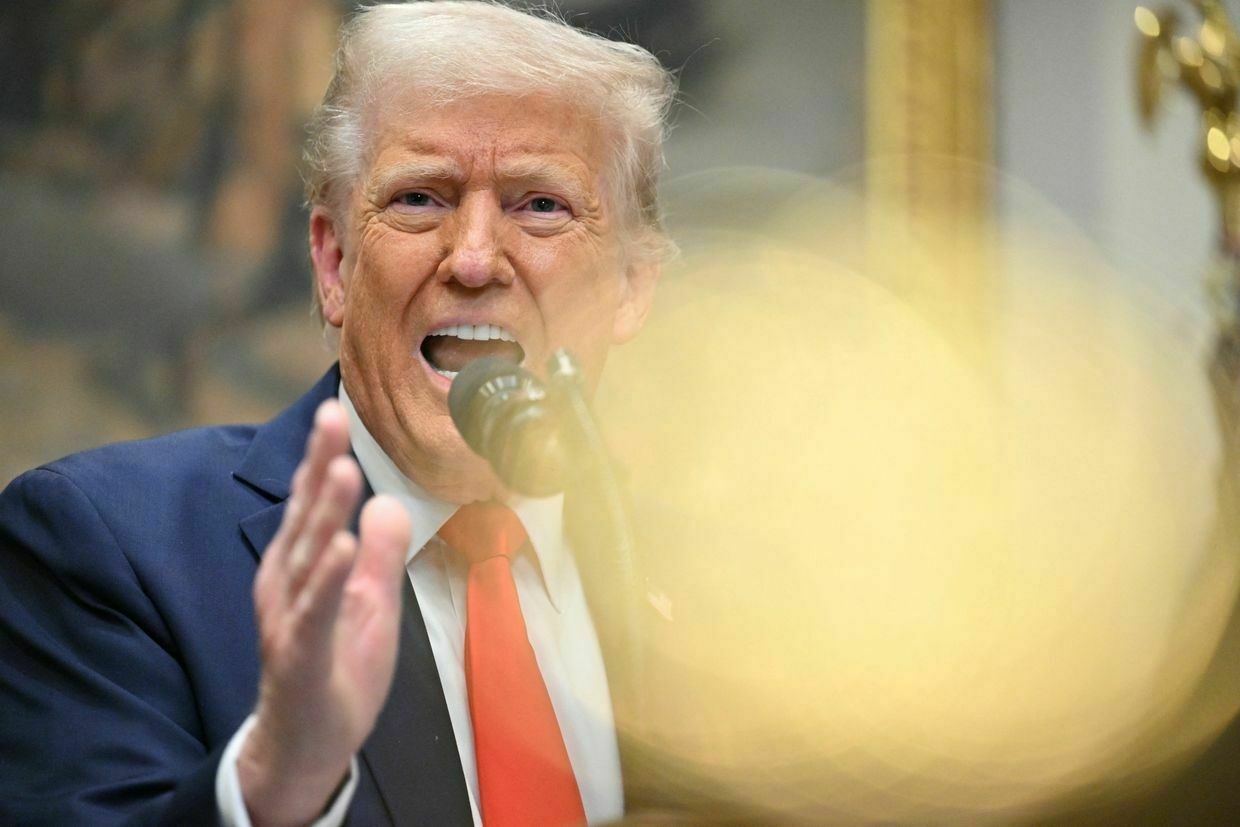
-
Russia says South Africa invited Putin to G20 summit despite ICC arrest warrant
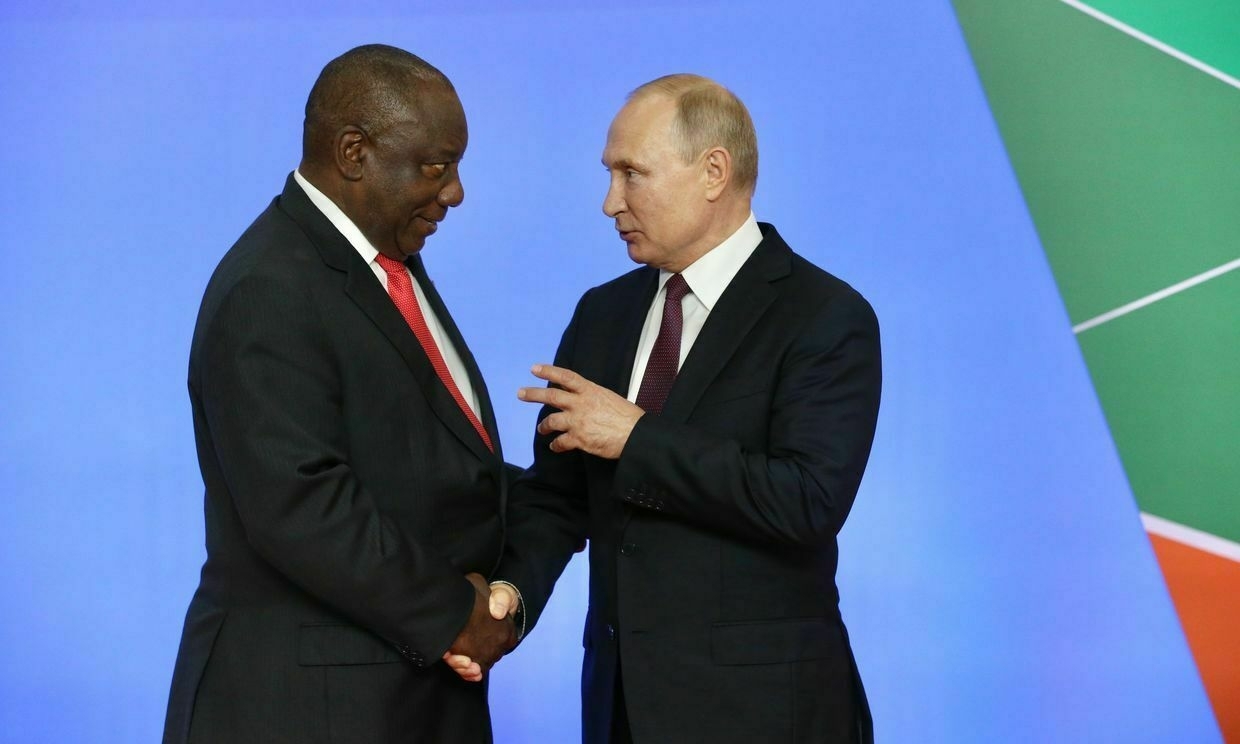
Russian President Vladimir Putin has received an official invitation to attend the G20 summit in South Africa, Russian Ambassador-at-Large Marat Berdyev said in an interview with state-owned media outlet RIA Novosti on June 19.
South Africa is a member of the International Criminal Court (ICC) and a signatory to the Rome Statute, meaning it is obliged to arrest Putin if he enters the country.
The ICC issued a warrant for the Russian leader’s arrest in March 2023 over the illegal deportation of Ukrainian children during Russia’s full-scale invasion of Ukraine.
“Last week, we received an official invitation. This is an appeal from the head of state, the president of South Africa (Cyril Ramaphosa), to his colleagues,” Berdyev said.
The summit is scheduled to take place in Johannesburg from Nov. 22 to 23. Berdyev noted that Russia’s final decision on Putin’s participation will be made closer to the date. In recent years, Russia has been represented at G20 summits by Foreign Minister Sergey Lavrov.
Despite the warrant, South Africa continues to deepen political and military ties with Moscow. In 2023, the country conducted joint naval drills with Russia and China, and maintains its membership in the BRICS bloc alongside both nations.
In November 2024, Putin skipped the G20 summit in Brazil, another ICC member state, and sent Lavrov instead. Russia’s G20 participation has continued uninterrupted despite its war against Ukraine.
In September 2024, Putin made a rare visit to Mongolia, which is also a signatory of the ICC, prompting criticism over the non-enforcement of the warrant.
Putin-Trump meeting currently not on the table, Kremlin says“Until the necessary ‘homework’ is done to remove the irritants in our relations with the United States, it makes no sense to organize a meeting,” Kremlin spokesperson Dmitry Peskov said.The Kyiv IndependentAnna Fratsyvir
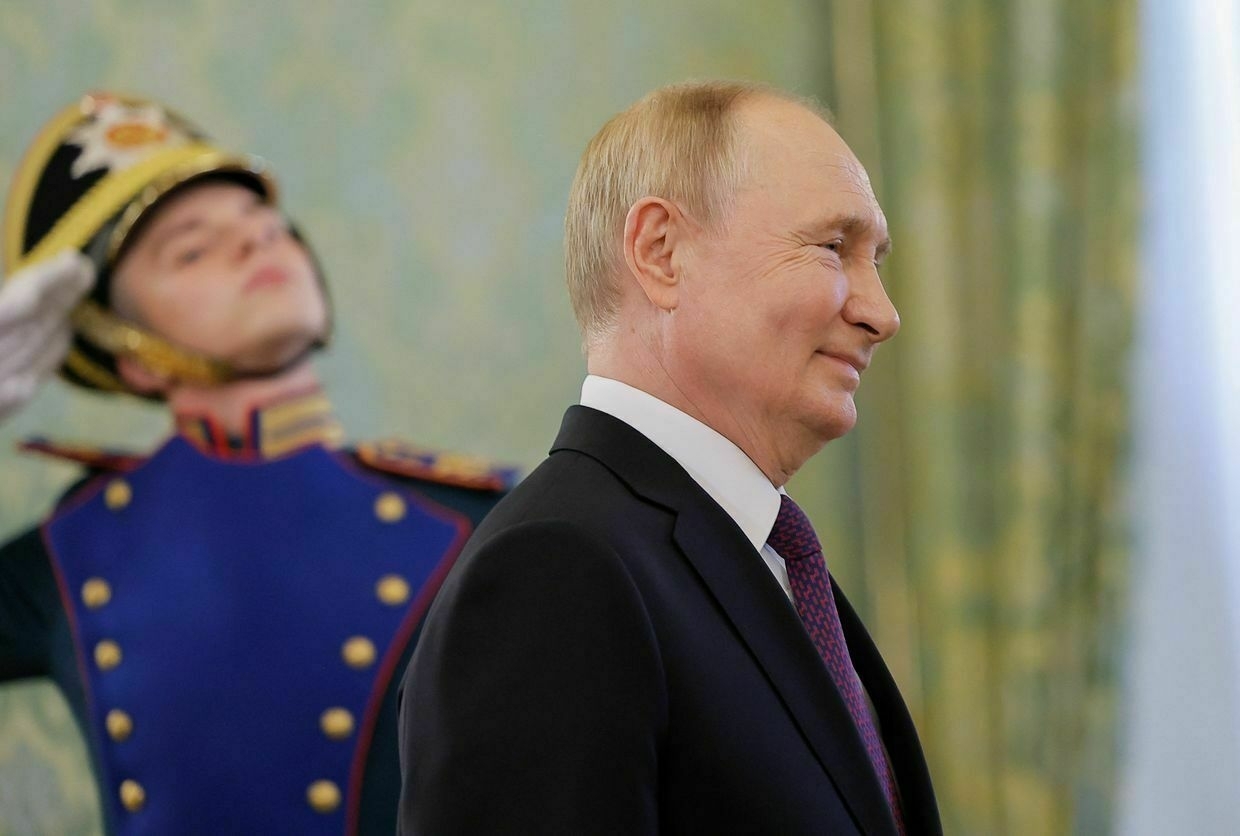
-
Putin-Trump meeting currently not on the table, Kremlin says
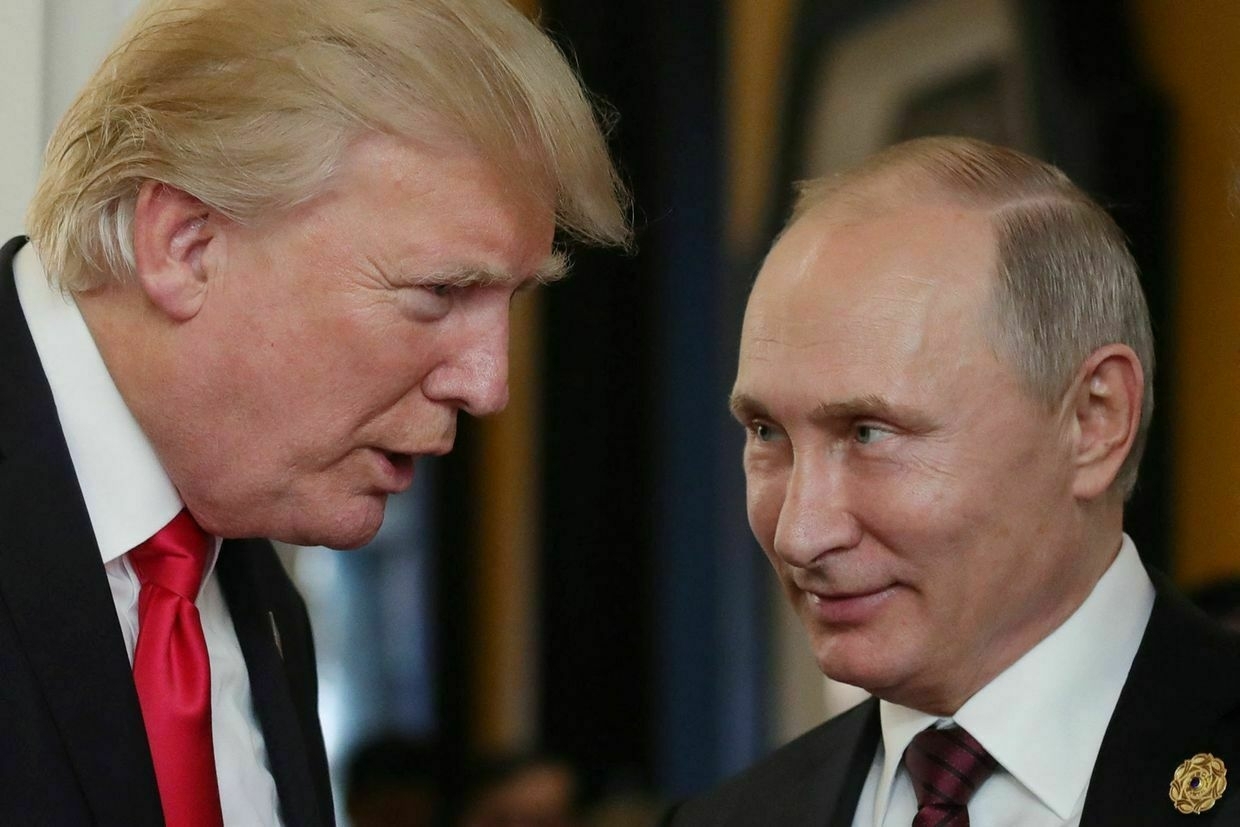
A meeting between Russian President Vladimir Putin and U.S. President Donald Trump is not currently on the table due to unresolved tensions in bilateral relations, Kremlin spokesperson Dmitry Peskov said in an interview with Russian state-controlled newspaper Izvestia on June 19.
The U.S. president has repeatedly floated the idea of meeting Putin, saying the Russia-Ukraine war cannot be resolved without them talking face-to-face. Nevertheless, the two have not met since Trump returned to the White House this January.
While Trump has adopted a more amicable policy toward Russia than his predecessor, U.S. ex-President Joe Biden, he has taken a more critical tone toward Moscow recently as Putin continues to reject a truce in Ukraine.
“Until the necessary ‘homework’ is done to remove the irritants in our relations with the United States, it makes no sense to organize a meeting,” Peskov said. He added that while talks aimed at resolving these issues had begun, progress remained minimal and the key obstacles were still in place.
His remarks come just days after the Russian Foreign Ministry claimed that Washington had canceled the next round of talks to restore diplomatic relations between the two countries.
The meetings, which were expected to take place in Moscow, were part of a broader dialogue to address ongoing disputes, including Russia’s war against Ukraine, and improve the functioning of each side’s diplomatic missions.
Russian Foreign Ministry spokesperson Maria Zakharova said the planned round was intended to “eliminate irritants,” such as staffing restrictions and banking issues for embassies. She expressed hope that the U.S. pause in talks “will not become too long."
The last two rounds of discussions, in Riyadh in February and Istanbul in April, marked the first formal diplomatic contact between the U.S. and Russia since Moscow began its full-scale invasion of Ukraine in 2022. Both sides described the Istanbul round as “constructive,” though it focused largely on technical matters.
The Trump administration has so far refrained from introducing new sanctions against Russia, despite pressure from Kyiv and growing alarm in Europe over Moscow’s continued refusal to agree to a ceasefire.
President Volodymyr Zelensky has repeatedly urged Washington to take a firmer stance, warning that “America’s silence… only encourages Putin."
After a deadly Russian attack on Kyiv that killed 28 and injured over 130 people, Trump remained silent, with the U.S. Embassy only issuing a late statement denouncing the attack.
’100 days of Russian manipulations’ — Ukraine blasts Moscow over disregarding US ceasefire effortA hundred days since the U.S. and Ukraine agreed on a ceasefire, “Russia continues to choose war,” Foreign Minister Andrii Sybiha said on June 19, urging international pressure to push Moscow toward peace.The Kyiv IndependentMartin Fornusek
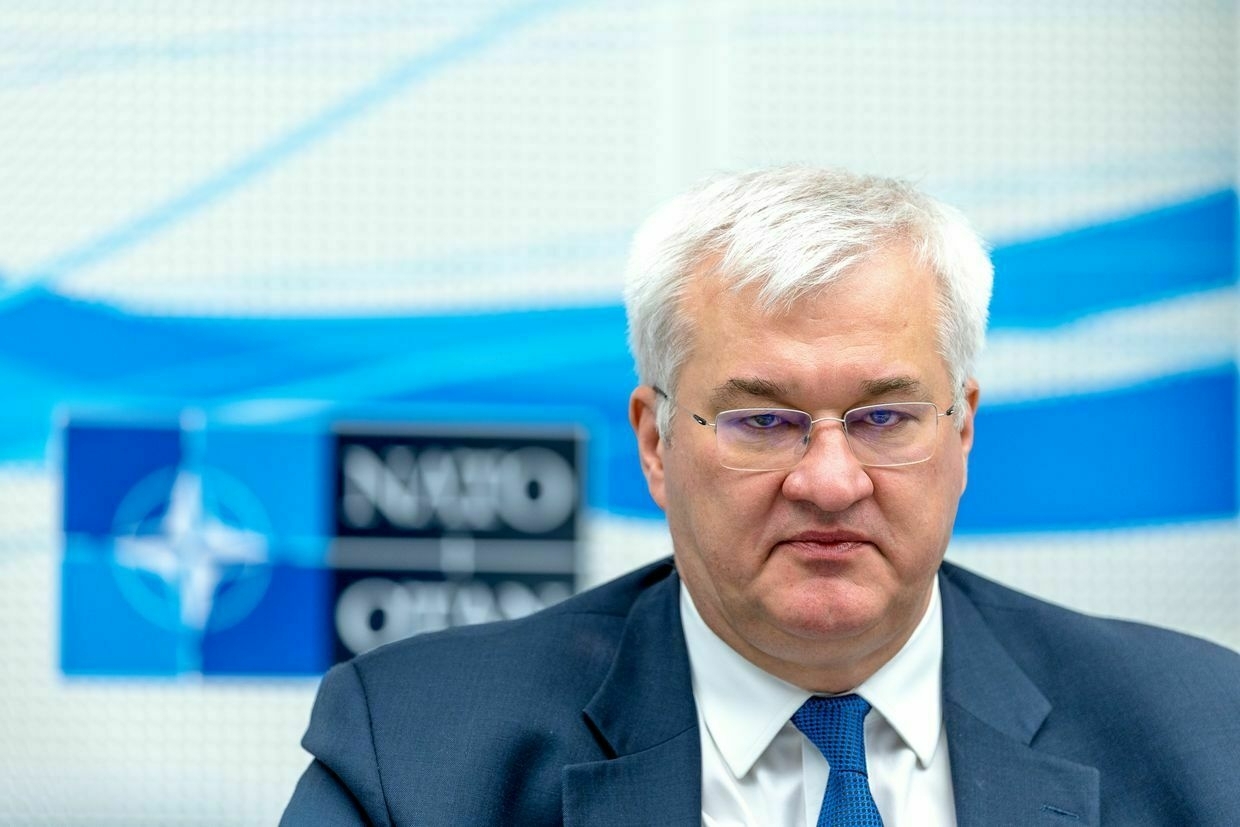
c -
The death of our dear Dog of War
Close readers of The Counteroffensive will recall that last December, we tried to raise funds for our journalism by selling Dog of War calendars.
For our June photo, we had Goldie, a pup who we found at the Hostomel dog shelter. A beautiful canine with some trust issues (well, who among us doesn’t have that?), she made the perfect portrait for the start of summer.
When we printed the calendar, we had no idea that the late spring and early summer would see rapidly-escalating Russian attacks throughout the country, terrorizing civilians on a far more frequent basis – and killing, injuring more too.
The strain is not just acute, but cumulative and chronic. It is the feeling of perpetually not knowing whether you are safe. It is the concept that you are always one moment away from danger. The unknown plays like a shadow on the mind.
The vulnerable and innocent suffer the most. The elderly, the children – and the dogs. A lot of times, the unbearable noise of explosions can be too much for a horrified animal.
On Tuesday, Goldie was killed by Russia, the victim of yet another attack.
"Our sunny Goldie is gone. The beauty could not stand another shelling, got scared, lost consciousness, and never woke up again… Light clouds, our incredible girl," the shelter wrote in a post on its Instagram.
Goldie spent her whole life in the shelter and got there as a little puppy almost nine years ago with her sister Jane. She never had an owner or some constant figure in her life to get affection from, so she had some trust issues. Despite this, she was the ambassador of the shelter, as they referred to her in the memorial post on their Instagram.
"[She was] a ray of sunshine who met and saw off guests. The dog that always pleased with her presence and gentle attitude towards visitors," the shelter wrote in the post.
The Counteroffensive reached out to get the specifics on what happened to Goldie.
"She died of a heart attack. It happened instantly," said Maria Vronska, the owner of the shelter. The staff didn't even have a chance to help her. Goldie was a healthy dog, with all the necessary vaccines, according to Maria.
It’s not the first time a dog in this shelter has died during a loud attack. Some older dogs died throughout the years of war, too, from the noises of Russian terror.
“The shelter suffers quite a lot from the shelling, from the fact that it is very loud around, and we can't do anything to help the animals,” Maria said.
The Counteroffensive is not immune from the pressures and strain of seemingly-constant attacks. On Wednesday I asked our entire team to take the day off – the news about Goldie, combined with a sleepless night for the entire team, meant that everyone could use a breather.
Meanwhile we are trying to enhance our safety posture. We are covering the windows of our office in plastic to reduce its chance of shattering during an explosion; I’ve issued every person on our team a medical kit; and we will soon make sure that we have blow-up mattresses and ear plugs so that our team can get a reasonable night’s rest in their hallways.
The Counteroffensive also covers the full cost of the team’s therapy sessions, which have become more necessary as the pressures of the war have increased.
These all cost significant resources. If you want to help our team, you can by upgrading your subscription or hitting the tip jar below.
Want to send a note of encouragement to our team? Shoot one over in the comments below.
-
Ukraine, Russia carry out another POW exchange under Istanbul deal
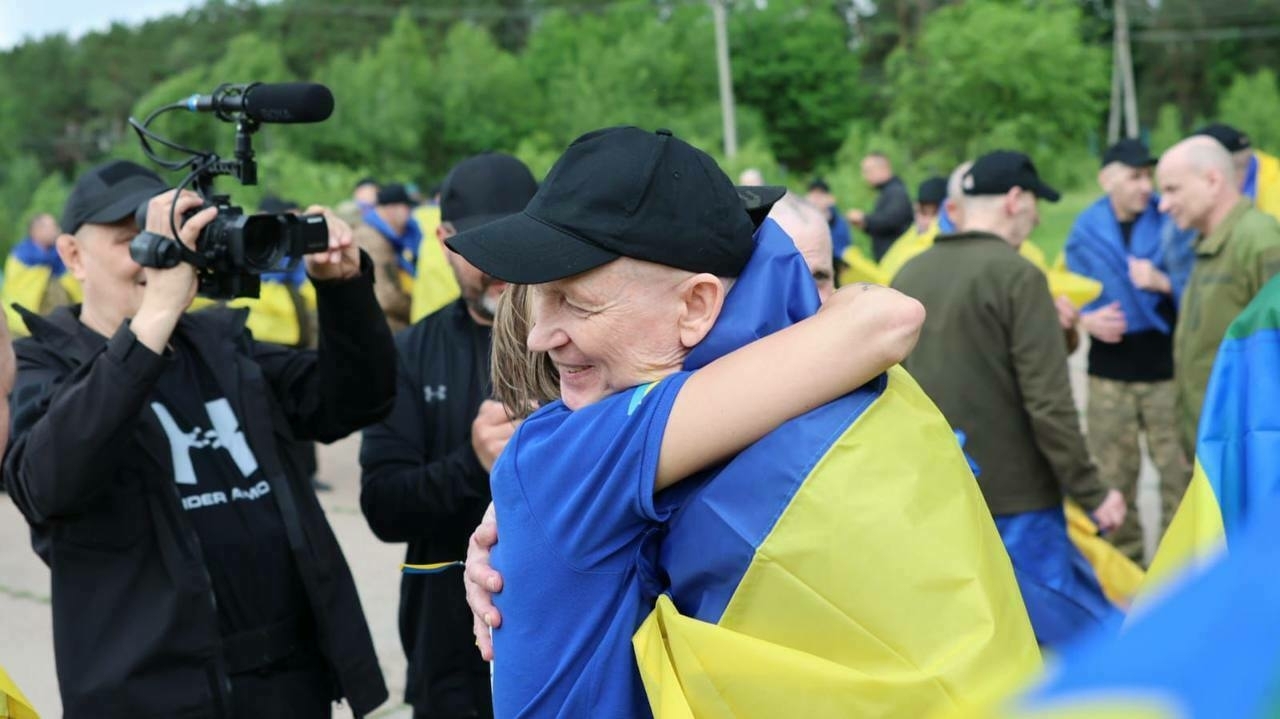
Editor’s note: The story is being updated.
Ukraine has brought home a group of soldiers released from Russian captivity, President Volodymyr Zelensky announced on June 19, marking yet another in a recent series of exchanges with Moscow.
“These are soldiers of the Armed Forces, the National Guard, and the State Border Guard Service. Most of them have been in captivity since 2022,” Zelensky said, without revealing their numbers.
The exchange follows four similar swaps carried out last week in accordance with Ukraine-Russia agreements reached at peace talks in Istanbul on June 2. As in the other recent cases, the latest swap focused on severely ill and wounded prisoners of war (POWs), Ukraine’s Coordination Headquarters for the Treatment of POWs said.
Russia’s Defense Ministry also announced a prisoner exchange with the Ukrainian side, without specifying the number of soldiers involved.
“Every defender released today has serious medical diagnoses and illnesses resulting from their injuries and captivity,” the Coordination Headquarters said.
A significant part of the released captives defended Mariupol during the Russian siege in 2022, while others fought elsewhere in the Donetsk, Luhansk, Kherson, Kharkiv, Sumy, Chernihiv, Zaporizhzhia, and Kyiv oblasts. All of them are privates or non-commissioned officers.
The oldest of the released captives was 63 years old, Ombudsman Dmytro Lubinets said, adding that another, a 45-year-old service member, was released on his birthday.
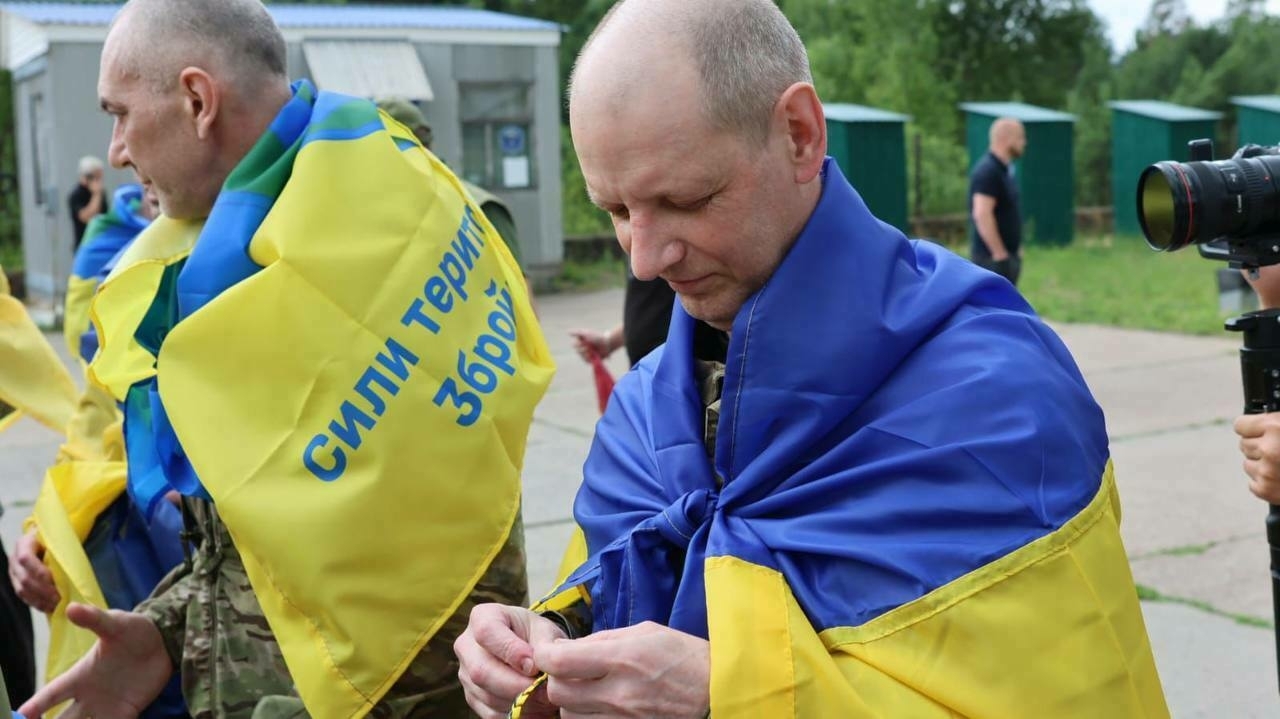
Ukrainian soldiers after being released from Russian captivity on June 19, 2025. (President Volodymyr Zelensky/Telegram) 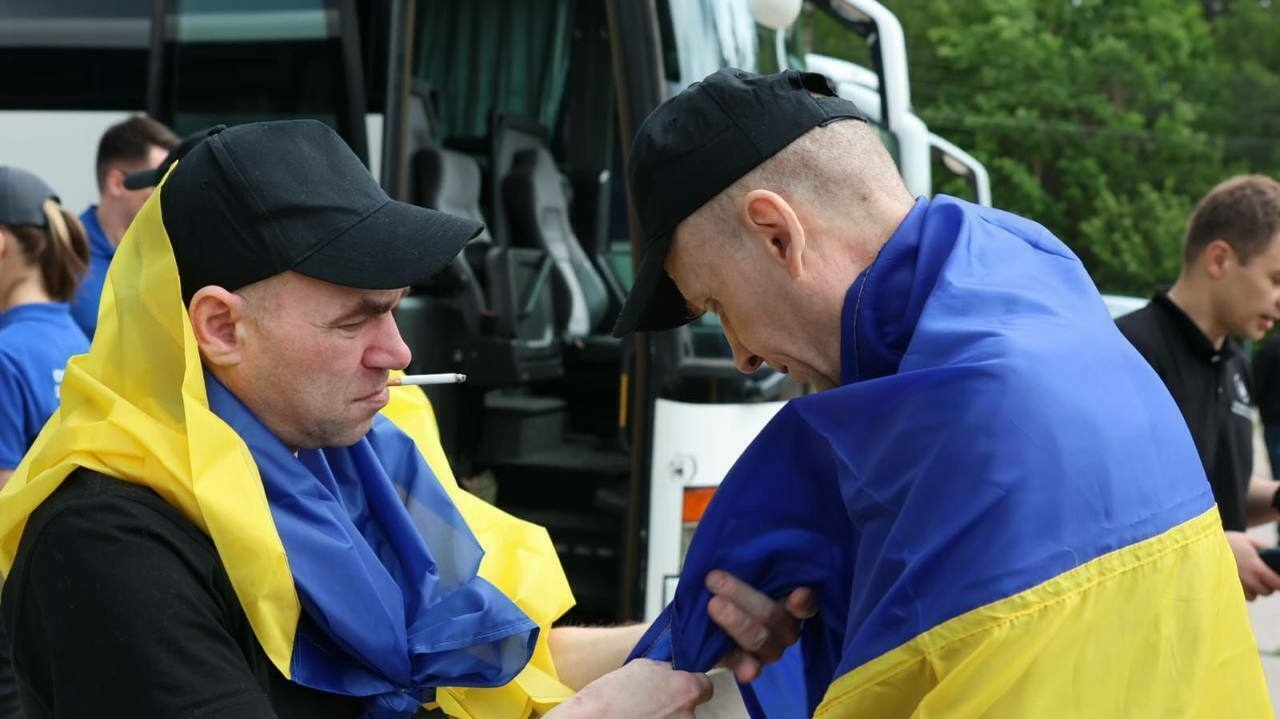
Ukrainian soldiers after being released from Russian captivity on June 19, 2025. (President Volodymyr Zelensky/Telegram) 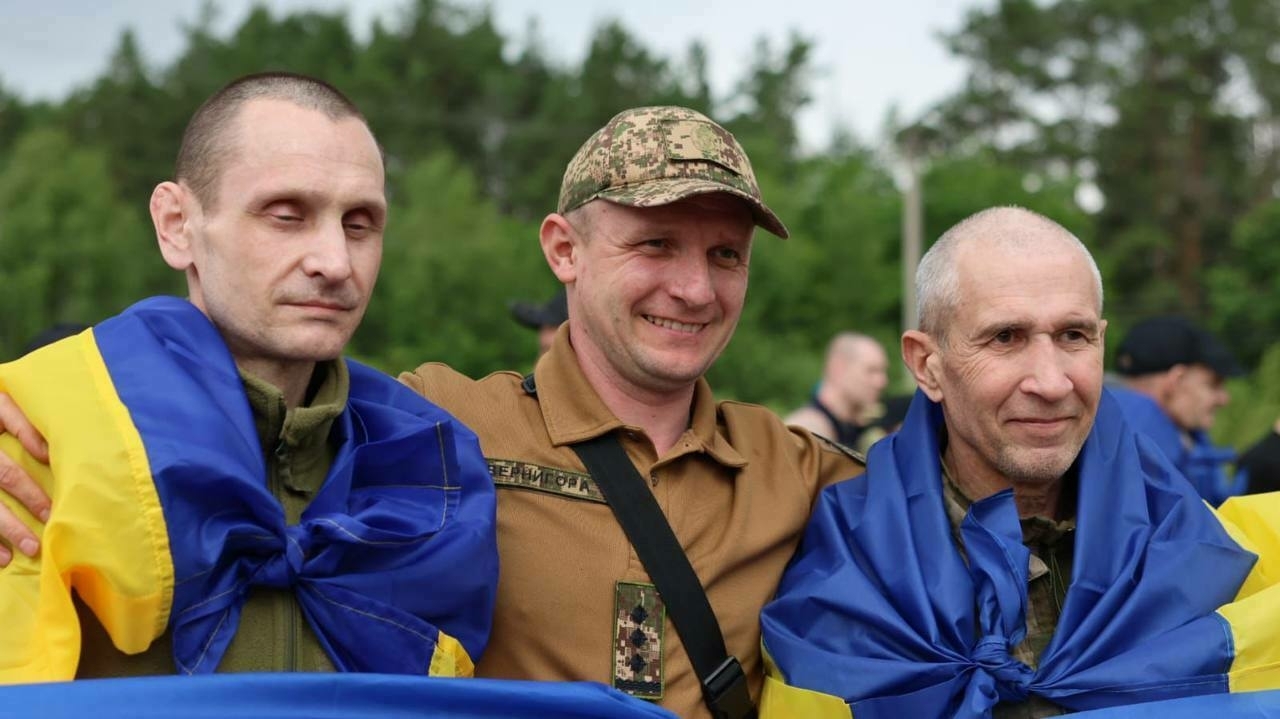
Ukrainian soldiers after being released from Russian captivity on June 19, 2025. (President Volodymyr Zelensky/Telegram) The Istanbul deal was reached during the second round of direct talks between the Ukrainian and Russian delegations in Istanbul at the beginning of the month.
While no political breakthrough was achieved, both sides agreed to a phased exchange of prisoners and the repatriation of fallen soldiers' bodies. As part of that agreement, Russia pledged to return the bodies of up to 6,000 Ukrainian service members and citizens.
Moscow has handed over 6,057 bodies to Ukraine in several stages over the past few days. Kyiv later said these also included fallen Russian soldiers, though it is unclear whether this was done on purpose or by accident.
-
EU reportedly eyes riskier investments for frozen Russian assets to boost Ukraine aid
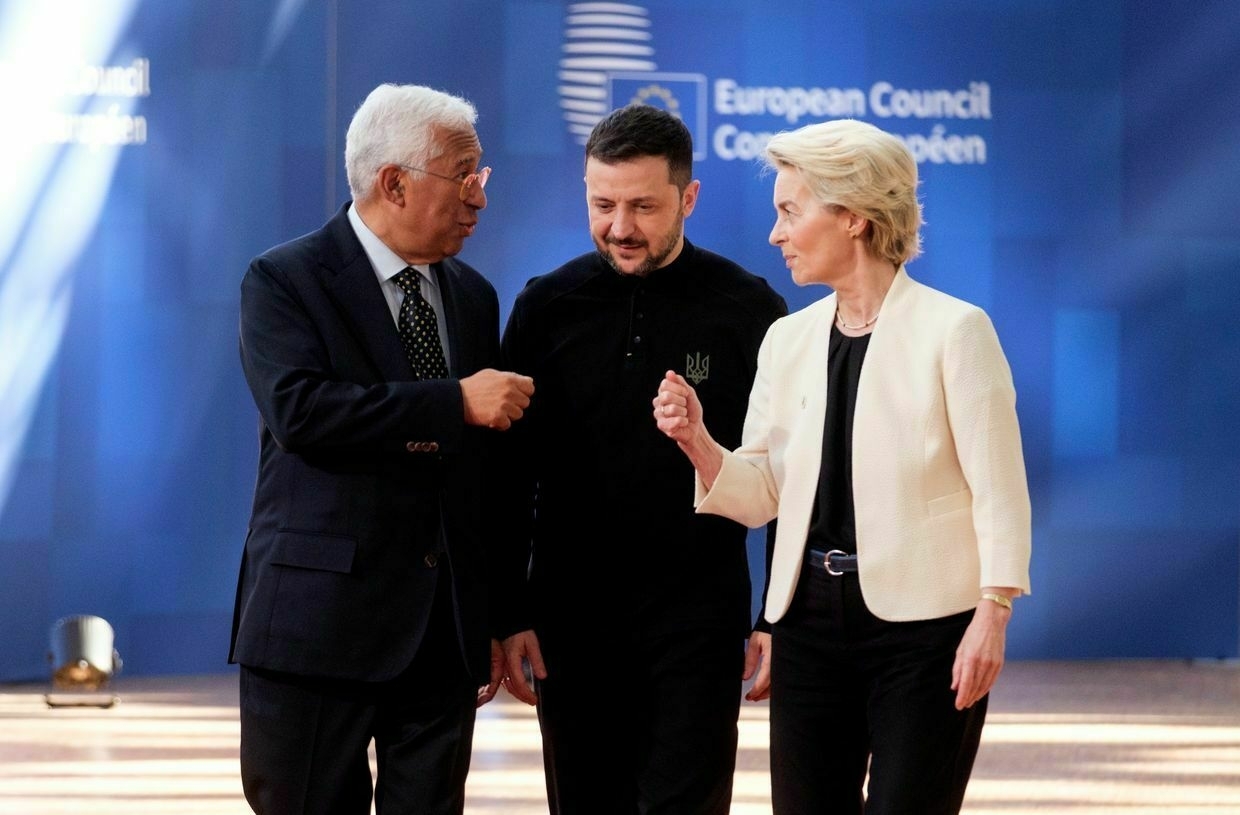
The European Union is developing a plan to generate more revenue for Ukraine by shifting nearly 200 billion euros ($215 billion) in frozen Russian assets into higher-yield, riskier investments, Politico reported on June 19, citing unnamed sources.
The assets, largely held by Belgium-based clearinghouse Euroclear, have been immobilized since 2022 under EU sanctions imposed following Russia’s full-scale invasion of Ukraine.
Under the current framework, the funds are invested conservatively with the Belgian central bank, generating low but steady returns. In 2024, this approach yielded around 4 billion euros ($4.3 billion) in windfall profits, which the EU allocated to help service a G7-backed 45-billion-euro loan for Ukraine (around $50 billion).
Now, with that loan largely disbursed and concerns mounting over future financing, especially amid signals from U.S. President Donald Trump that American support could be scaled back, EU officials are under pressure to find new funding streams.
According to Politico, the proposed plan would redirect the frozen Russian assets into a special investment fund under EU control, allowing for higher returns without confiscating the assets — a move designed to sidestep legal and political opposition.
As part of the current G7-led funding framework, Ukraine has already received 7 billion euros ($8 billion) from the EU under the Extraordinary Revenue Acceleration (ERA) initiative, which uses profits from frozen Russian sovereign assets to fund loans.
Prime Minister Denys Shmyhal confirmed on June 13 that a fifth tranche of 1 billion euros ($1.1 billion) had been disbursed to support Ukraine’s state budget. The ERA mechanism, part of the broader $50 billion G7 program, aims to ensure stable financing for Kyiv while making Russia shoulder the cost of its aggression.
According to Politico, finance ministers from all 27 EU countries are expected to debate the idea during an informal dinner in Luxembourg on June 19.
Poland, which currently holds the Council of the EU’s rotating presidency, emphasized the urgency of the discussions, writing in an invitation letter seen by Politico that “further steps regarding the sanctions regime” and the potential use of frozen Russian assets “must be addressed."
The European Commission has also been holding informal consultations with a group of member states, including France, Germany, Italy, and Estonia, to explore legal options for keeping the Russian assets frozen in case Hungary exercises its veto power during the semiannual sanctions renewal process. So far, no workaround has been finalized.
Hungarian Prime Minister Viktor Orban has repeatedly threatened to block sanctions extensions as a gesture of goodwill toward Moscow, raising concerns the assets could be unfrozen and returned to Russia by default.
By now, much of the EU’s 50-billion-euro ($57 billion) Ukraine Facility, agreed in 2023 and intended to last through 2027, has already been spent. The bloc’s broader 1.2-trillion-euro ($1.37 billion) budget is stretched thin, and any additional top-ups would also require unanimous support.
Russia just accidentally admitted to its staggering troop losses in UkraineA senior Russian official on June 19 inadvertently confirmed the staggering troop losses incurred by Moscow’s forces during its full-scale invasion of Ukraine. In an interview with CNN, Russian Ambassador to the U.K. Andrey Kelin was asked about Moscow’s maximalist intentions in Ukraine and its ability to recruit enoughThe Kyiv IndependentChris York
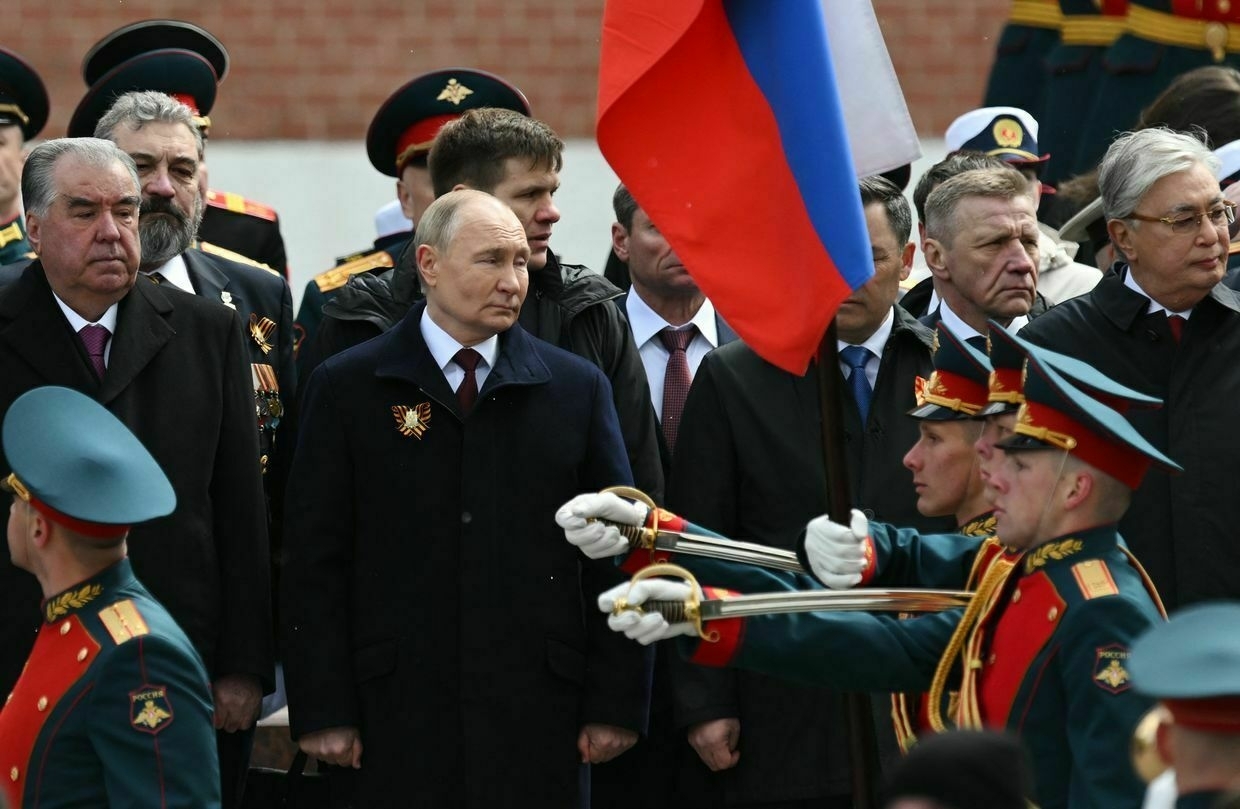
-
Putin, Xi to agree to meet in China as they sneer at G7 summit fractures
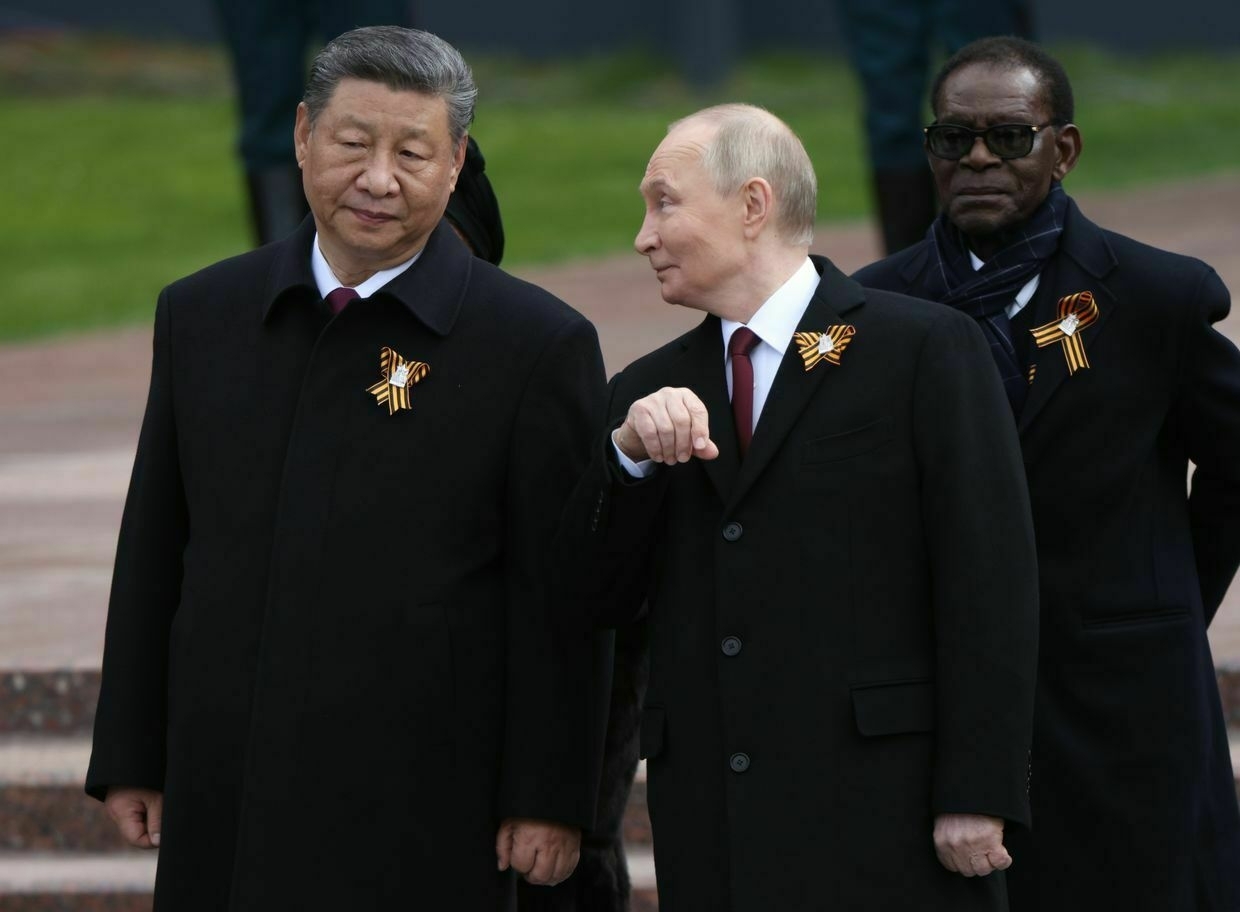
Russian President Vladimir Putin and Chinese President Xi Jinping agreed to meet in August and September and noted the supposed “rough edges” that emerged among G7 leaders during their summit, said Putin’s aide, Yuri Ushakov, on June 19.
In a phone call, the two leaders agreed to meet at the Shanghai Cooperation Organization summit in Tianjin, China, between Aug. 31 and Sept. 1, and hold bilateral talks on Sept. 2, Ushakov said, according to the state news agency TASS.
China has been a key ally to Russia during its full-scale war, helping Moscow evade Western sanctions and becoming the leading source of dual-use goods fueling the Russian defense industry. Xi and Putin previously met during the Victory Day celebrations in Moscow in May.
While their phone call focused on the escalating security situation in the Middle East, the leaders also touched upon the G7 summit, noting “the well-known rough edges that emerged among the participants of this meeting,” Ushakov said.
Putin and Xi also reportedly made mocking comments toward President Volodymyr Zelensky, saying it was not his “most successful trip abroad."
Zelensky was expected to meet U.S. President Donald Trump at the G7 summit in Canada, held from June 15 to 17, to discuss ways to increase pressure on Russia to end the war. Before Zelensky even arrived, Trump left the summit to address the escalating crisis in the Middle East, snubbing the meeting with the Ukrainian leader.
The G7 leaders were also unable to agree on a joint statement as the U.S. pushed for watered-down language on Russia. Instead, Canadian Prime Minister Mark Carney issued a summary saying that “G7 leaders expressed support for President Trump’s efforts to achieve a just and lasting peace in Ukraine."
“They recognized that Ukraine has committed to an unconditional ceasefire, and they agreed that Russia must do the same. G7 leaders are resolute in exploring all options to maximize pressure on Russia, including financial sanctions,” the statement read.
While initially pledging to broker a swift peace deal between Kyiv and Moscow, Trump has become increasingly disengaged with the effort and resisted calls to increase pressure on Russia via additional sanctions.
Despite Trump’s departure and disagreements with the U.S., Zelensky left the G7 summit with additional pledges of military support from Canada and new sanctions imposed against Russia’s energy sector.
“Today, we have concrete decisions on increased military support, new tranches of aid funded by frozen Russian assets, and additional sanctions targeting what fuels Russia’s war,” Zelensky said after the summit.
Zelensky also told the G7 leaders that “diplomacy is now in a state of crisis” and urged allies to press Trump “to use his real influence” to force an end to the war.
Diplomacy in crisis: G7 letdowns reveal limits to Western solidarity on UkraineKANANASKIS, Canada — The Group of Seven (G7) Leaders’ Summit ended on June 17 with no joint statement in support of Ukraine, no commitments to provide desperately needed U.S. weapons, and no meeting between President Volodymyr Zelensky and U.S. President Donald Trump. The Ukrainian delegation headed into the summit,The Kyiv IndependentDmytro Basmat
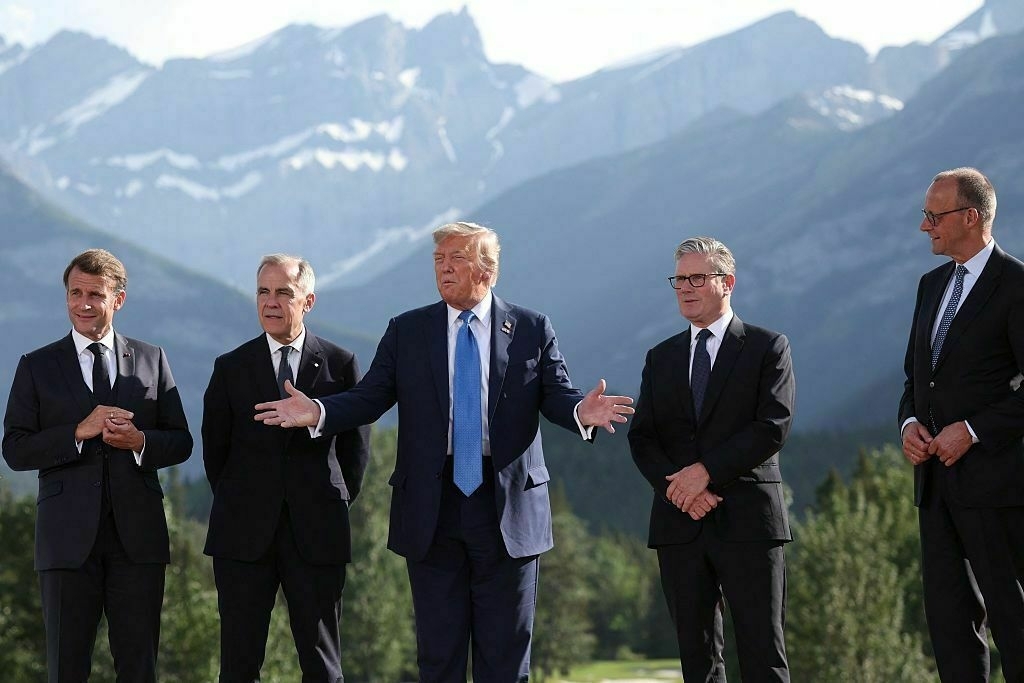
-
Russia just accidentally admitted to its staggering troop losses in Ukraine
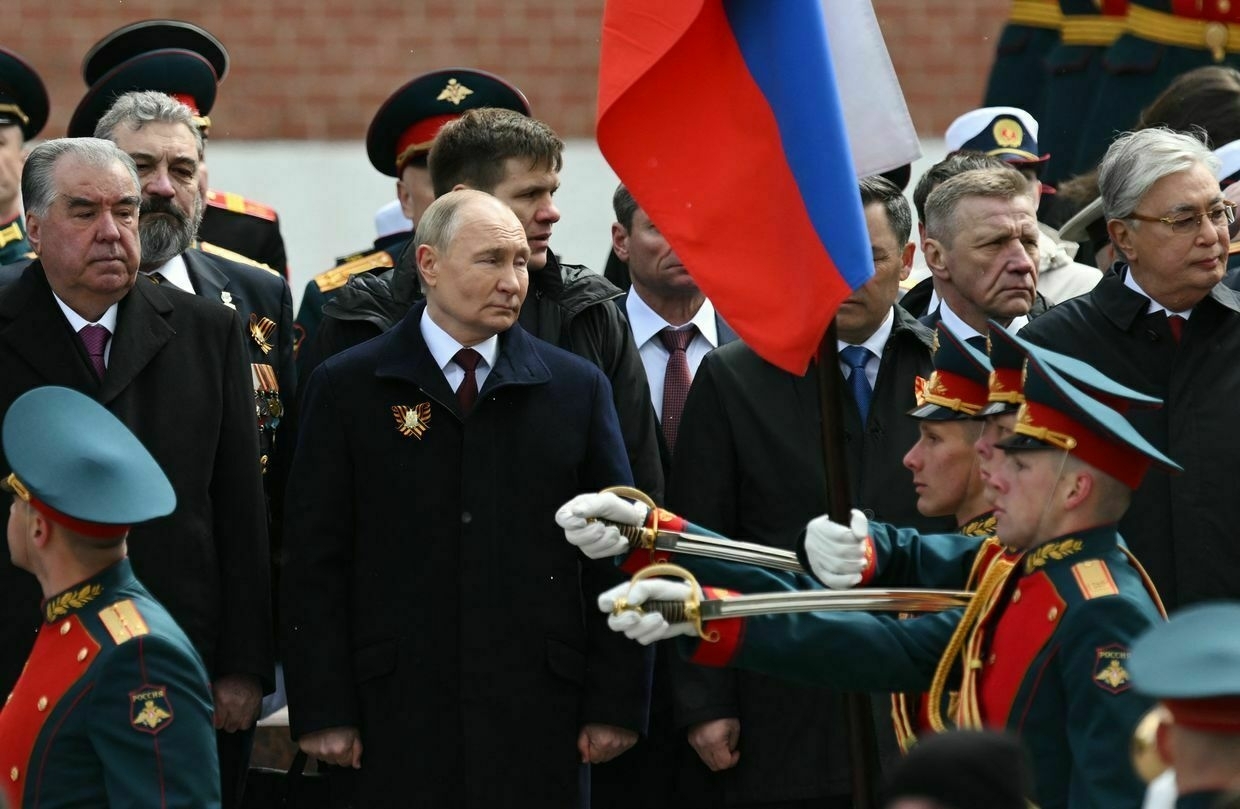
A senior Russian official on June 19 inadvertently confirmed the staggering troop losses incurred by Moscow’s forces during its full-scale invasion of Ukraine.
In an interview with CNN, Russian Ambassador to the U.K. Andrey Kelin was asked about Moscow’s maximalist intentions in Ukraine and its ability to recruit enough soldiers to fulfill them.
Despite ongoing U.S.-led peace efforts, Russia continues to demand Ukraine withdraws from the four partially occupied regions — Donetsk, Luhansk, Kherson, and Zaporizhzhia — as a precondition for negotiations.
Meanwhile, according to figures from Kyiv, Russia has suffered more than 1 million dead, wounded, and missing soldiers since the start of its full-scale invasion.
Kelin dismissed the 1 million casualties figure but did confirm that “about 600,000” Russian soldiers were fighting in Ukraine, a number which tallies with Ukrainian estimates from January.
The number is actually lower than the 700,000 (Russian President Vladimir) Putin claimed in June 2024, and the 617,000 he claimed in December 2023.
Kelin was then asked about Russian army recruitment.
“I’m not a specialist in this area, but as I understand it we have 50-60,000 a month, those volunteers who are coming, recruiting, posting, and they would like to get engaged in this thing (in Ukraine),” he replied.
He did not explain why the size of the Russian army fighting in Ukraine has gone down despite what would amount to around 250,000 extra troops being recruited and sent to the front since the beginning of the year.
According to figures from Ukraine’s General Staff, Russia has lost 217,440 troops since Jan. 1, 2025.
The discrepancy tallies with Western analysis of Russia’s staggering losses.
“They lose somewhere in the ballpark of 35,000 to 45,000 people per month, and perhaps they recruit a little bit north of that number,” George Barros, Russia team lead at the Institute for the Study of War (ISW), told the Kyiv Independent earlier this month.
Given that Russia is having to pay people to sign up, the losses have potentially huge ramifications for the country’s economy.
According to an analysis by economist Janis Kluge, Russia’s daily bill just for sign-up bonuses is $24 million.
The ballooning bills come at a time when Russia’s economy is already under huge strain from Western sanctions and falling oil and gas revenues.
“The implications for Russia are grave,” energy security analyst Wojciech Jakobik wrote in an op-ed for the Kyiv Independent this week.
According to Barros, making any predictions about whether or not the Russian economy is going to collapse is “supremely difficult to do,” but the signs for the Kremlin “don’t bode well."
“If you look at the current Russian economic indicators, for example their inflation rate, their overnight lending interest rates, Russian monetary constraints… government spending is out of control — it’s a very loose fiscal policy and so the economy is at risk of overheating,” he said.
“I don’t know to what extent the economy can continue to last."
As Russian losses in Ukraine hit 1 million, Putin’s war economy heads toward breaking pointRussian losses in Ukraine hit a massive, and grim milestone on June 12 — 1 million Russian soldiers killed or wounded during the 39-month-long full-scale war, according to figures from Kyiv. Although hugely symbolic, the number is unlikely to prompt a change in tactics from Moscow as it gears up forThe Kyiv IndependentChris York
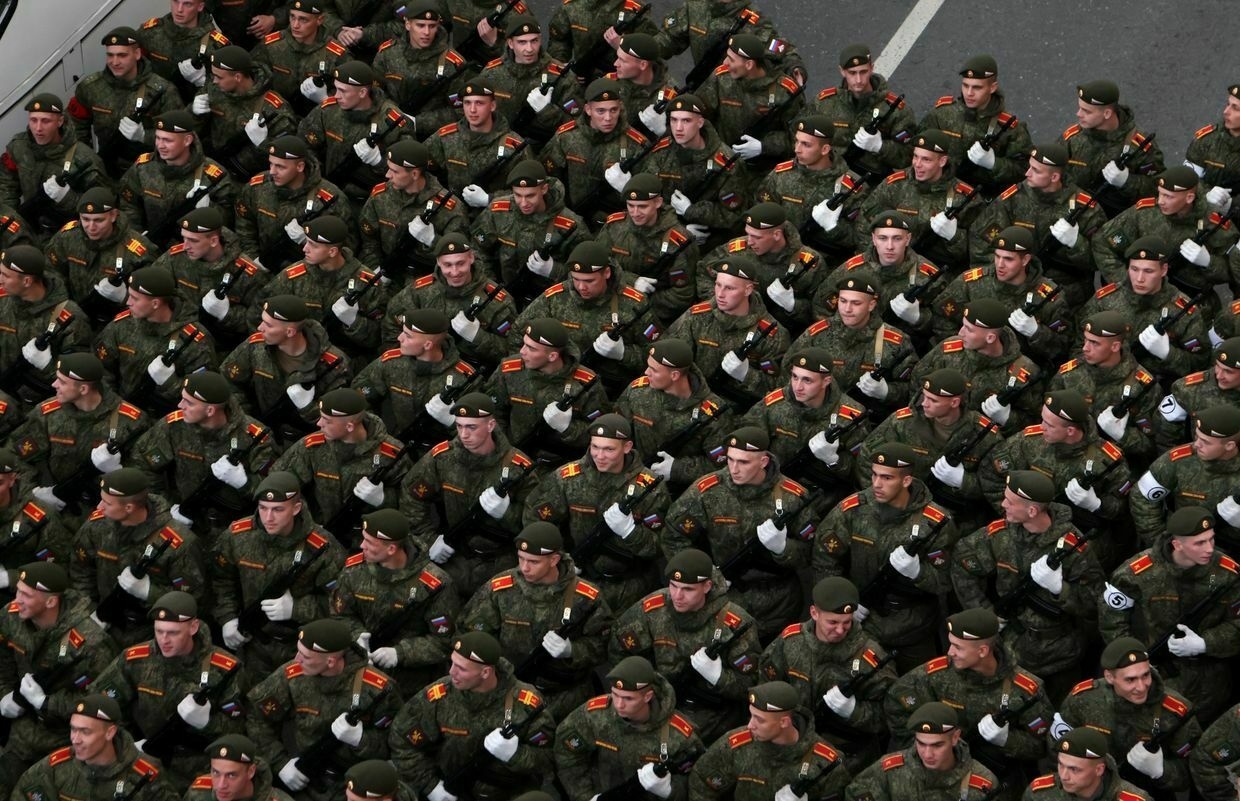
-
Finland votes to withdraw from landmine treaty, citing Russian threat
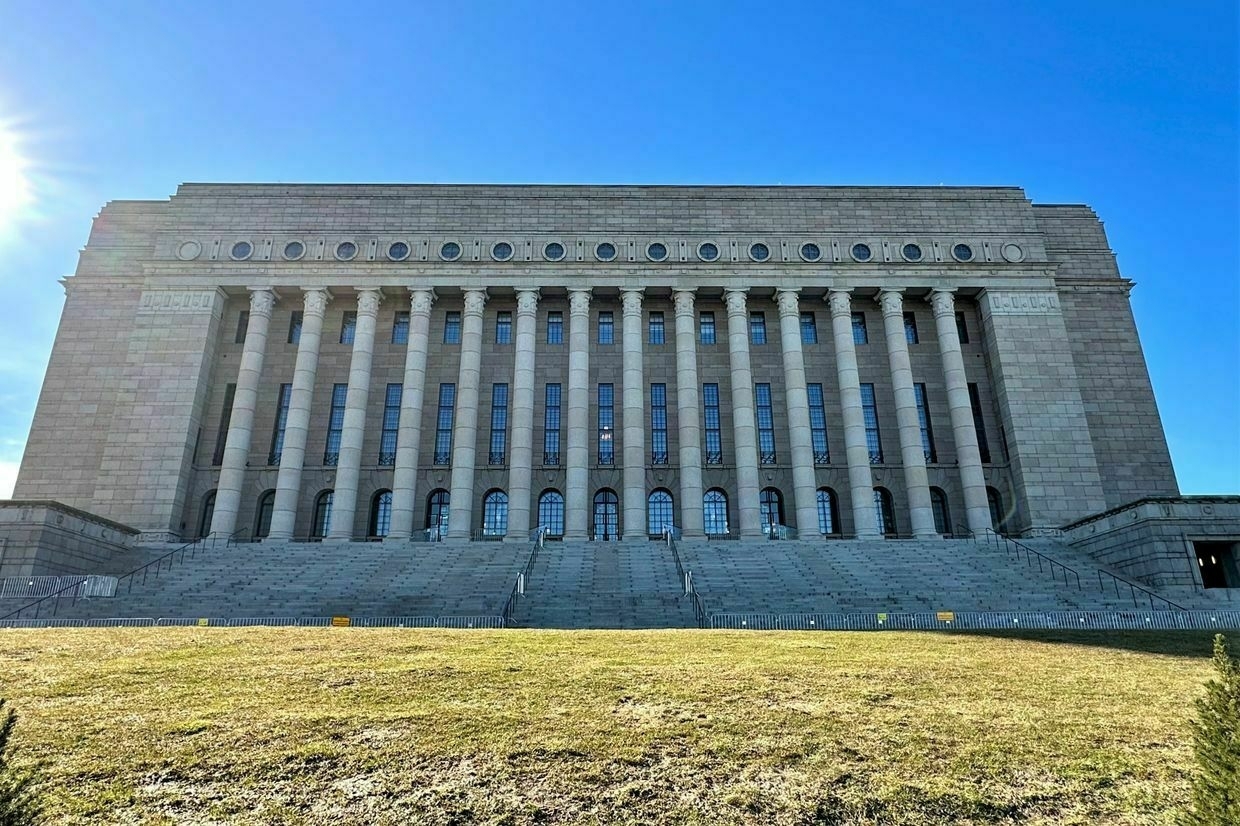
Finland’s parliament voted on June 19 to withdraw from the Ottawa Convention banning anti-personnel landmines, citing growing security concerns from Russia’s aggressive posture and the threat it poses to the region, Reuters reported.
The vote aligns Finland with its Baltic allies, Estonia, Latvia, and Lithuania, whose parliaments have already approved similar exits from the treaty.
Defending the decision earlier this week, Finnish President Alexander Stubb said the security reality along Finland’s 1,300-kilometer (800-mile) border with Russia had changed dramatically since the full-scale invasion of Ukraine, according to TVP.
“The reality in the endgame is that we have as our neighboring country an aggressive, imperialist state called Russia, which itself is not a member of the Ottawa Treaty and which itself uses landmines ruthlessly,” Stubb said.
Russia has widely deployed landmines across Ukrainian territory since launching its invasion in 2022, a tactic condemned by human rights organizations and Western governments.
Finland, which joined NATO in 2023, has significantly ramped up its defense posture amid growing concern over potential Russian provocations. The country closed its border with Russia over a year ago, accusing Moscow of orchestrating a “hybrid operation” by directing asylum seekers toward Finnish territory. Helsinki claims such hybrid tactics have intensified since it joined the alliance.
The Finnish Border Guard completed the first 35 kilometers (22 miles) of a planned 200-kilometer (124-mile) fence along its eastern frontier on May 21. The move came amid growing evidence of Russian military infrastructure expansion near the Finnish border.
Finland is “closely monitoring and assessing Russia’s activities and intentions,” Finland’s Defense Minister Antti Hakkanen told AFP on May 22.
“We have excellent capabilities to observe Russian operations. As a member of the alliance, Finland holds a strong security position."
Russia’s Defense Minister Andrei Belousov said in December 2024 that Moscow must be ready for a potential conflict with NATO within the next decade. Western officials have repeatedly warned of the possibility that Moscow could target NATO members in the coming years.
Diplomacy in crisis: G7 letdowns reveal limits to Western solidarity on UkraineKANANASKIS, Canada — The Group of Seven (G7) Leaders’ Summit ended on June 17 with no joint statement in support of Ukraine, no commitments to provide desperately needed U.S. weapons, and no meeting between President Volodymyr Zelensky and U.S. President Donald Trump. The Ukrainian delegation headed into the summit,The Kyiv IndependentDmytro Basmat
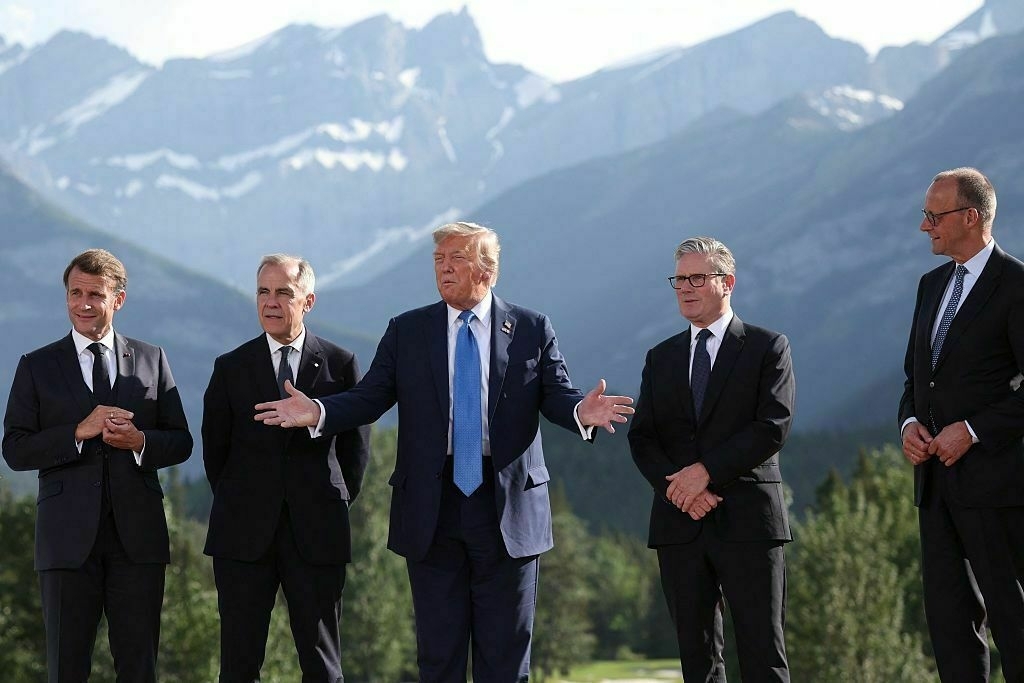
-
Diplomacy in crisis: G7 letdowns reveal limits to Western solidarity on Ukraine
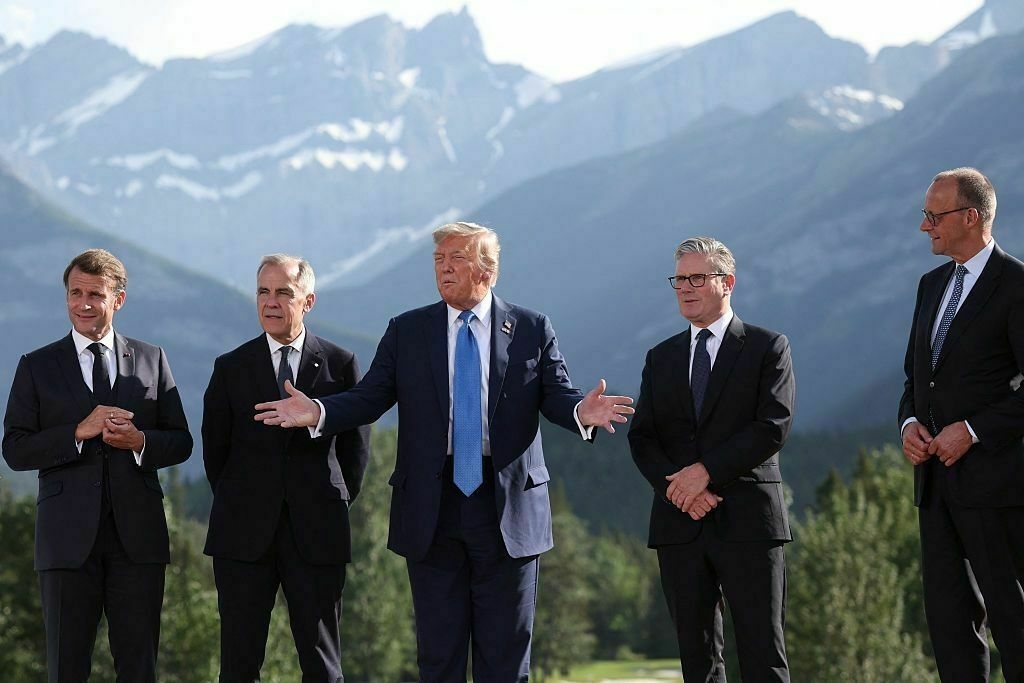
KANANASKIS, Canada — The Group of Seven (G7) Leaders' Summit ended on June 17 with no joint statement in support of Ukraine, no commitments to provide desperately needed U.S. weapons, and no meeting between President Volodymyr Zelensky and U.S. President Donald Trump.
The Ukrainian delegation headed into the summit, held in the remote community of Kananaskis, Canada, with an air of cautious optimism and hopes of winning renewed international support.
Instead, Trump left, Russia slammed Kyiv with ballistic missiles, and optimism quickly turned to anxiety.
As Zelensky arrived in Kananaskis on June 17, Moscow hit Kyiv with one of the largest Russian attacks on the capital since the start of the war — a brutal strike that killed 28 people and injured 134.
Zelensky, who learned of the attack en route to Canada, hoped to once again rally world leaders around Ukraine’s defense and convince them to mount pressure on Russia in light of the relentless attacks on civilians. But Trump — the man with the most power to impact the course of the war and prospects for peace — met the moment with indifference.
Trump departed the summit just hours ahead of Zelensky’s arrival, saying he was leaving to tend to a different conflict: “I have to be back (to the White House) as soon as I can … because of what’s going on in the Middle East,” Trump told reporters, referring the escalating conflict between Israel and Iran. “I have to be back early for obvious reasons,” Trump said, without further elaborating.
Trump was expected to meet with Zelensky on the sidelines of the G7 summit on June 17, marking their third in-person meeting since the American president took office in January. After his sudden exit, the Ukrainian delegation was left with the impression that Trump had brushed off their concerns.
While Kyiv managed to make progress and maintain unity among remaining world leaders at the summit, the bleak state of U.S.-Ukrainian relations casts a shadow over these gains. Zelensky left the summit early, with even more uncertainty about how Ukraine can win the war in the face of dwindling U.S. support.
Relations with Trump continue to sour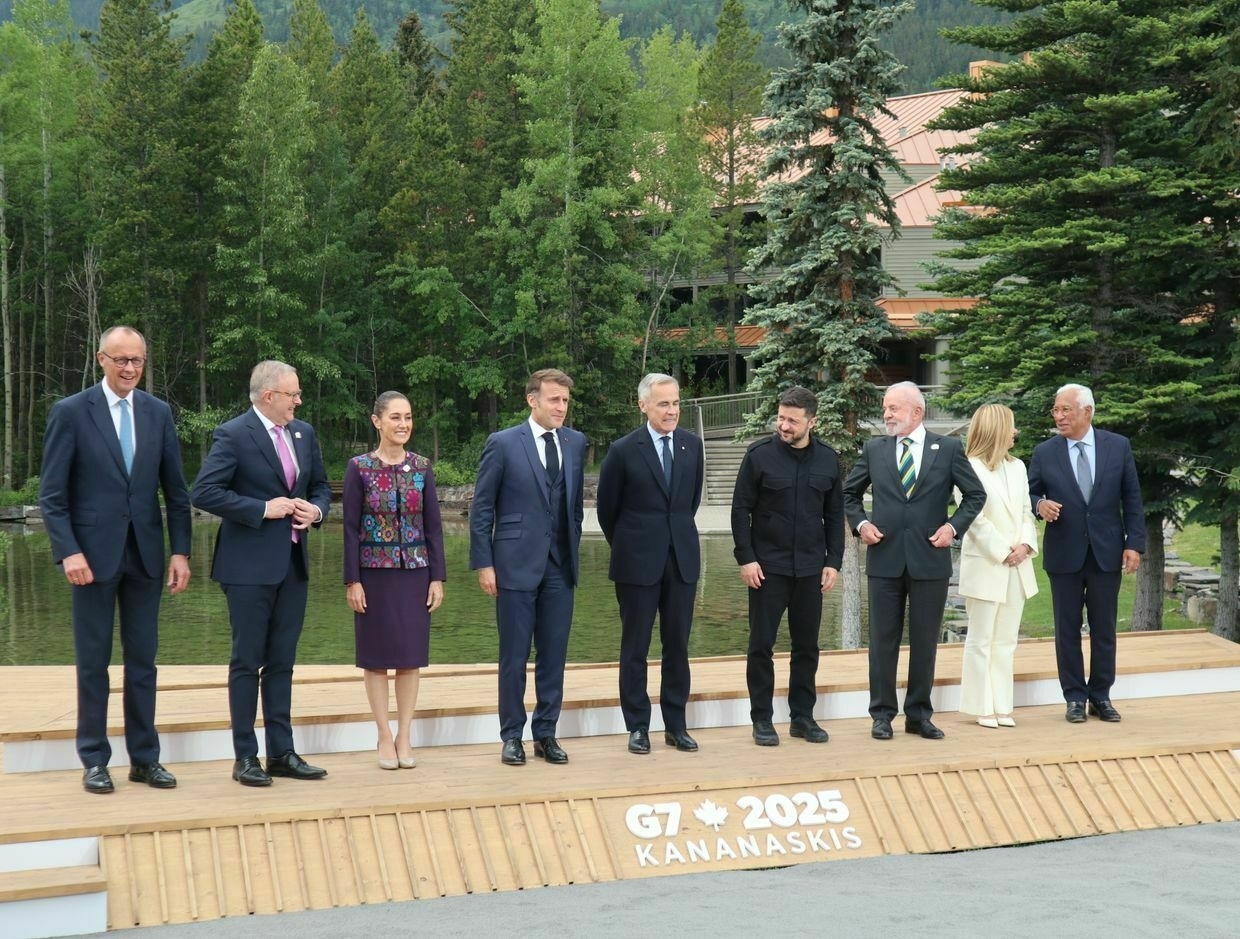
World leaders prepare to pose for their ‘family photo’ on June 17, 2025. Noticeably missing is U.S. President Donald Trump who left the summit early on June 16 ahead of President Volodymyr Zelensky’s arrival. (Dmytro Basmat/The Kyiv Independent) After a disastrous first in-person meeting between Trump and Zelensky in the Oval Office in February — during which Trump and Vice President JD Vance lambasted the Ukrainian president over what they described as “a lack of gratitude for U.S. support” — a second meeting in the Vatican helped smooth over tensions between the two leaders.
Zelensky praised his brief but “most substantive” conversation with Trump following the funeral of Pope Francis in early May.
“With all due respect to our teams, the one-on-one format, in my opinion, worked. We had the right atmosphere for the conversation,” Zelensky said after the talk.
At the G7 summit, the Ukrainian delegation hoped to convince Trump to exert additional economic pressure on Moscow through sanctions — which the U.S. president has not followed through on implementing — during a third in-person meeting with Zelensky.
Trump’s exit put those hopes on hold and cost Ukraine an opportunity to improve relations with the White House. Sources familiar with the situation told the Kyiv Independent that there was resounding disappointment within the president’s circle.
Zelensky ended up leaving the summit early too, canceling a planned press conference and additional events in Calgary in the wake of the Russian missile strikes on Kyiv and changes to the G7 agenda.
“What is there (for Zelensky) to say?” a source familiar with the logistics of Zelensky’s canceled press conference said following Trump’s early departure.
Kyiv’s hopes of winning over Washington have run up against Trump’s indifference to a Ukrainian victory and his sympathies with the Kremlin. One expert told the Kyiv Independent that Trump “does not share (the) commitment” that other Western allies do to help put an end to the war.
“Trump seems to be walking away from an attempt to reach a ceasefire in the war, and is focused on the Israel-Iran conflict and U.S. domestic politics,” said Brian Taylor, a professor of political science at Syracuse University.
“Of course, Trump is unpredictable and could change his mind (about providing support for Ukraine), but it seems pretty clear that, for whatever reason, he sympathizes with (Russian President Vladimir) Putin,” Taylor said.
“It looks like President Trump is walking away from his erratic and half-hearted efforts to make a deal to end the Russia-Ukraine War."
Trump’s lack of commitment has Ukraine questioning the value of participating in the upcoming NATO summit in The Hague. Zelensky is reconsidering his attendance at the June 24-25 summit amid questions over Trump’s participation, the Guardian reported on June 17, citing unnamed Ukrainian officials.
One official told the Guardian that Ukraine is in a “permanent hazard” of becoming a victim of “Trump’s short attention span,” adding that Russia has exploited this uncertainty by fresh aerial attacks. The source said there had been “all sorts of promises for this summit,” including U.S. arms.
Minor victories, major uncertainties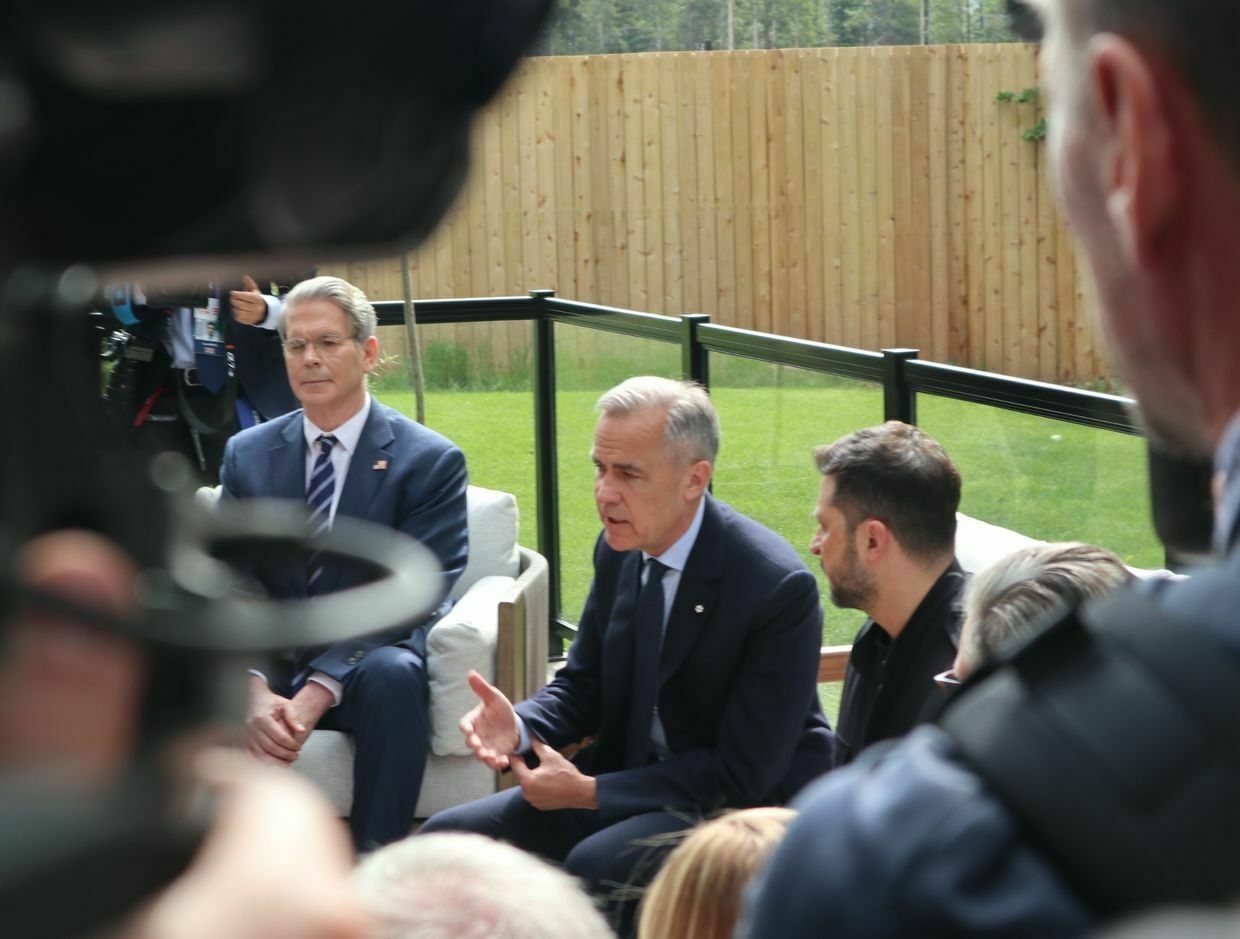
U.S. Treasury Secretary (L) fills in for U.S. President Donald Trump during a “Strong and Sovereign Ukraine” working breakfast on June 17, 2025, following Trump’s early departure from the summit. (Dmytro Basmat/The Kyiv Independent) 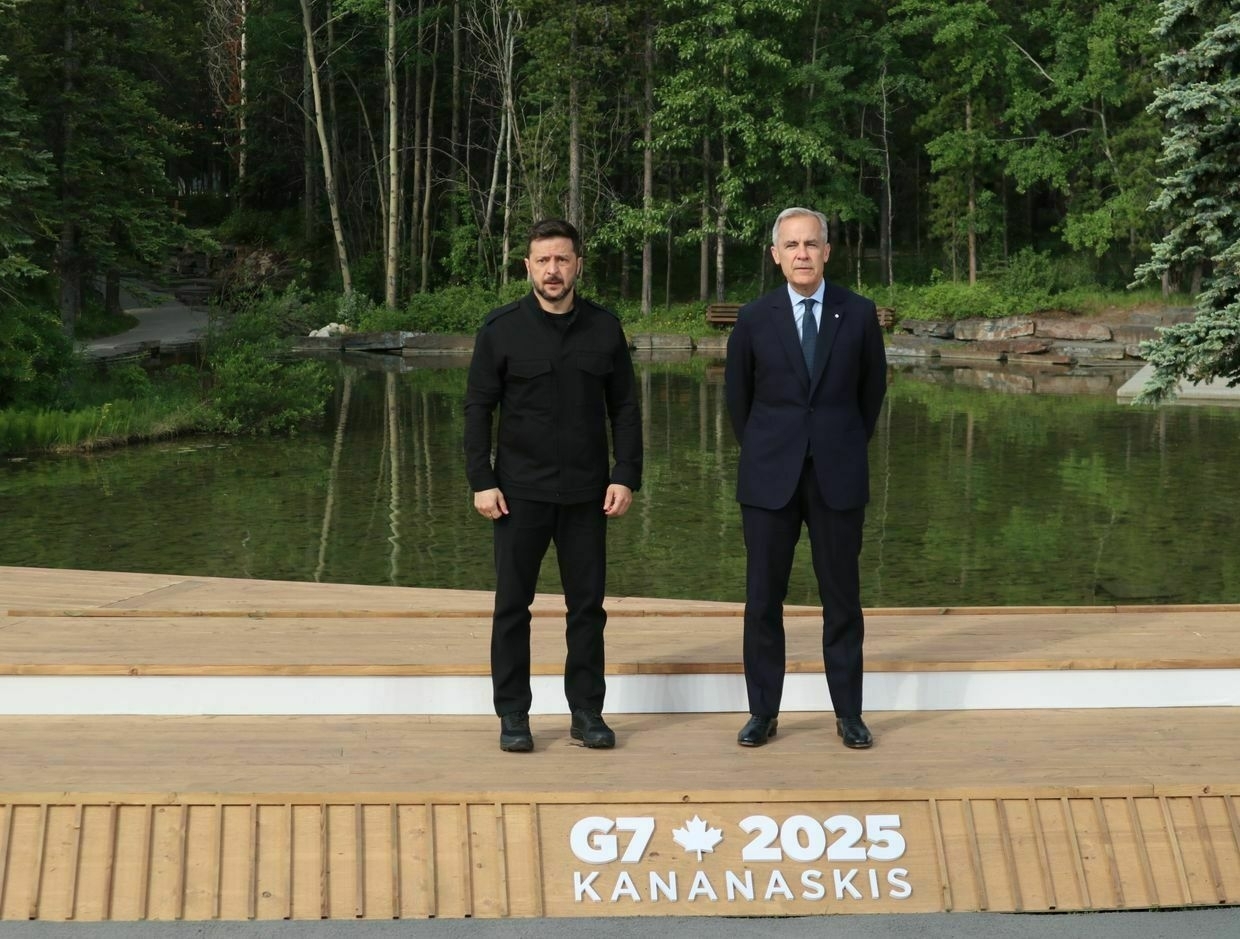
President Volodymyr Zelensky and Canadian Prime Minister Mark Careny, the host of the G7 Leaders' Summit, post for a photo following Zelensky’s arrival at the summit on June 17, 2025. (Dmytro Basmat/The Kyiv Independent) 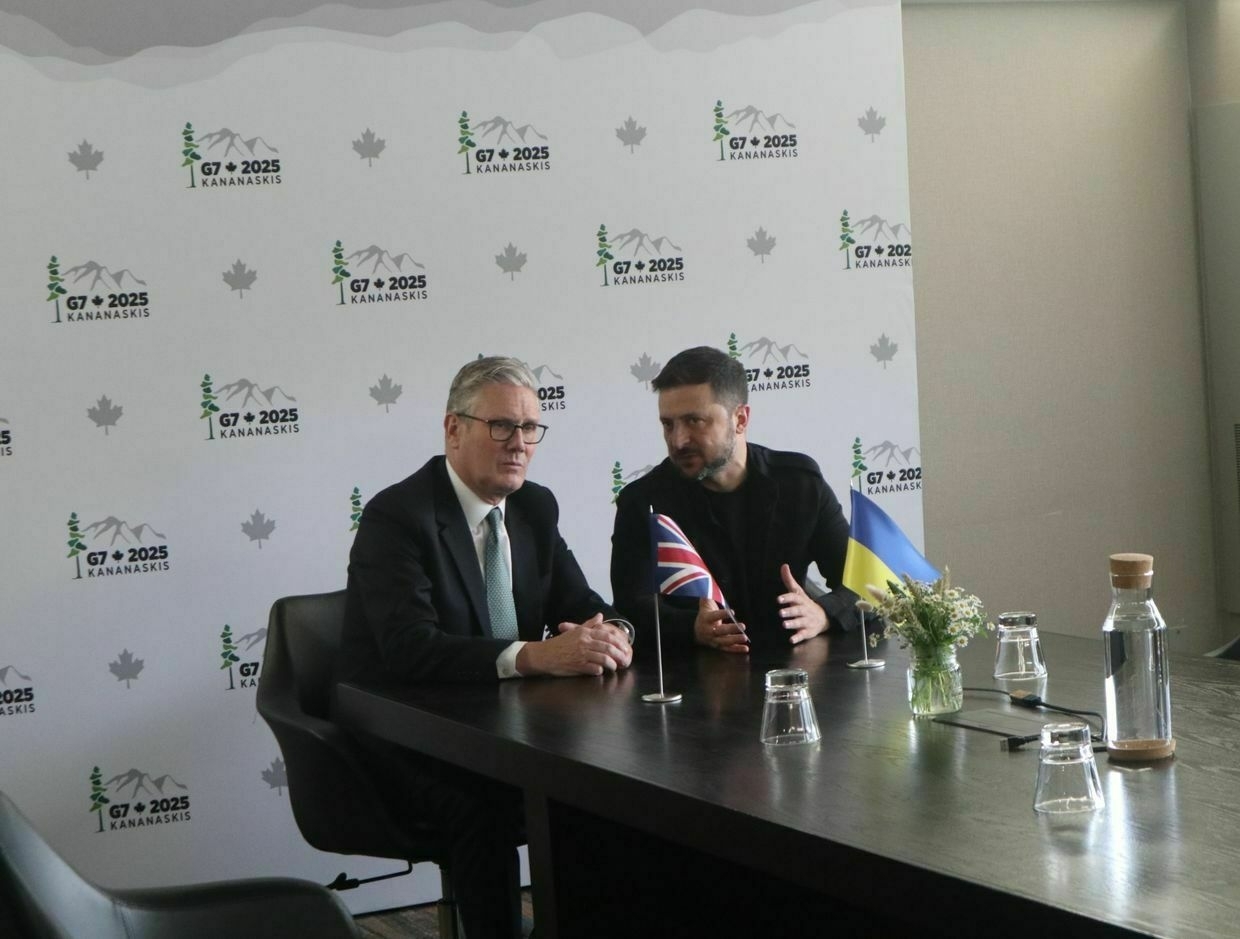
President Volodymyr Zelensky holds a bilateral meeting with British Prime Minister Keir Starmer on the sidelines of the G7 Leaders' Summit in Kananaskis, Alberta, Canada on June 17, 2025. (Dmytro Basmat/The Kyiv Independent) 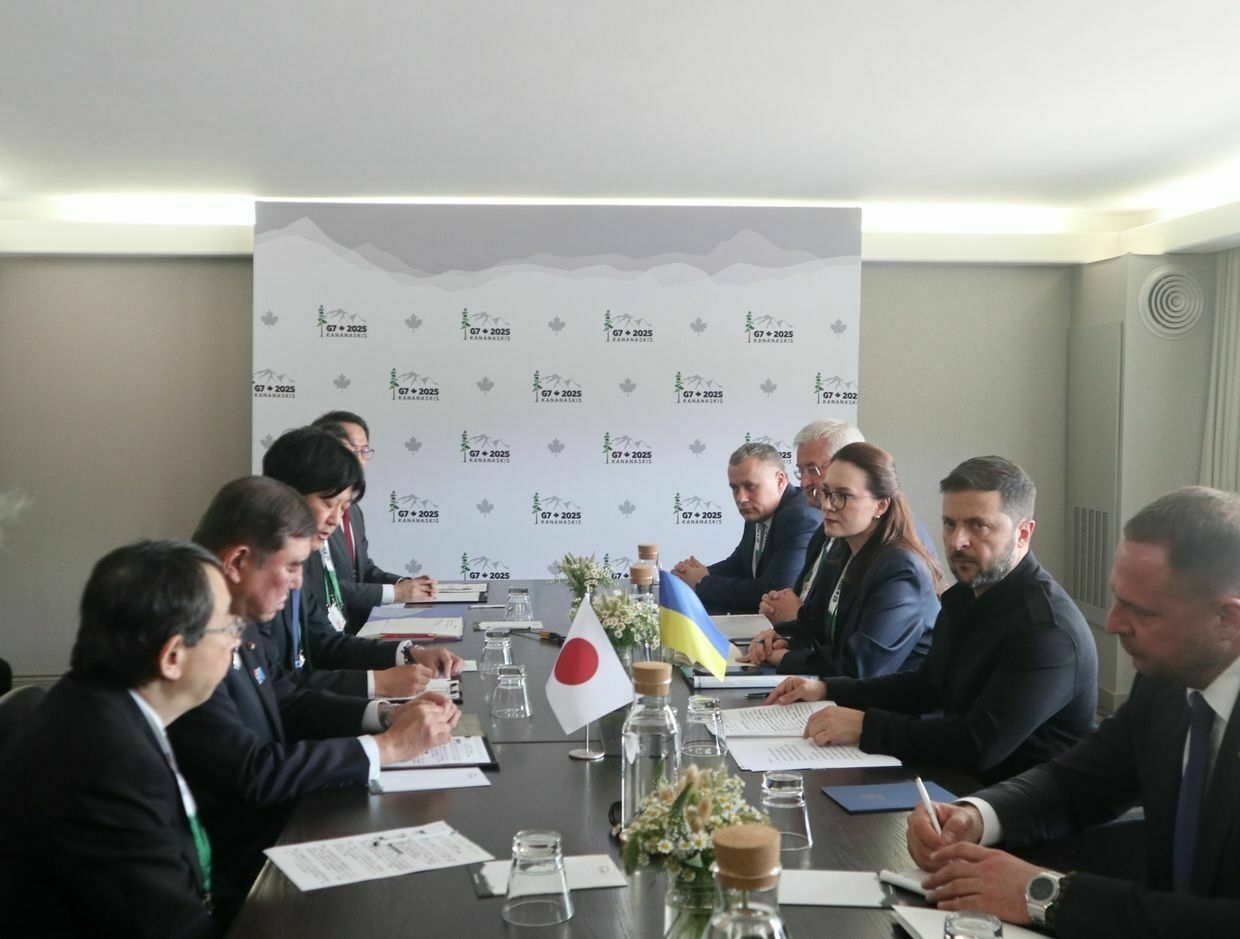
Members of the Ukrainian delegation meet with the Japanese delegation, led by Prime Minister Shigeru Ishiba, on the sidelines of the G7 Leaders' Summit in Kananaskis, Alberta, Canada on June 17, 2025. (Dmytro Basmat/The Kyiv Independent) Despite Trump’s abrupt departure, Zelensky did come out of meetings with other world leaders with some positive results as well as additional support for Ukraine.
Canadian Prime Minister Mark Carney, the host of the summit, announced a sweeping new support package for Ukraine during a bilateral meeting with Zelensky. The measures include two billion Canadian dollars ($1.5 billion) in military funding and new sanctions aimed at restricting Russia’s energy revenues and evasion tactics.
“To be absolutely clear, this support will be unwavering until we get a just peace for Ukraine and the Ukrainian people,” Carney said ahead of the bilateral, attended by the Kyiv Independent.
Additionally, the United Kingdom imposed new restrictions on Russia on June 17, adding 20 vessels from Russia’s so-called “shadow fleet” and 10 individuals and entities to its sanctions list. Australia also joined the U.K. in targeting 60 vessels — its first-ever sanctions against the shadow fleet.
Zelensky said he had told the G7 leaders that “diplomacy is now in a state of crisis” and urged allies to press Trump “to use his real influence” to force an end to the war.
Trump has not been very responsive to such appeals. During a G7 dinner discussion where world leaders reportedly attempted to convince Trump to impose tougher sanctions against Russia, Trump insisted sanctions were too costly for the U.S., according to Bloomberg.
The New York Times reported in May that Trump opposes sanctions because they may jeopardize future business and trade opportunities with Moscow.
While Zelensky pushes for the support and sympathy of Western leaders, the U.S. pushes back — often with disappointing results for Ukraine. Canada reportedly dropped plans for the G7 to issue a joint statement on the war in Ukraine after the U.S. insisted on weakening the language. Instead of a unified call to action, Canada’s Carney released a Chair’s Summary on the event.
“I think the possibility of additional pressure on Russia from the United States, in the form of tougher sanctions and further military assistance for Ukraine, are low,” Taylor said. “The good news for Ukraine from the G7 Summit is that the other six members of the G7 remain firmly behind Ukraine."
Making Moscow payUkraine’s military has warned that Russian forces have intensified operations across the front line amid a renewed summer offensive — meaning Ukraine desperately needs external forces to exert economic pressure on Russia’s war machine.
“The key questions now are, first, will the U.S. Congress try to force Trump into further sanctions and, second, how much can Europe make up for the absence of U.S. support?” Taylor told the Kyiv Independent.
A U.S. sanctions bill, jointly introduced on April 1 by Republican Senator Lindsey Graham and Democratic Senator Richard Blumenthal, seeks to impose a 500% tariff on imports from countries that continue purchasing Russian oil and raw materials. The bill aims to tighten economic pressure and discourage third-party nations from enabling the Kremlin’s energy profits.
Despite broad support for these efforts from his own party, Trump asked Senate Majority Leader John Thune to postpone a vote on the bill, according to Senator Roger Wicker. Semafor reported on June 17 that the bill has been further delayed until at least July as Congress grapples with domestic legislation as well as the conflict in the Middle East.
While the European Union insists that its commitment to Ukraine remains unwavering, the bloc is also vulnerable to U.S. pressure and internal disagreements.
In its 18th package of sanctions against Russia, the EU proposed lowering the oil price cap from $60 to $45 a barrel. While leaders were reportedly prepared to champion the proposal even without support from the U.S., European Commission President Ursula von der Leyen appeared to walk back the price drop during the G7 summit.
“In the last days, we have seen the price has risen so the oil price cap does serve its function,” von der Leyen said. “At the moment, there’s little pressure on lowering the oil price cap."
EU High Representative Kaja Kallas, however, urged the EU to press forward with lowering the cap on Russian oil, even without U.S. support, warning that Middle East tensions could otherwise drive prices up and boost Russia’s revenues.
The EU also requires unanimous support on punitive measures related to Russia, giving Ukraine-skeptic leaders in Slovakia and Hungary an opportunity to obstruct and delay the approval process.
Prospects for peace in Ukraine will likely be determined by the amount of economic strain exerted on Russia. Kyiv now faces tough decisions as to how to publicly court support from Trump without relying too heavily on Washington’s global leadership.
Kyiv may soon be forced to put all its efforts into winning more European support, becoming reliant on allies with more limited capabilities.
Europe must prepare for US scaling down support for Ukraine, Pistorius says“Yes, that’s right. That would be so and we have to deal with that,” German Defense Minister Boris Pistorius told journalists in response to a question about a potential U.S. pullback.The Kyiv IndependentAnna Fratsyvir
